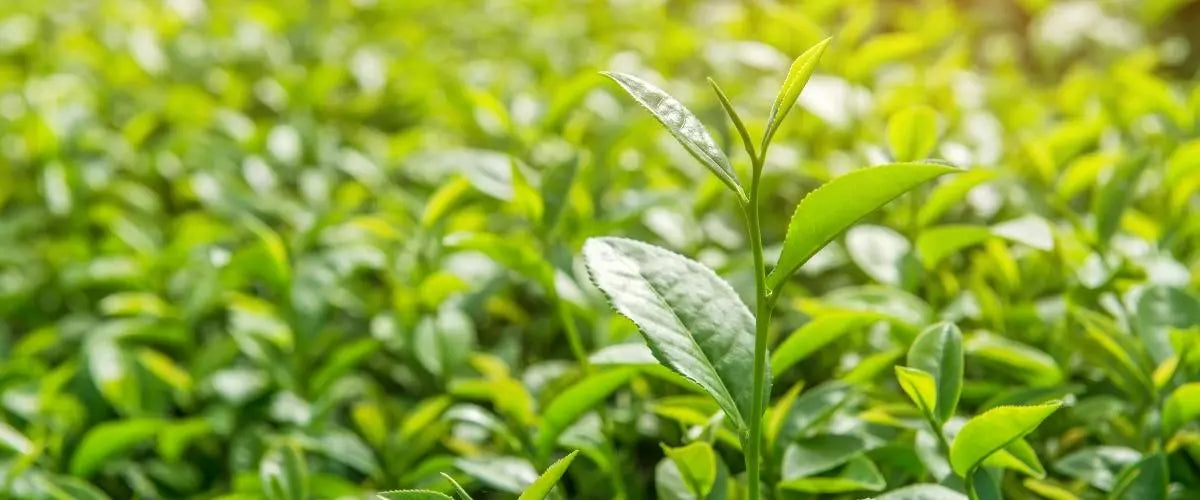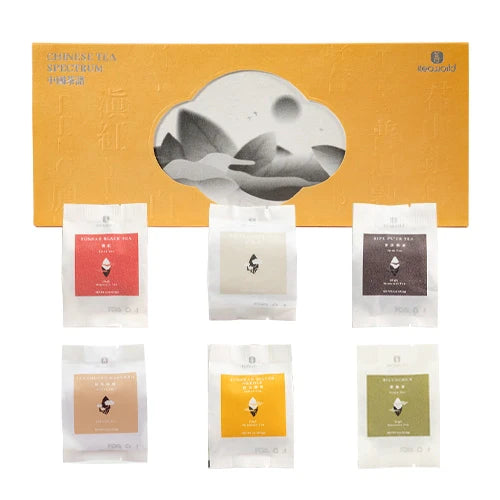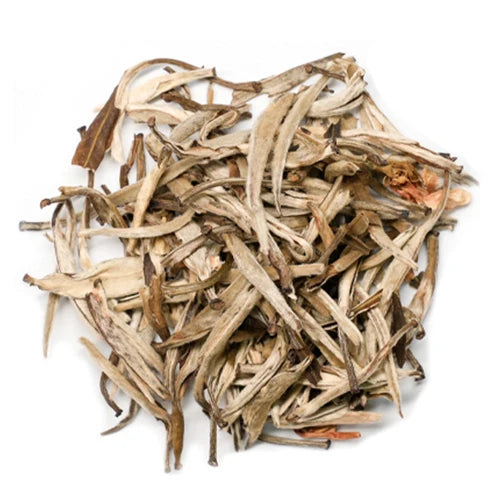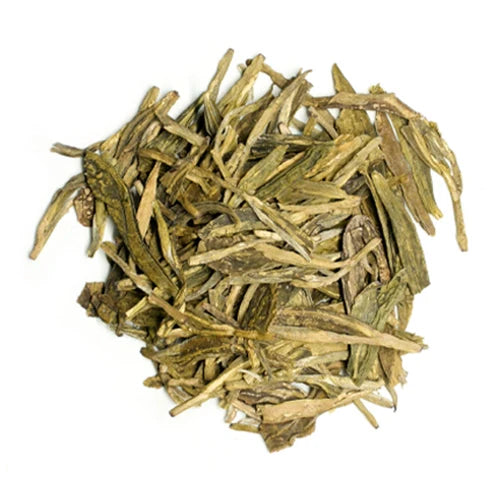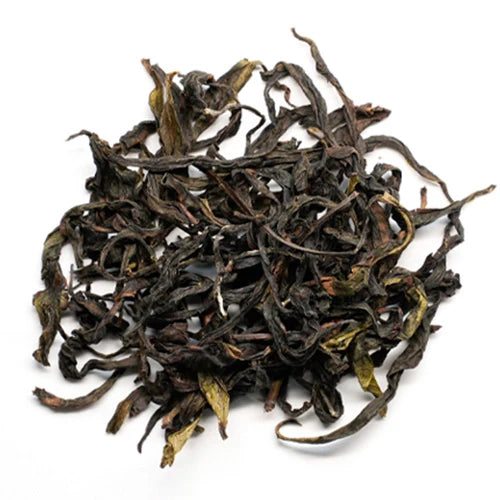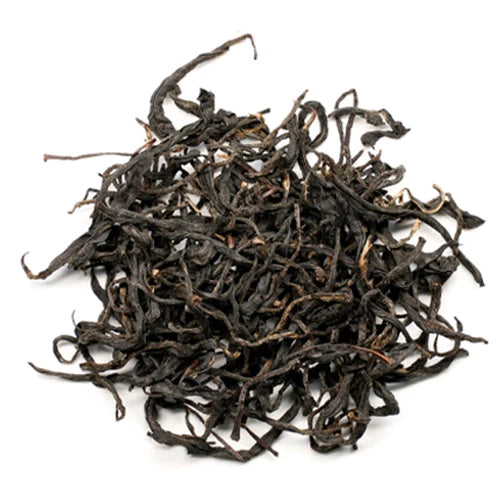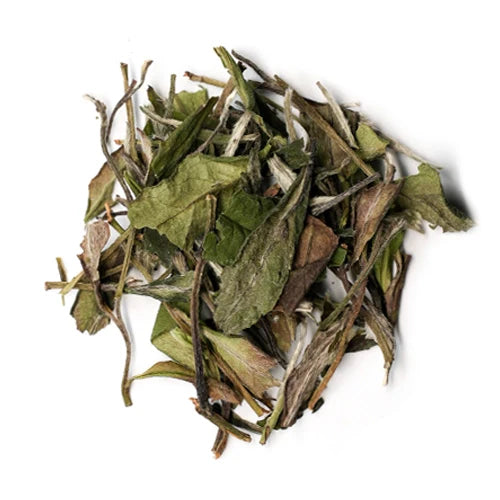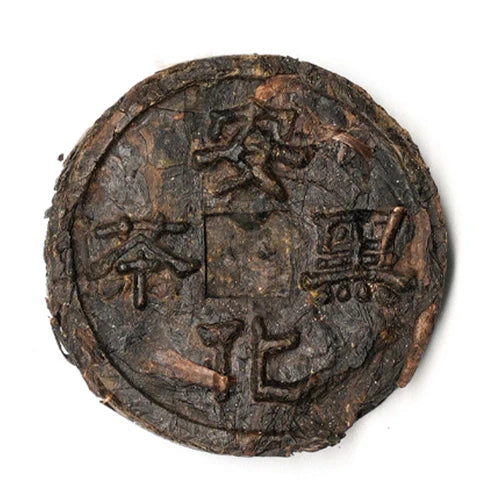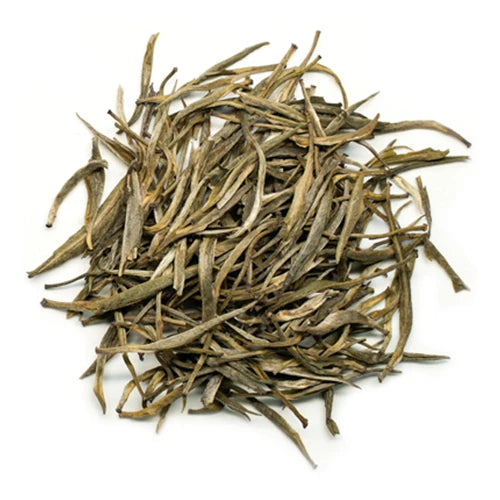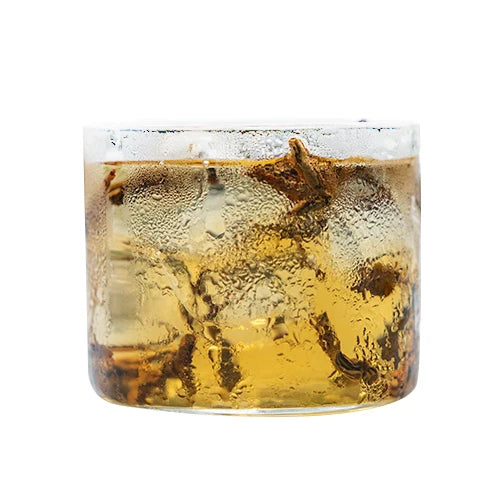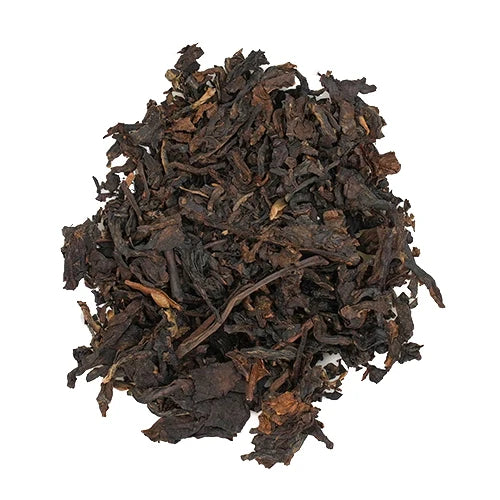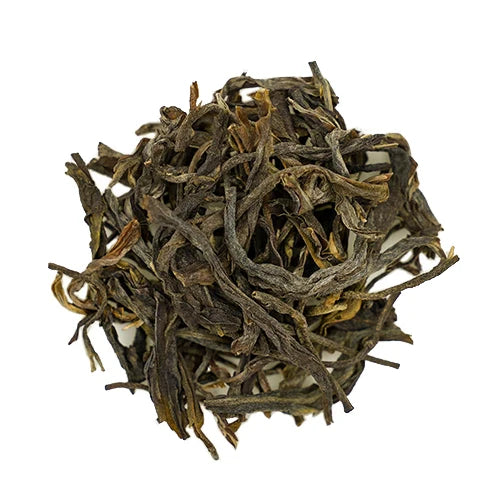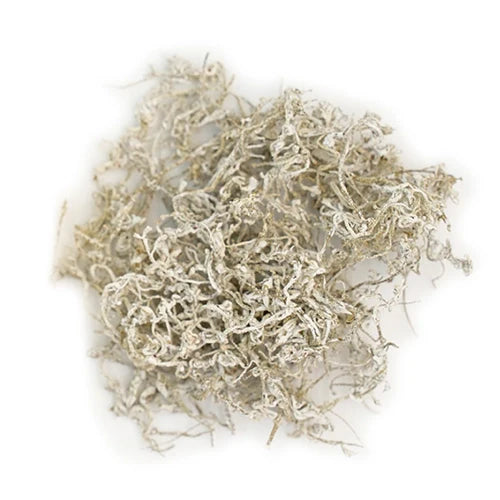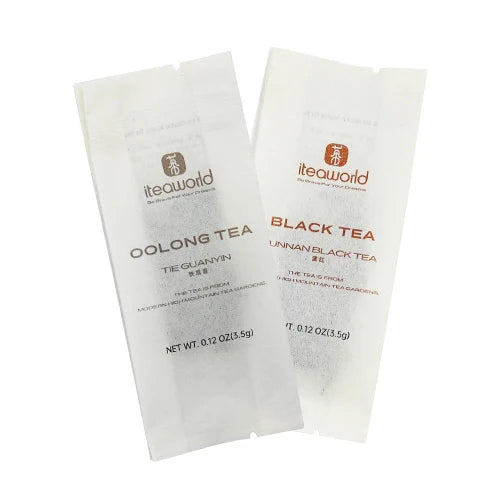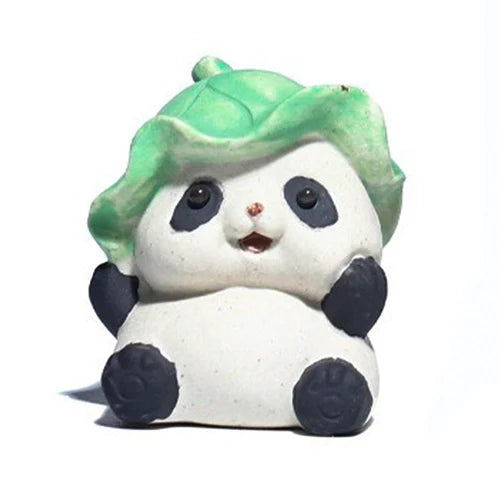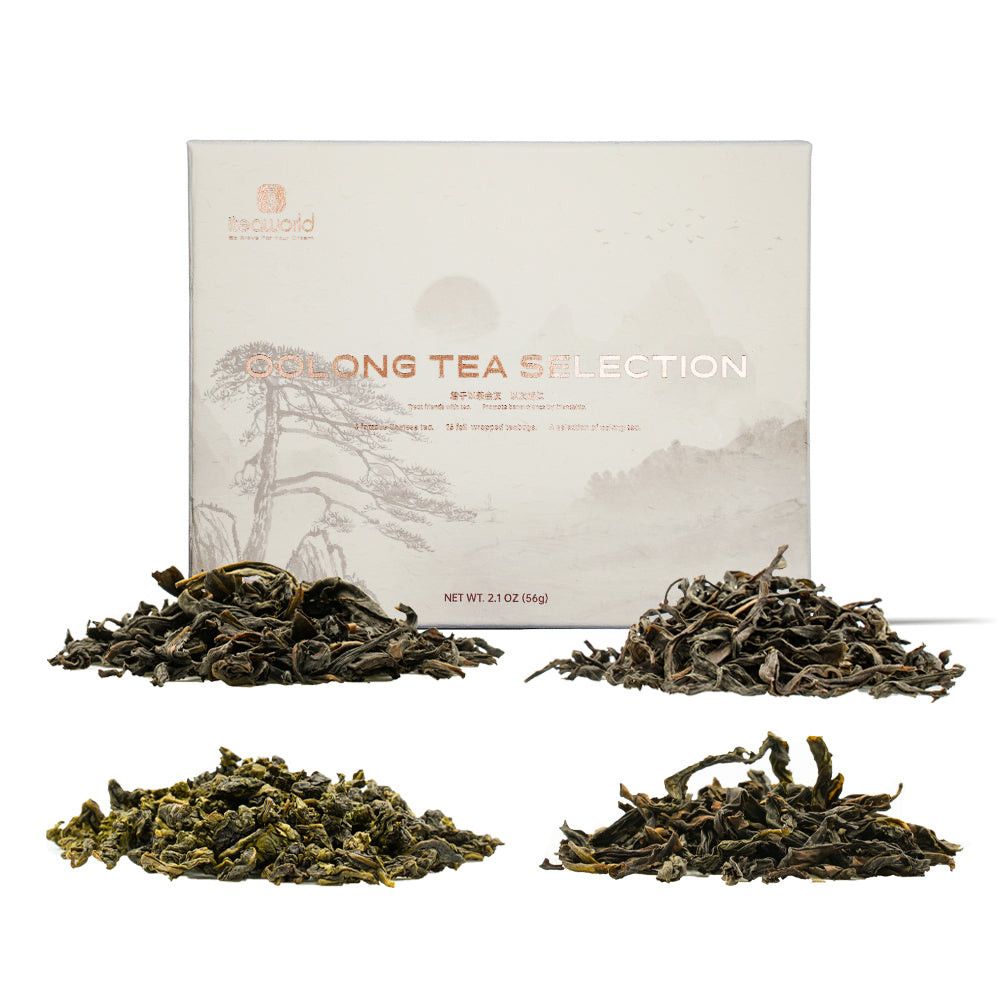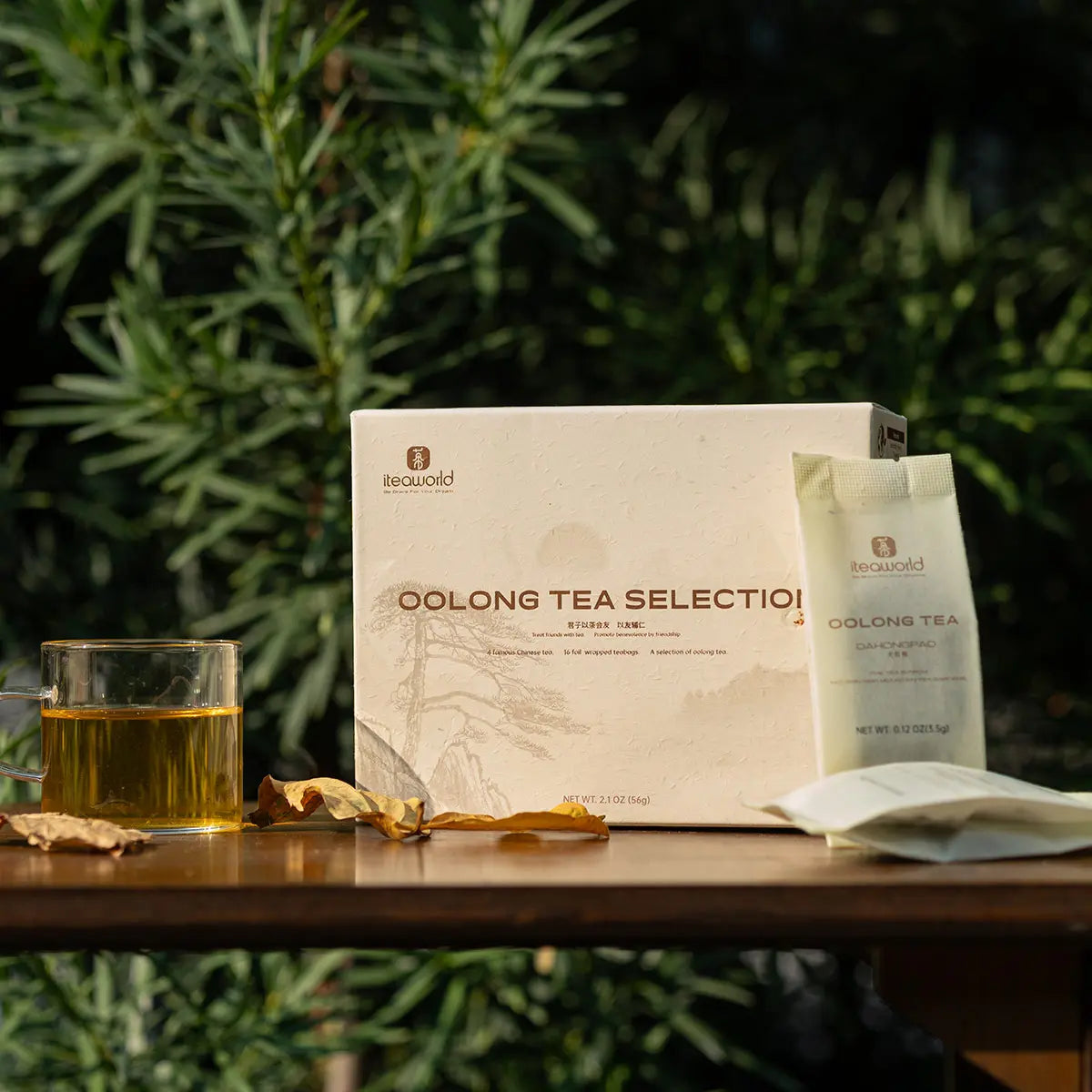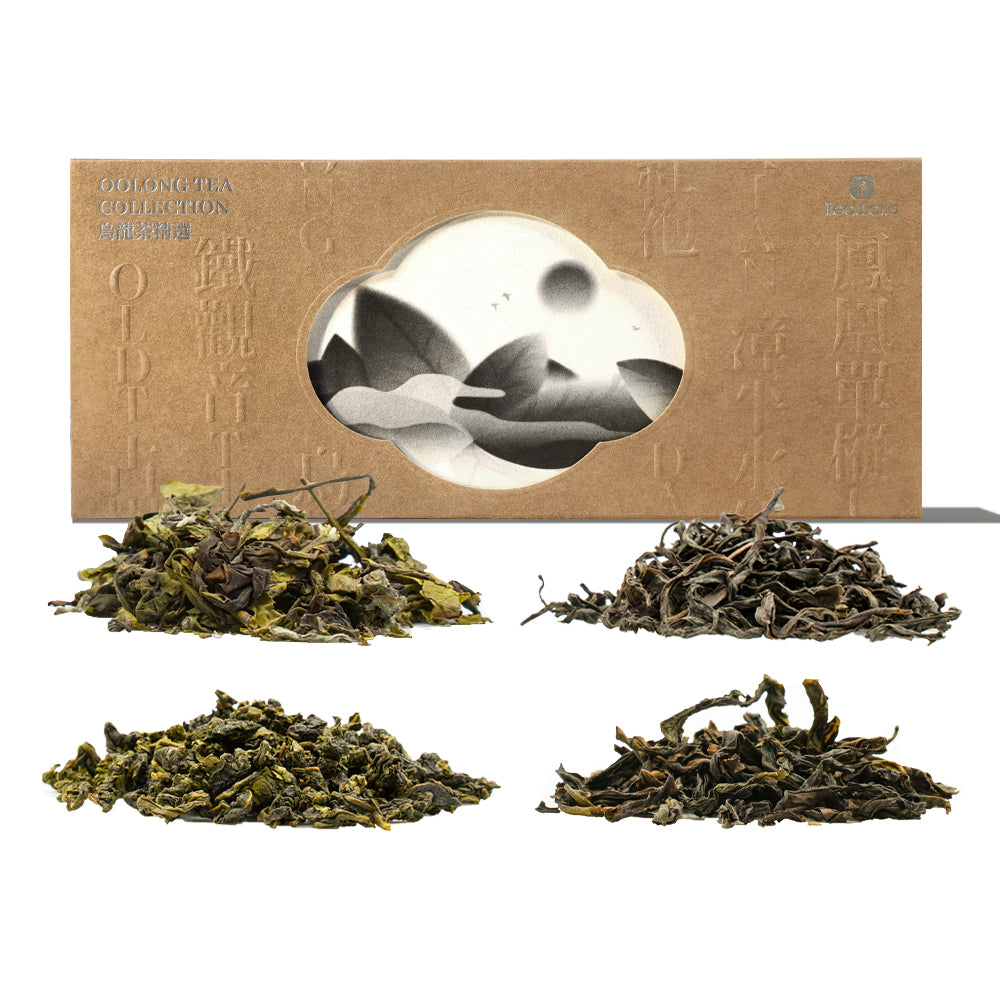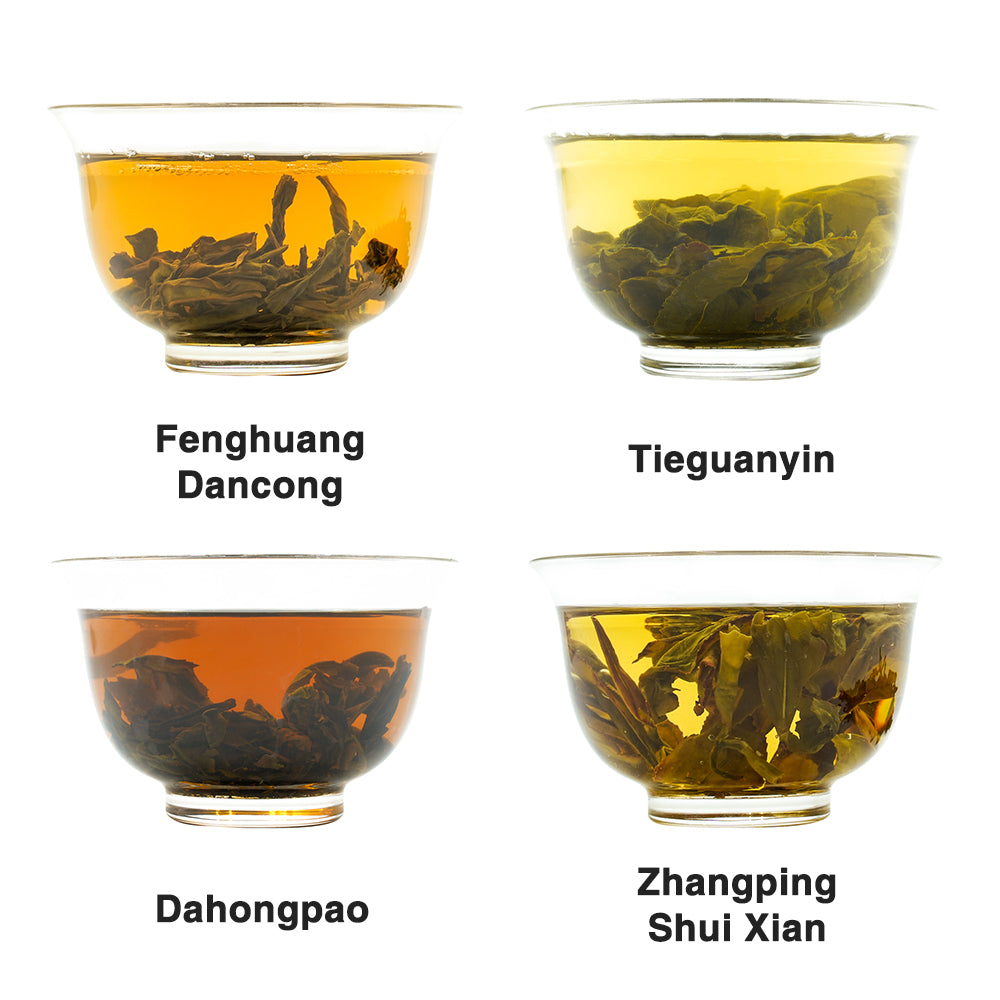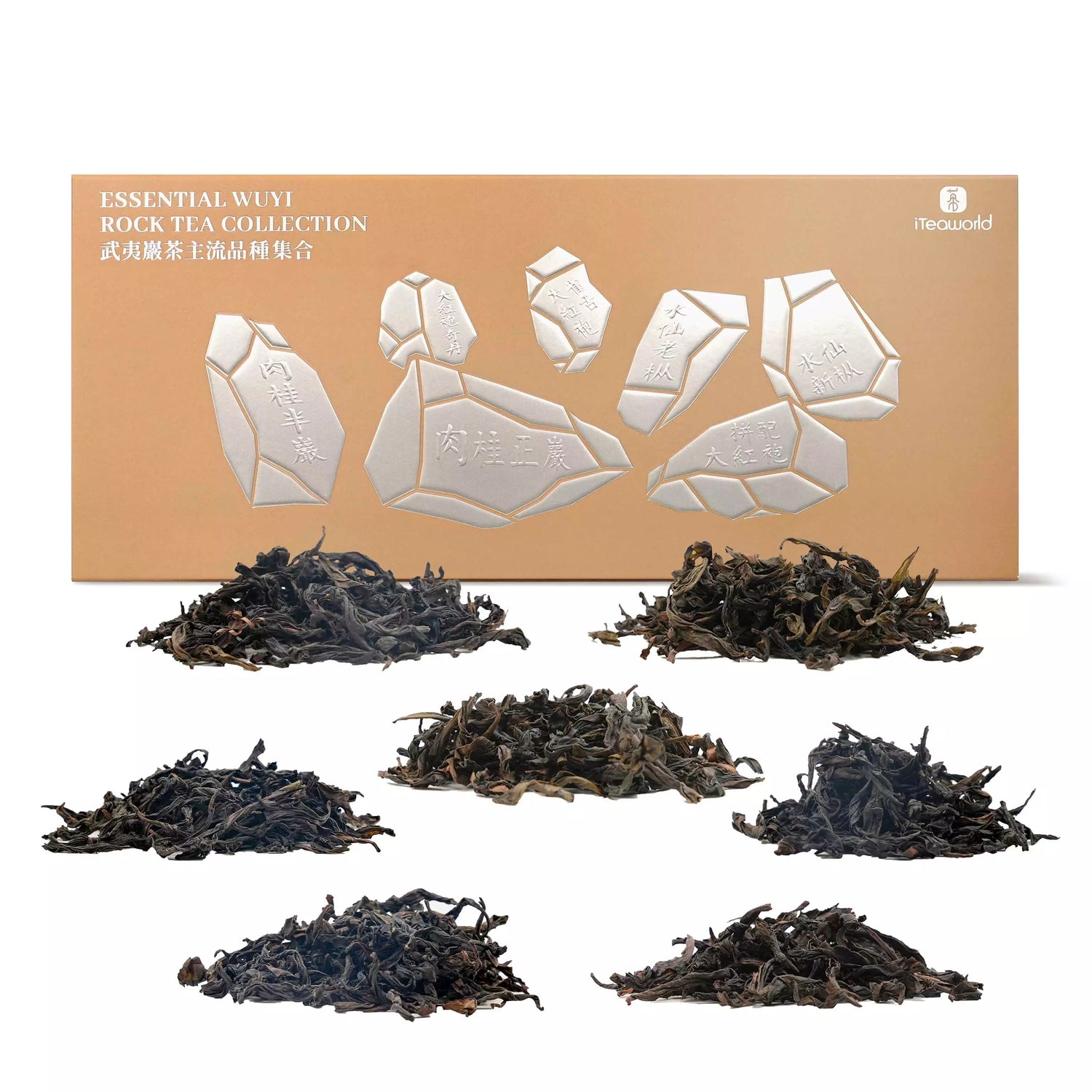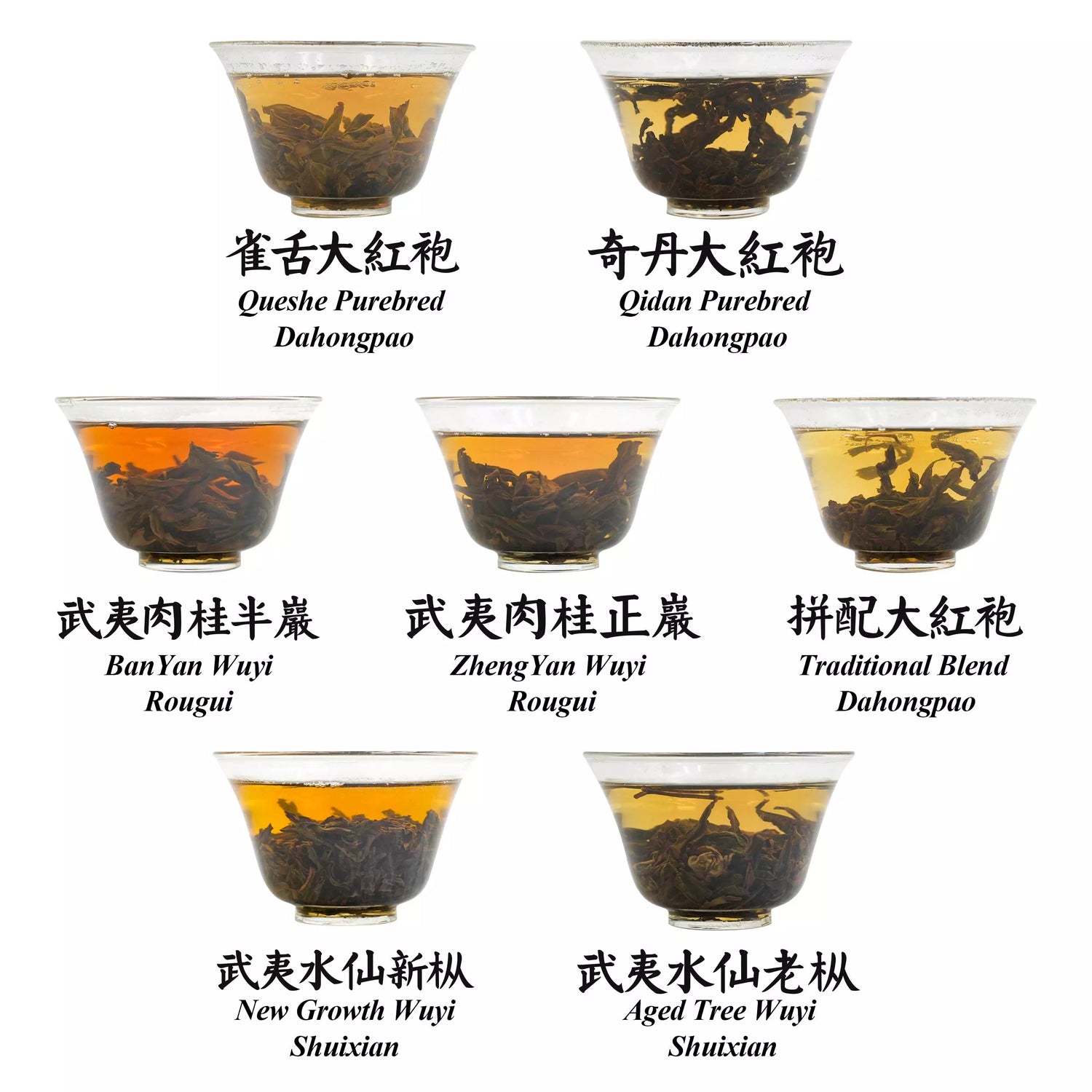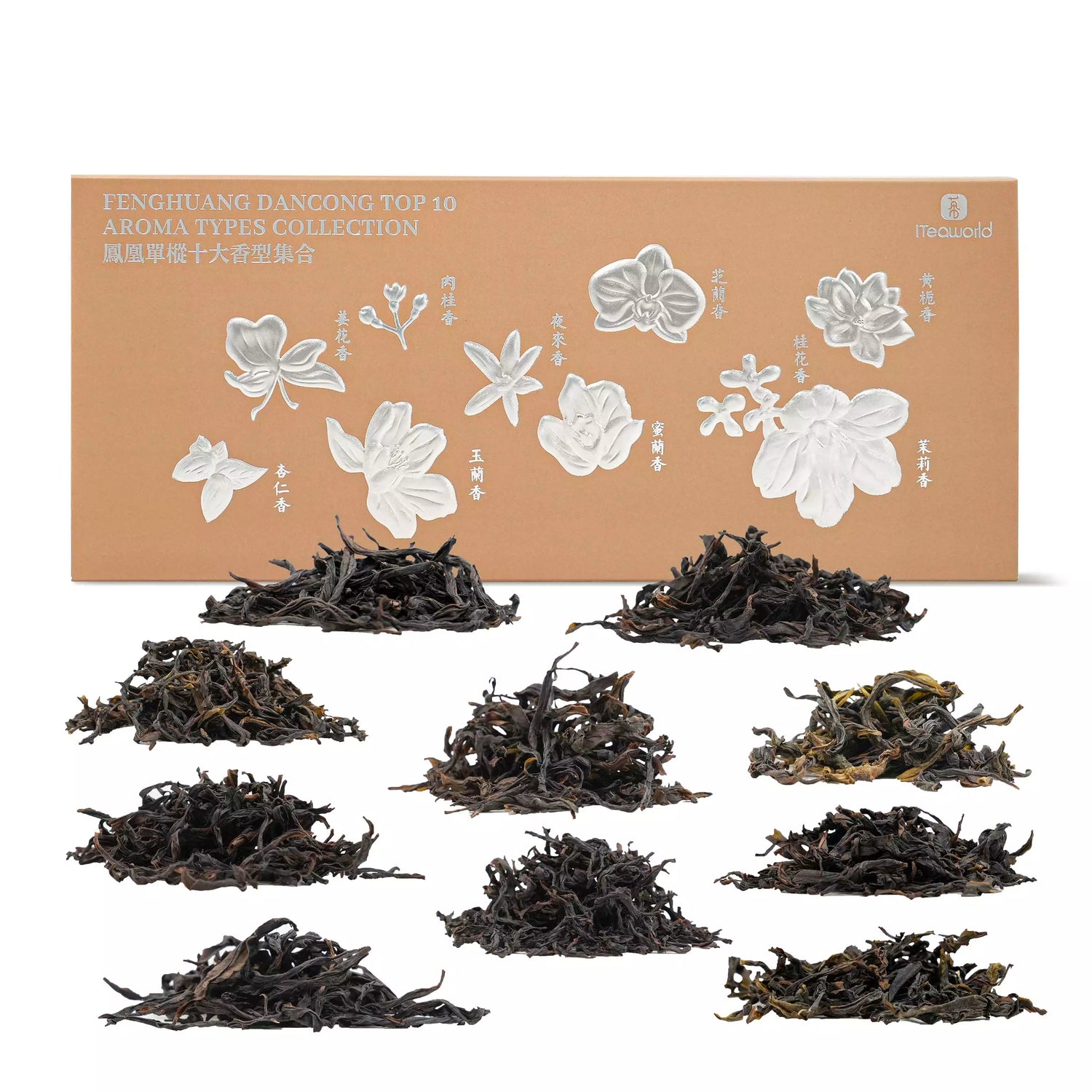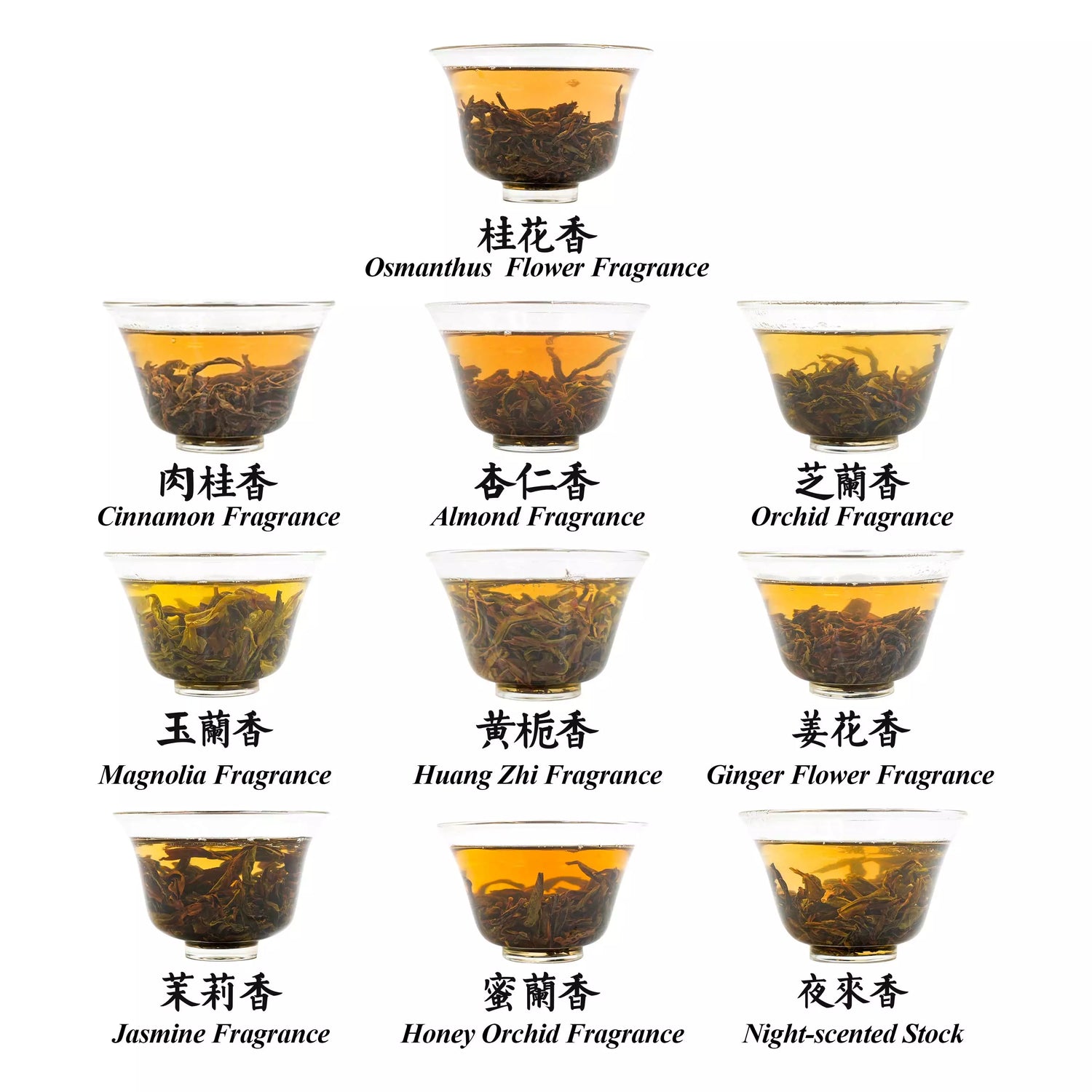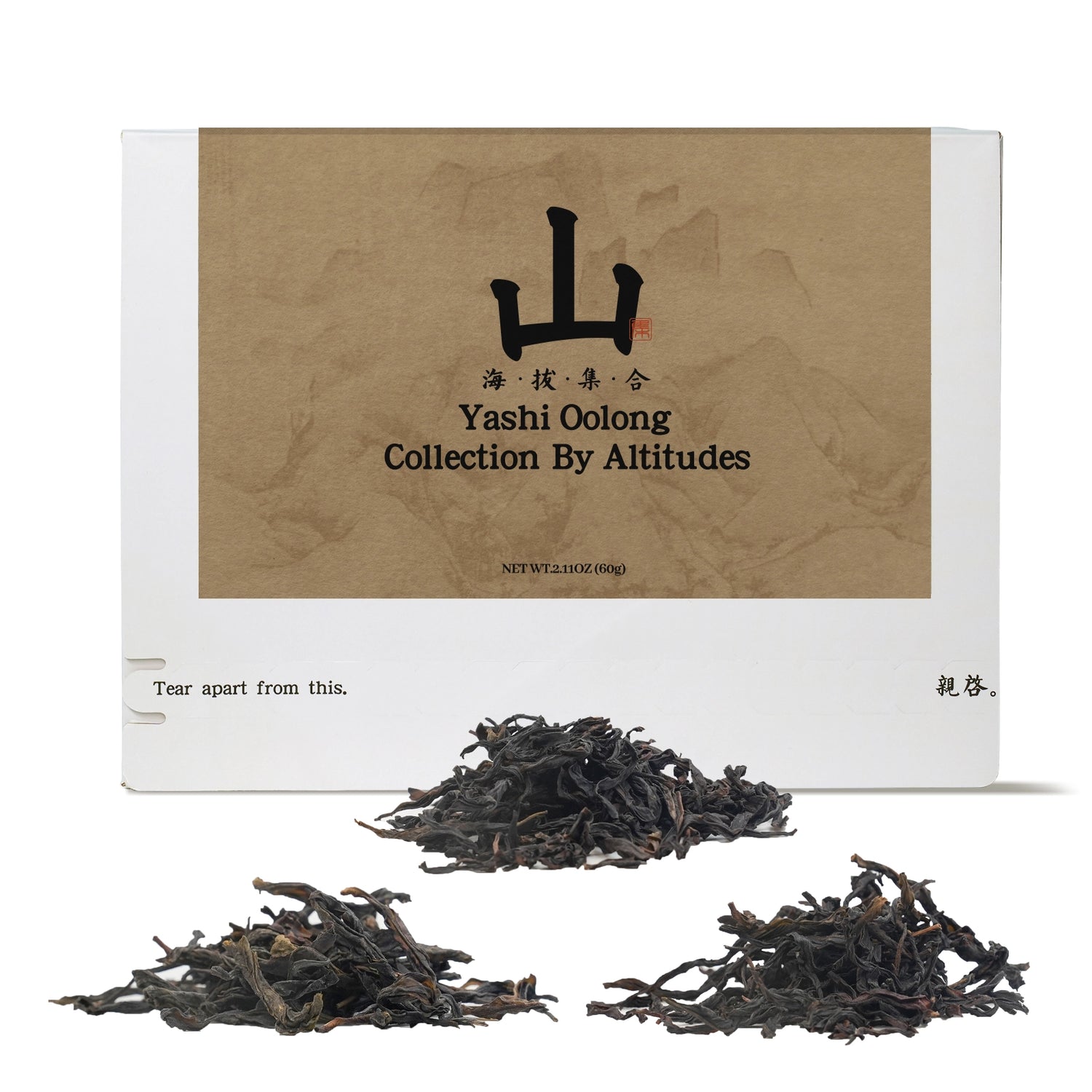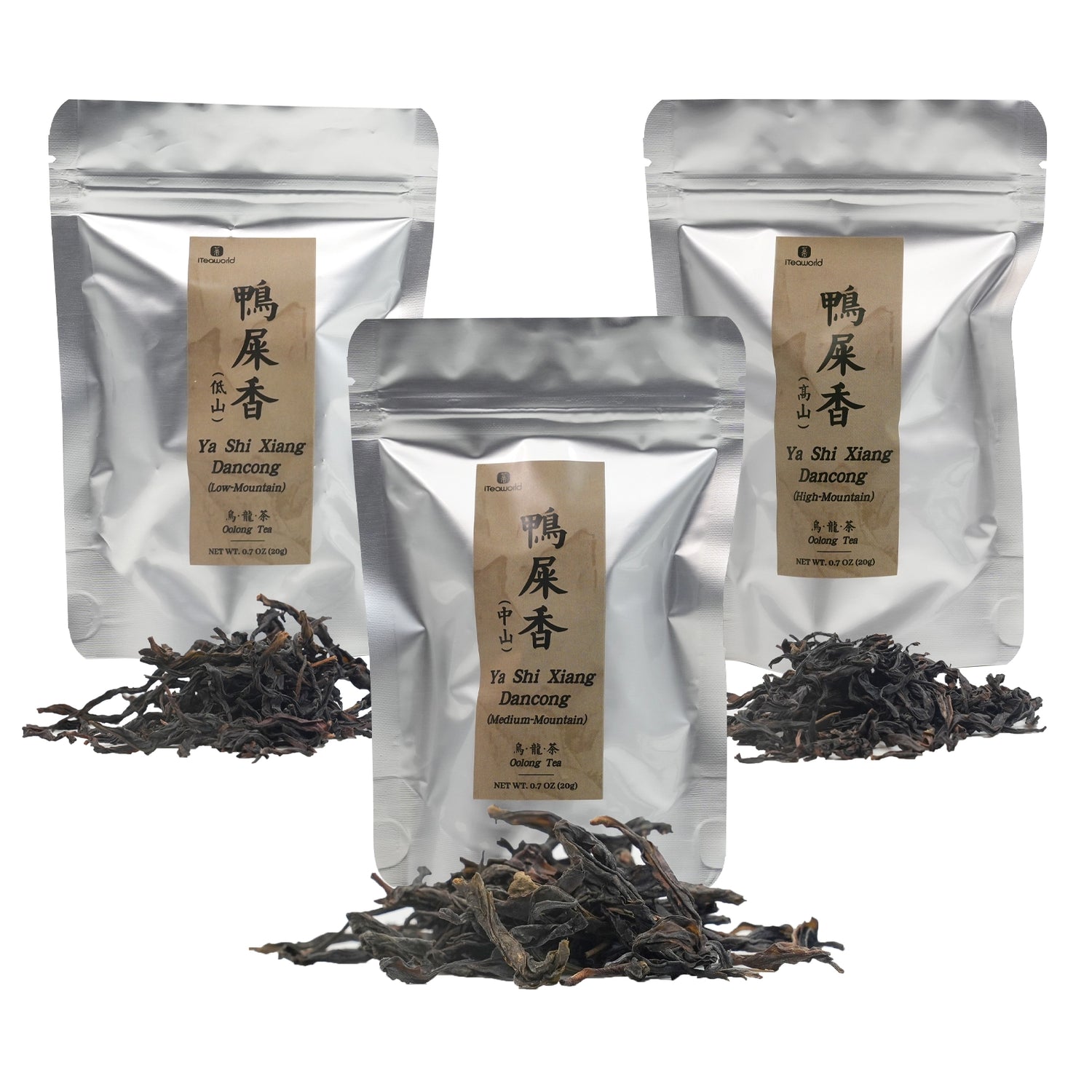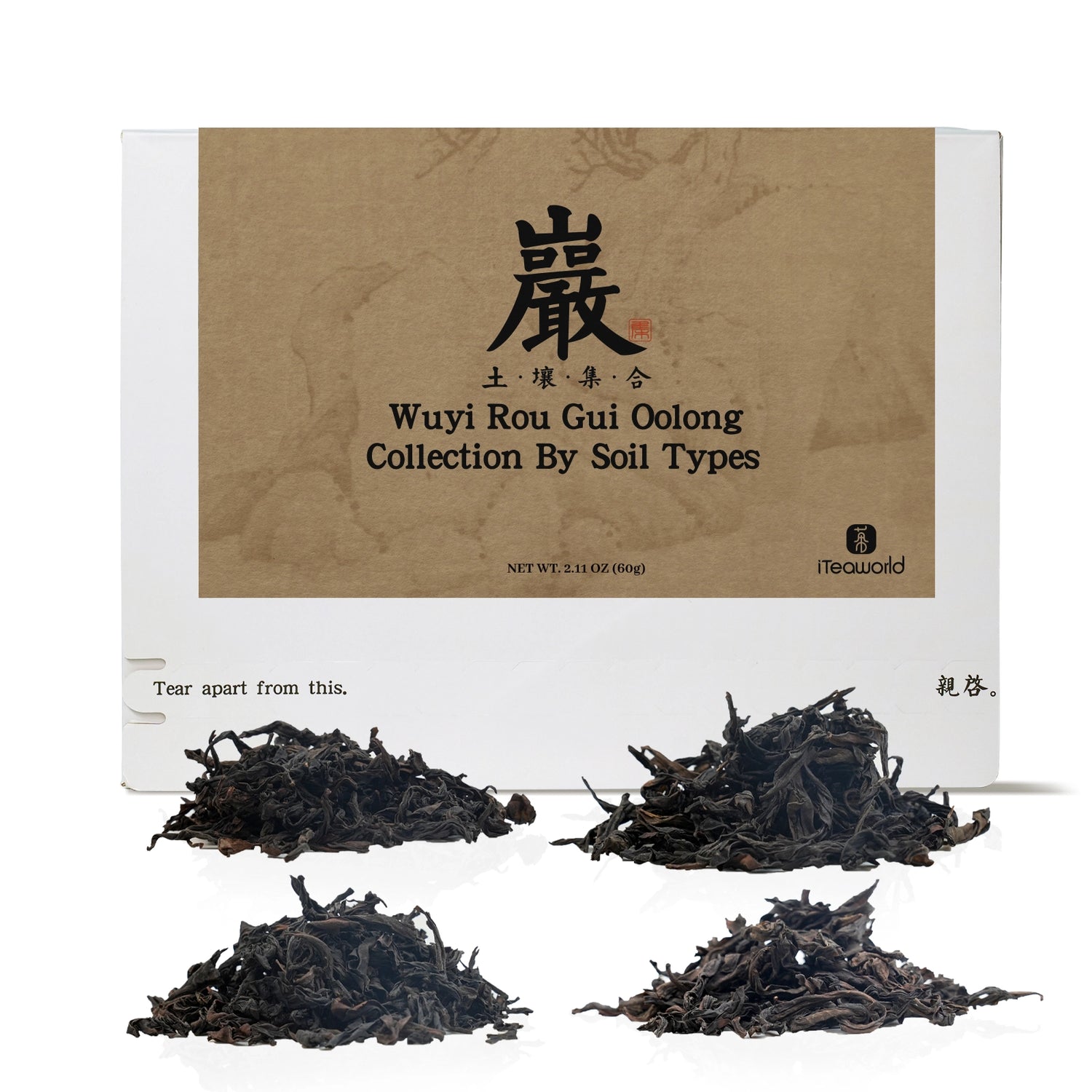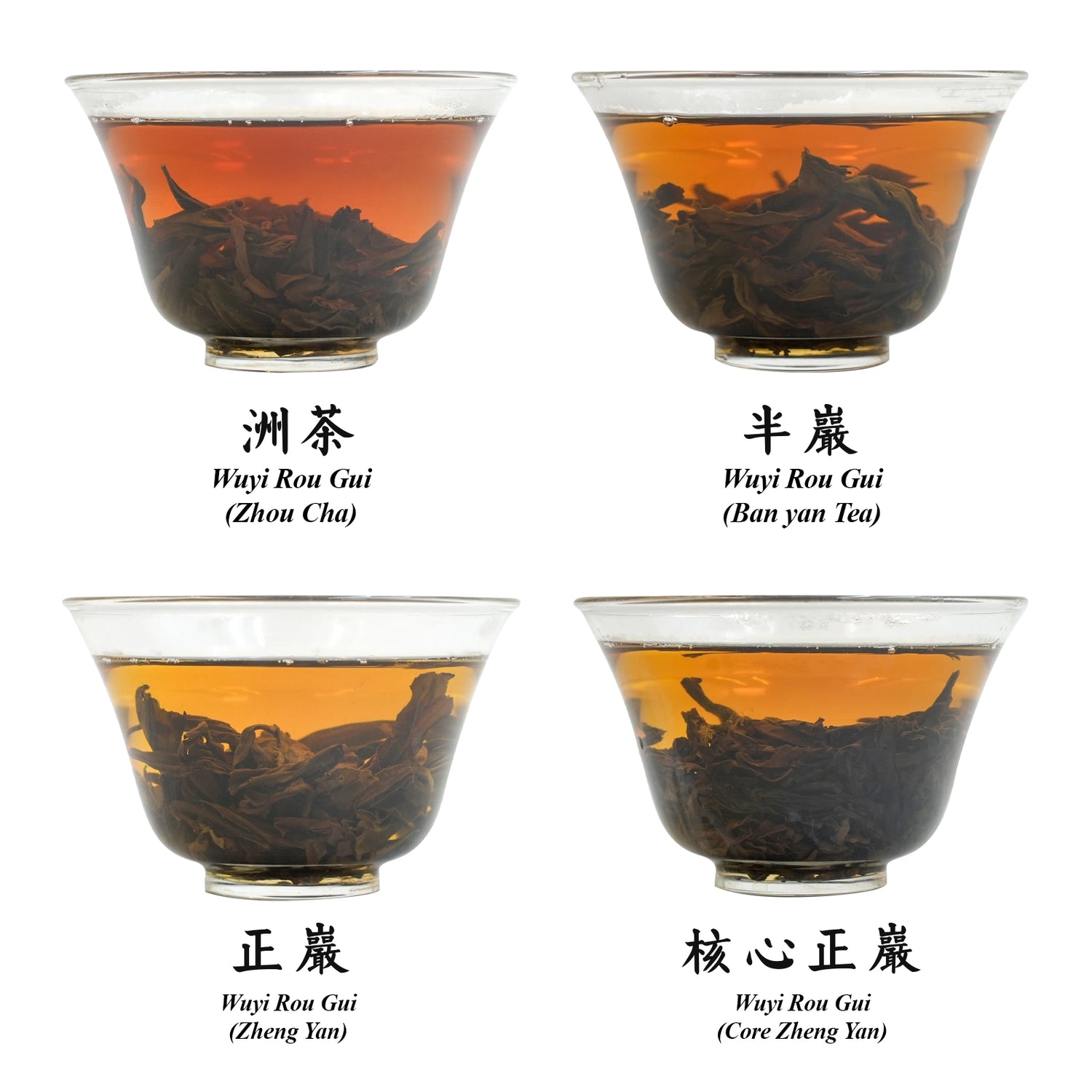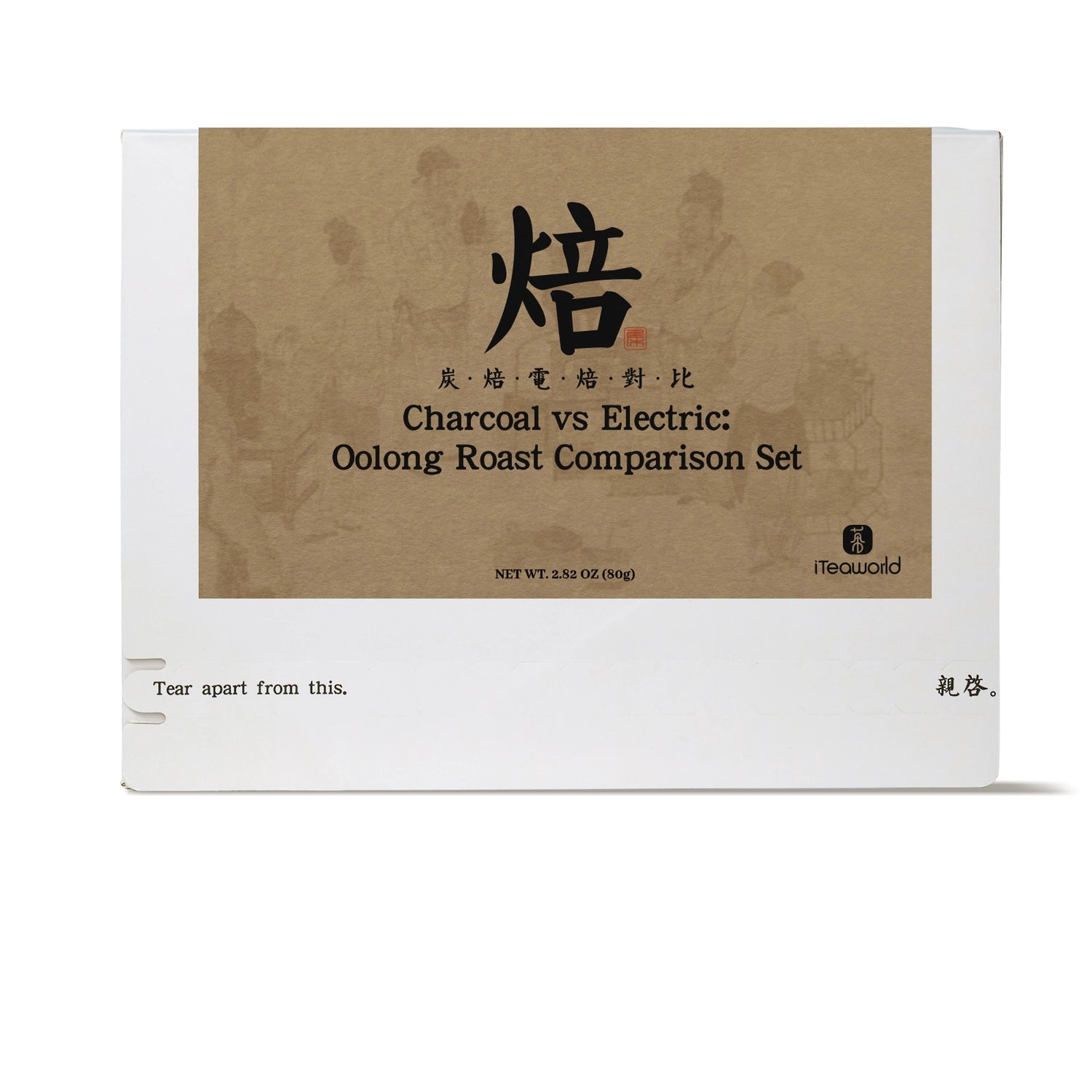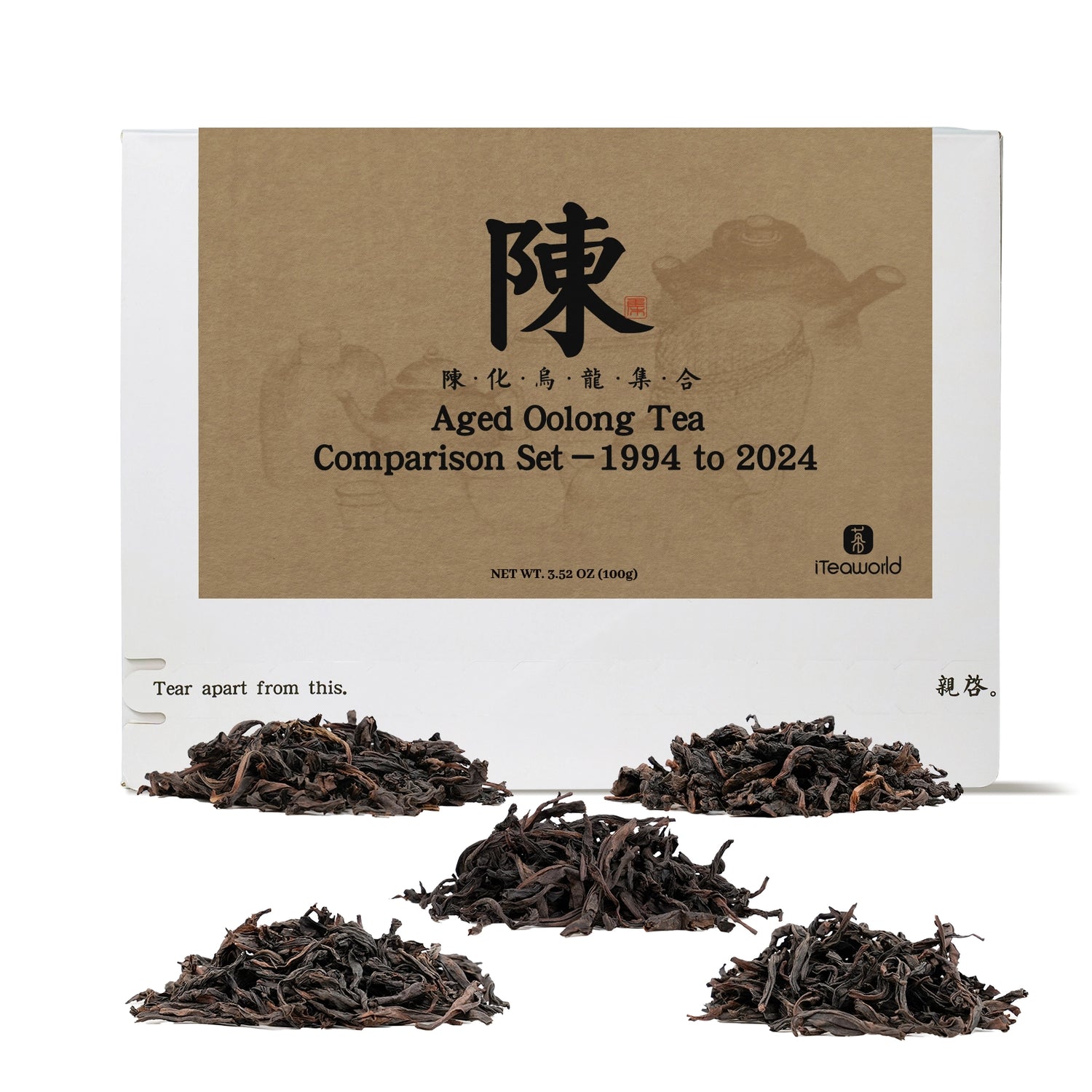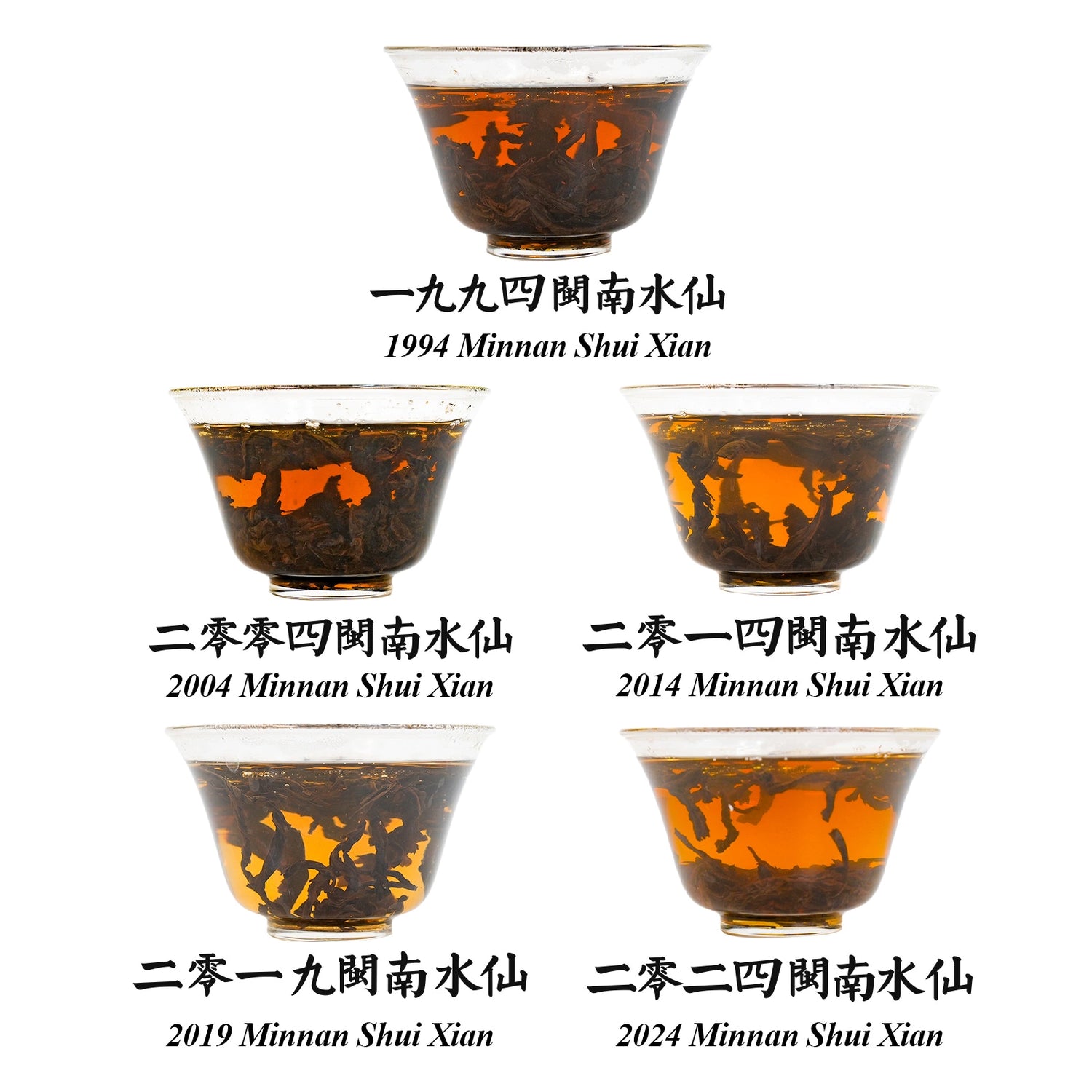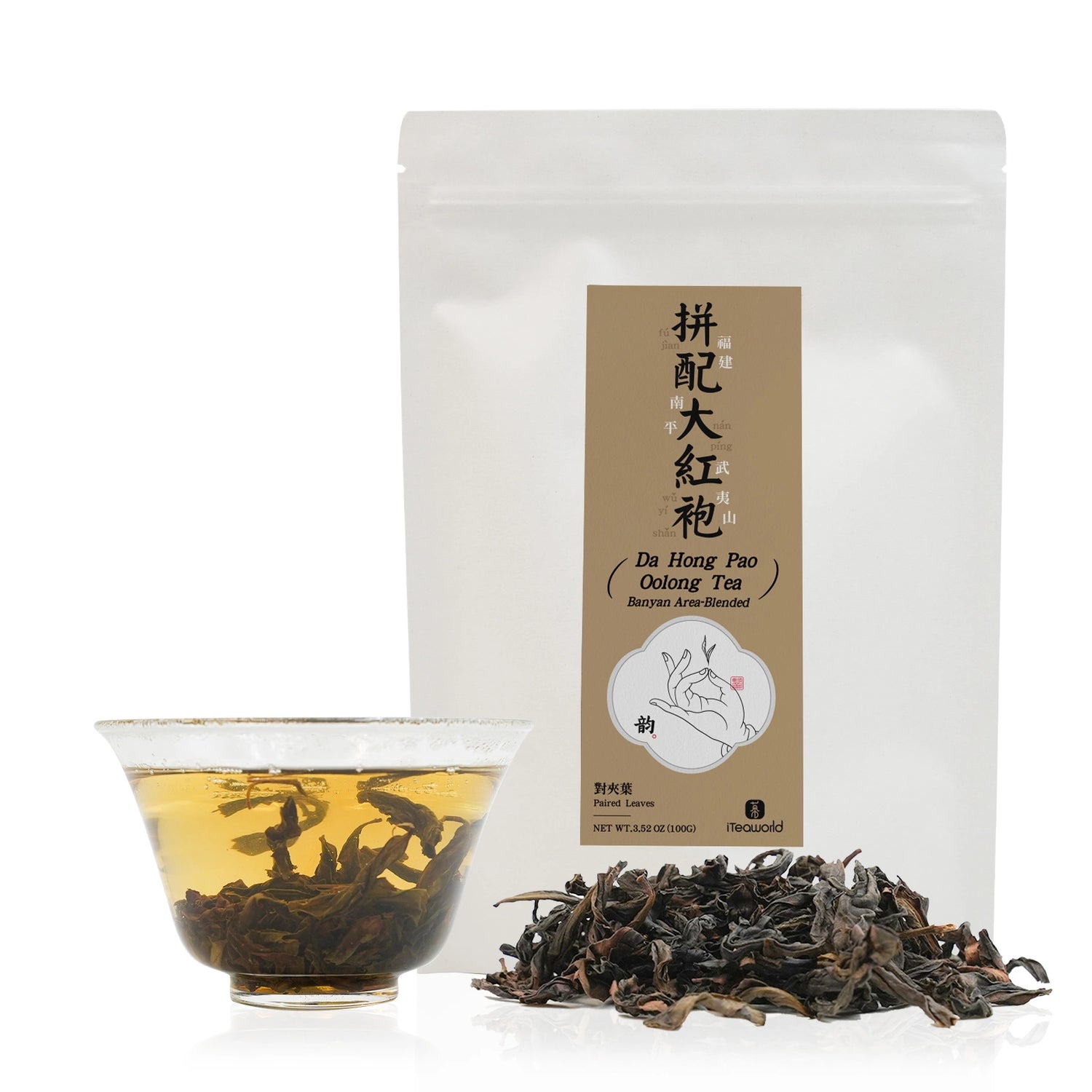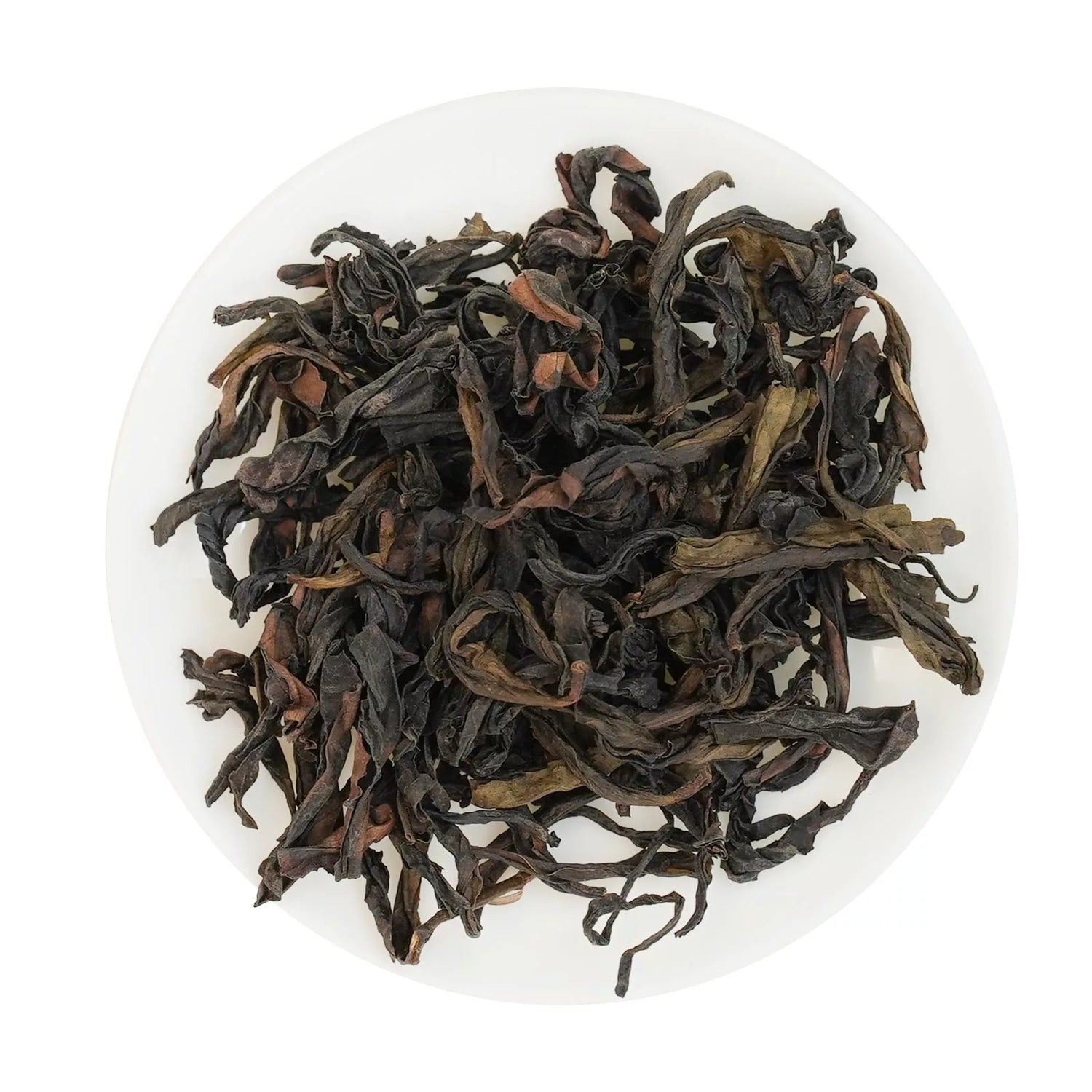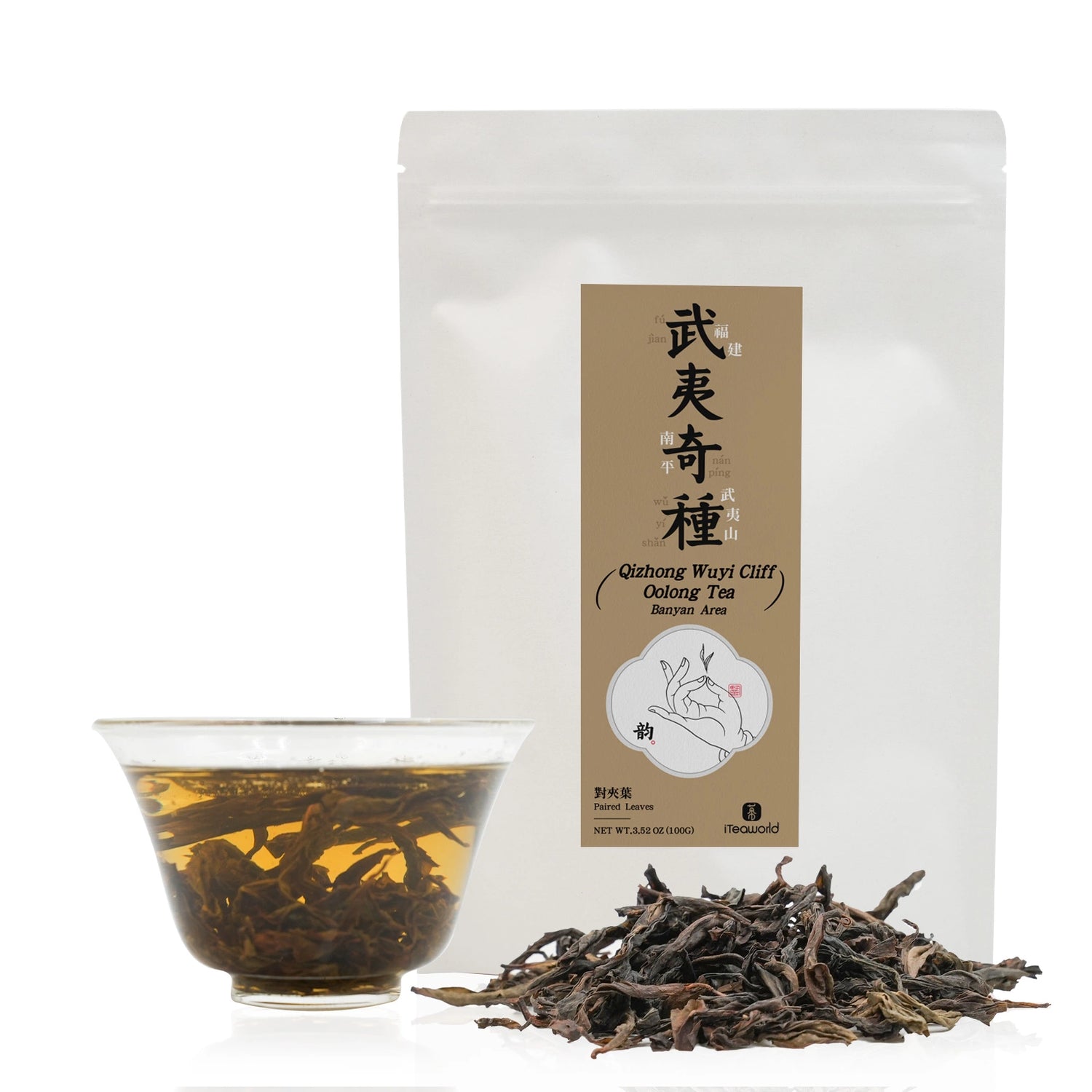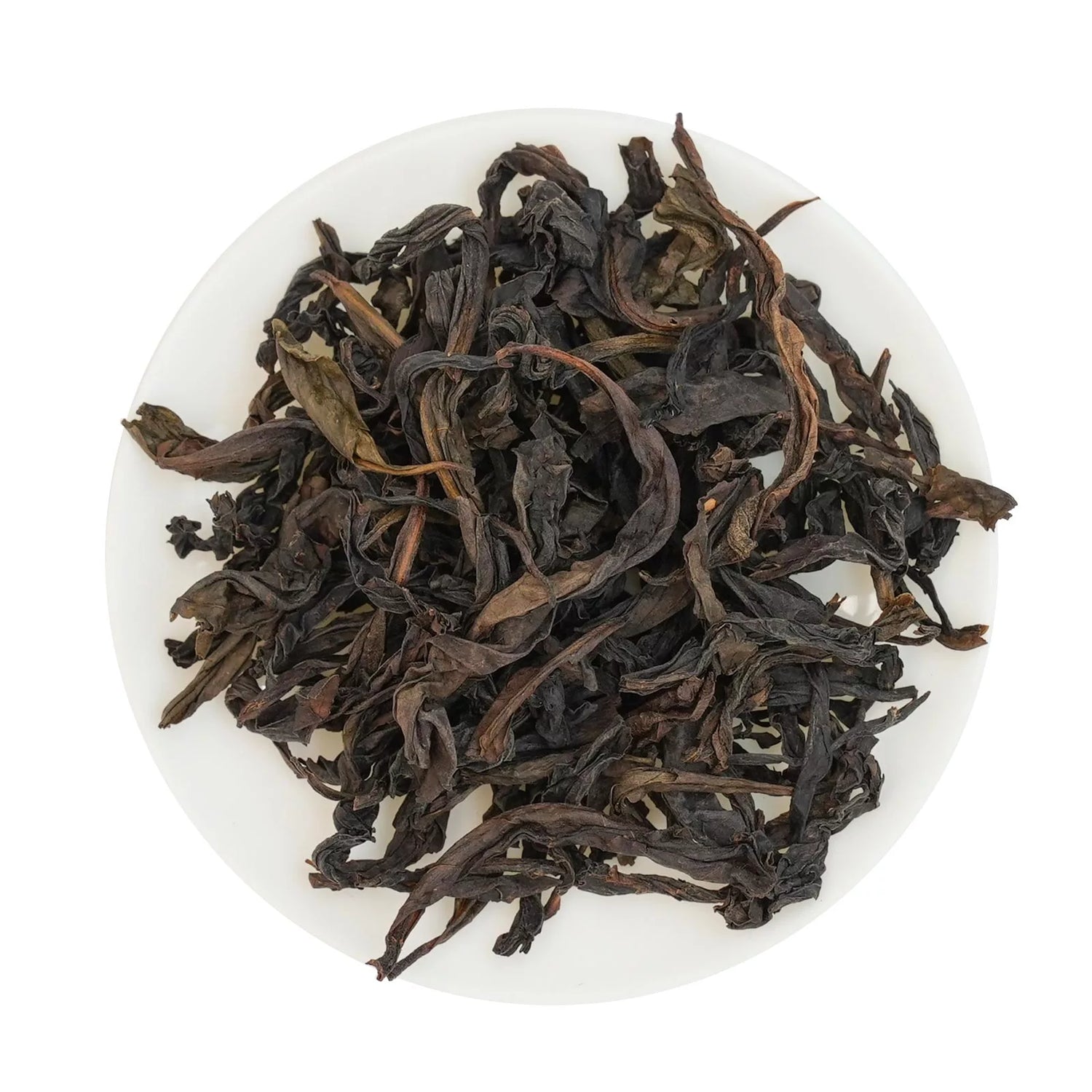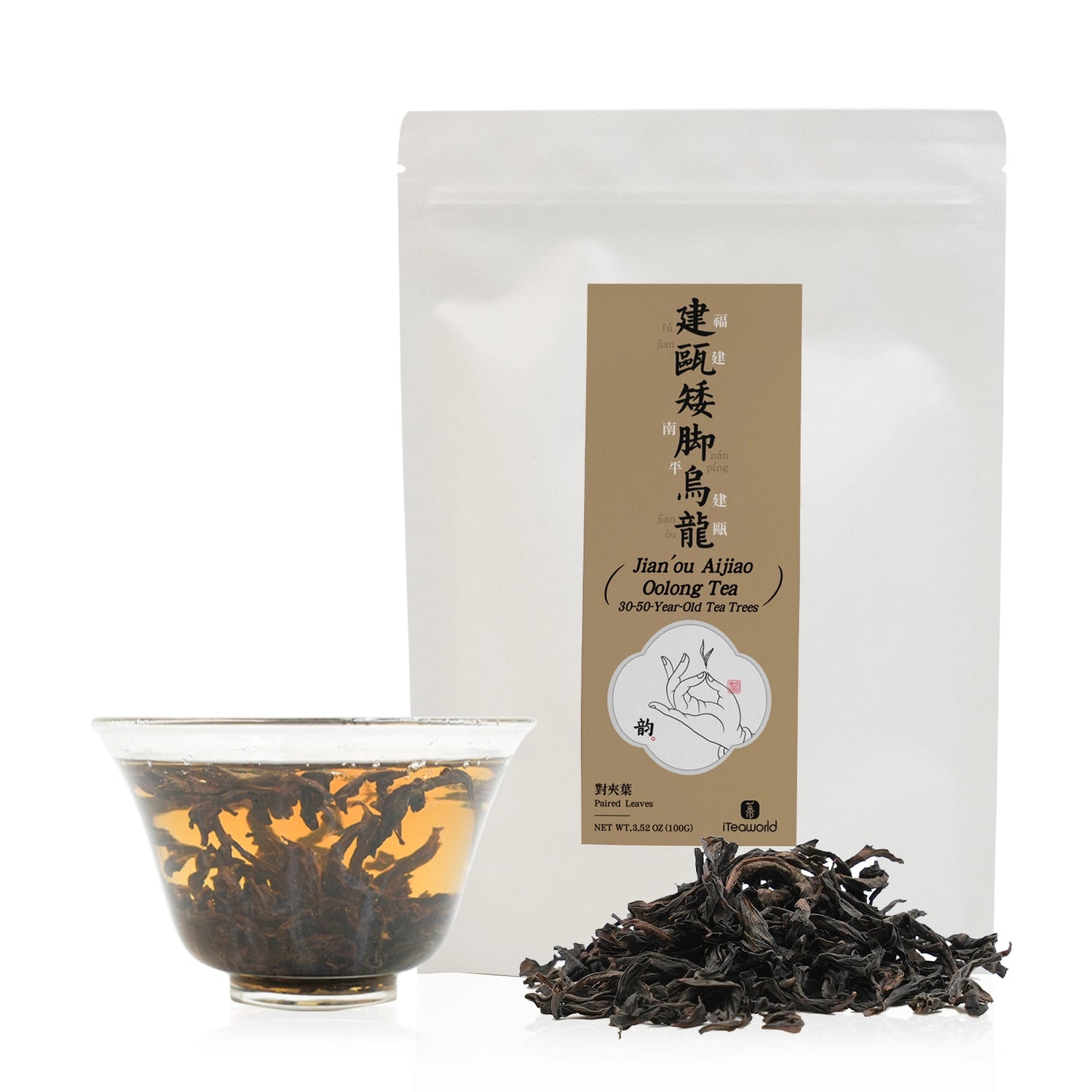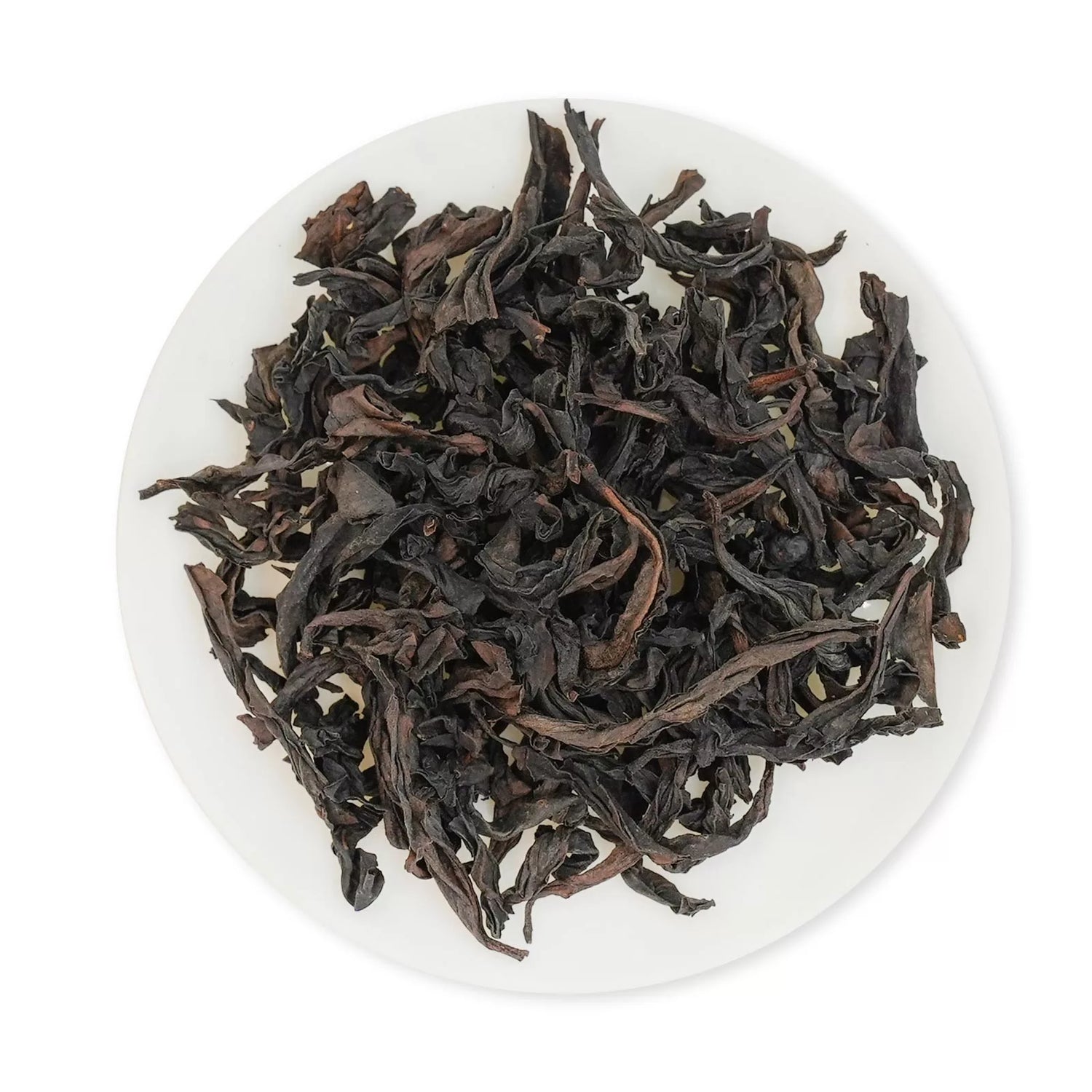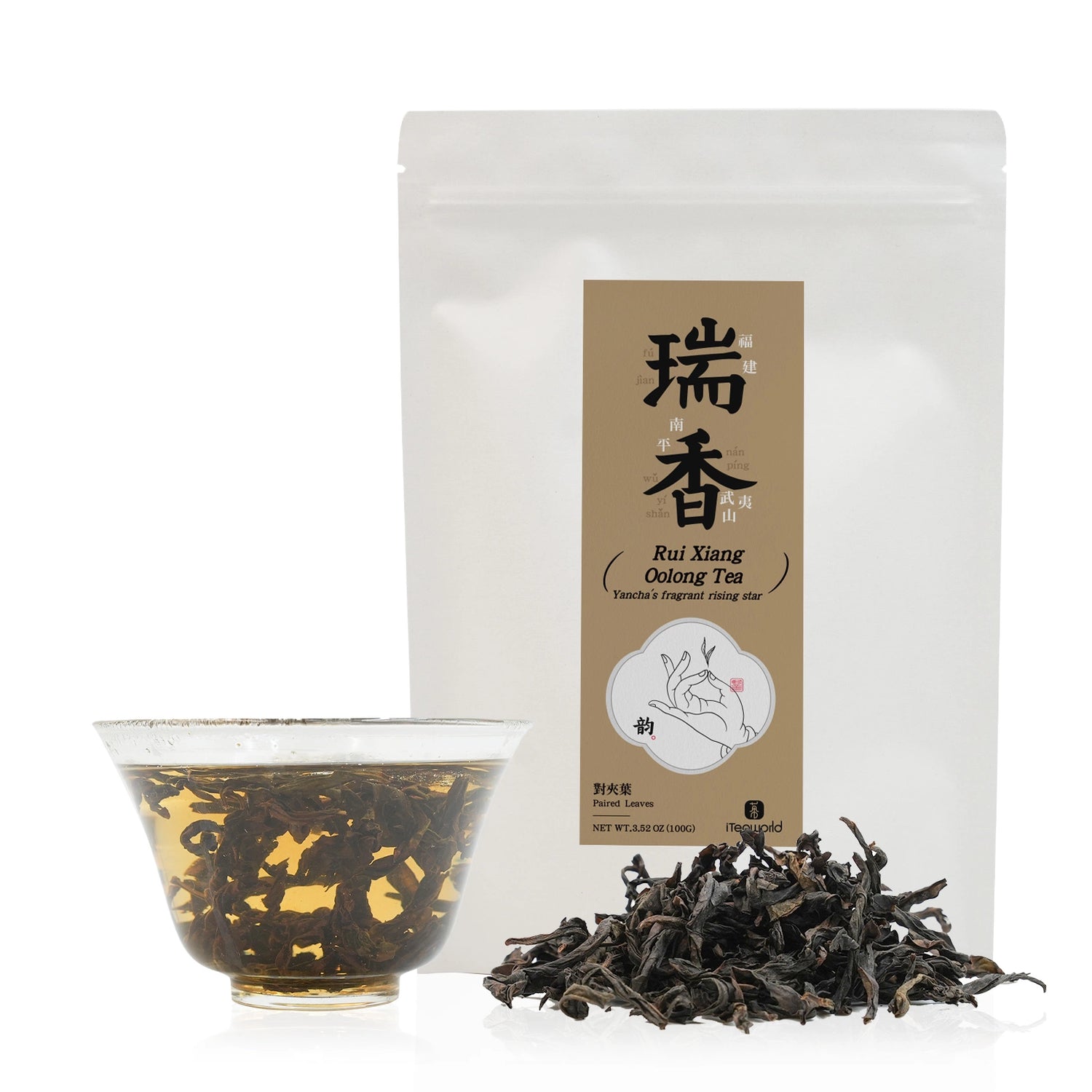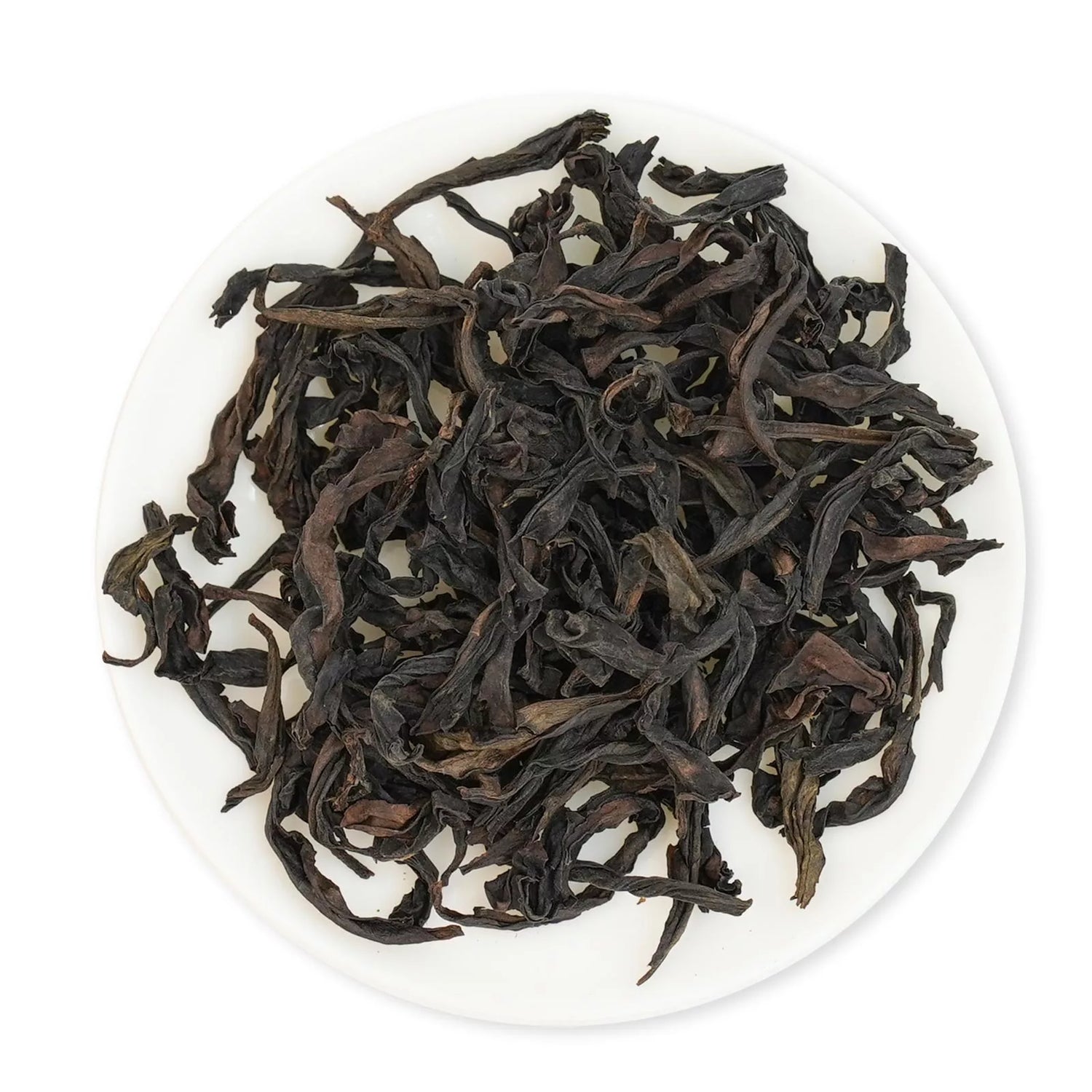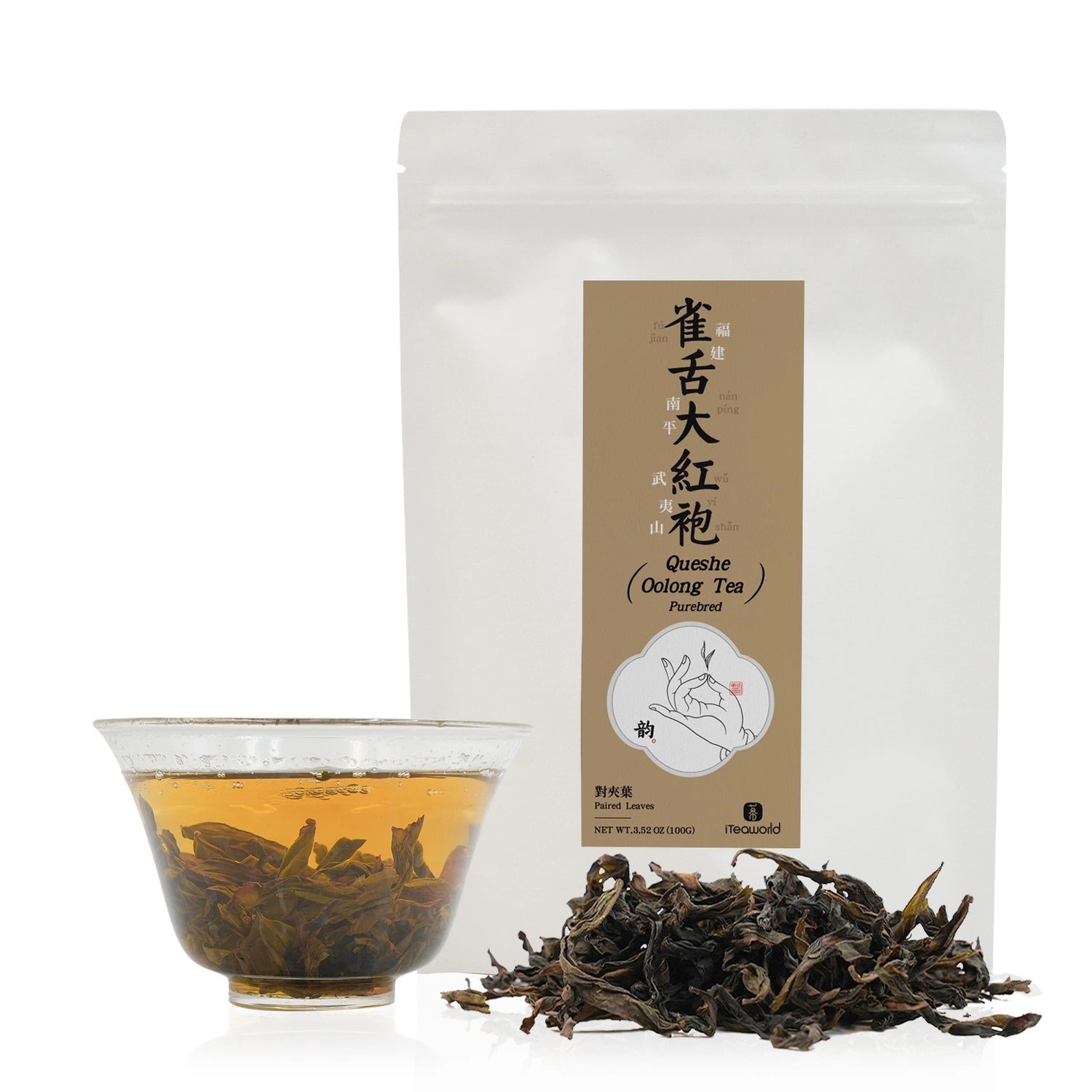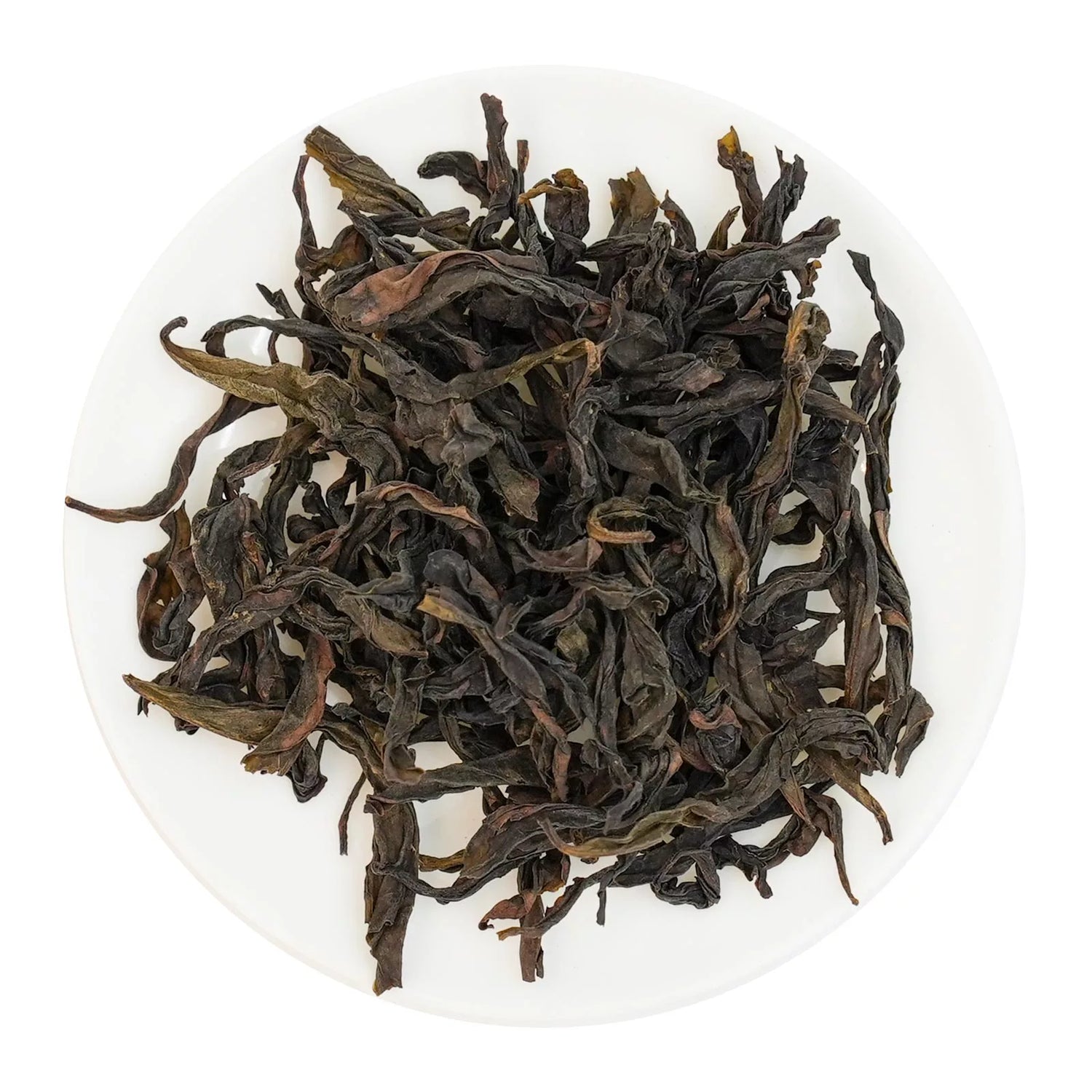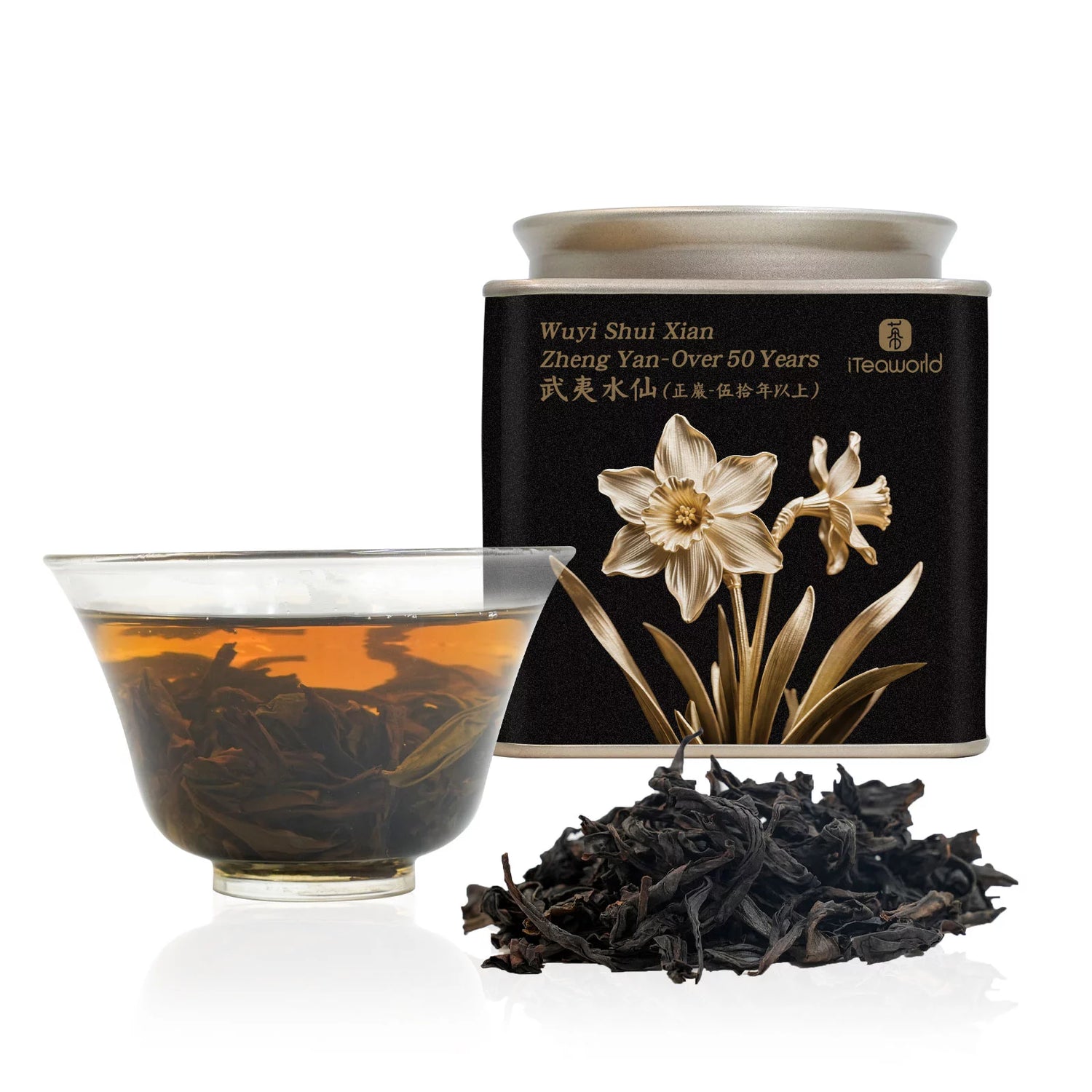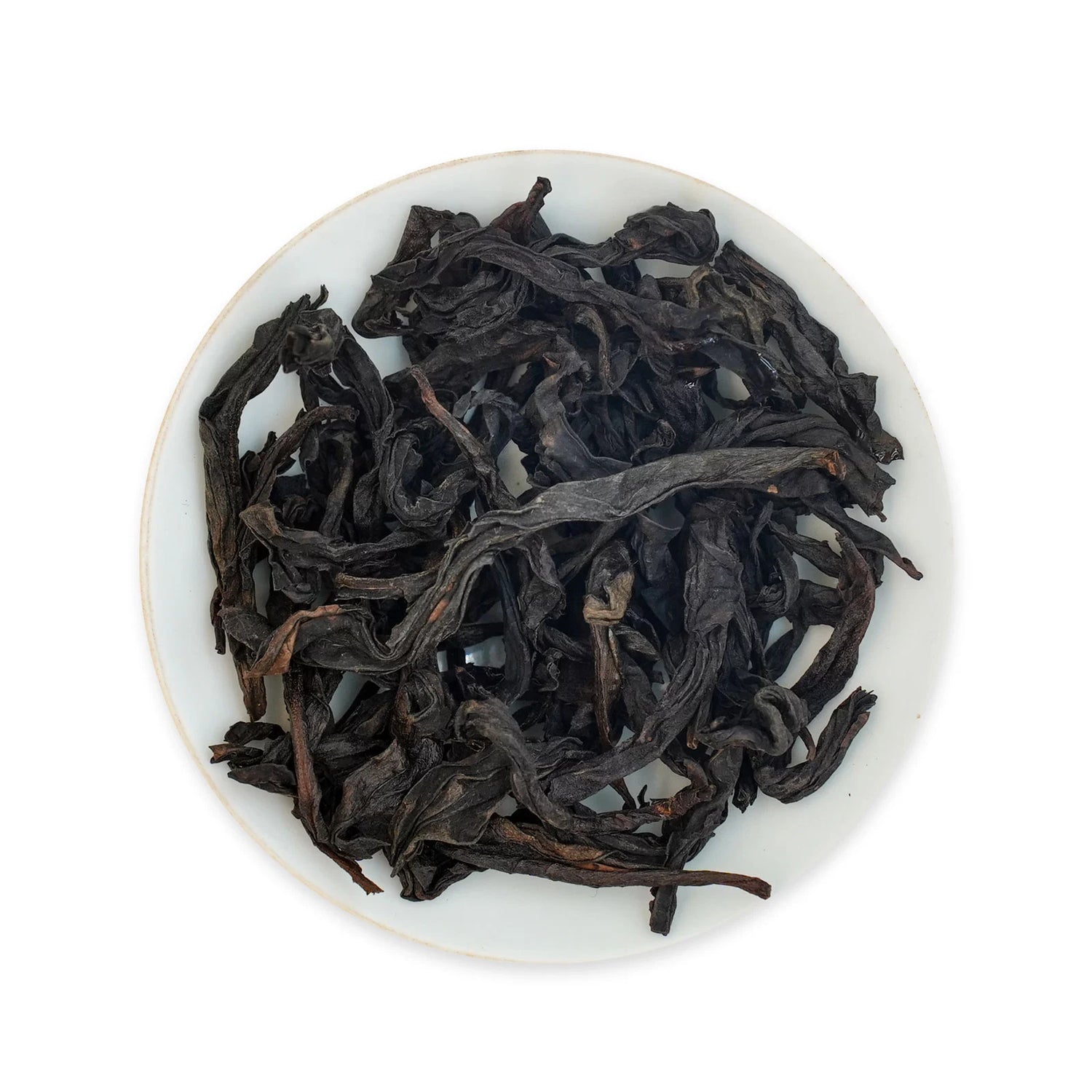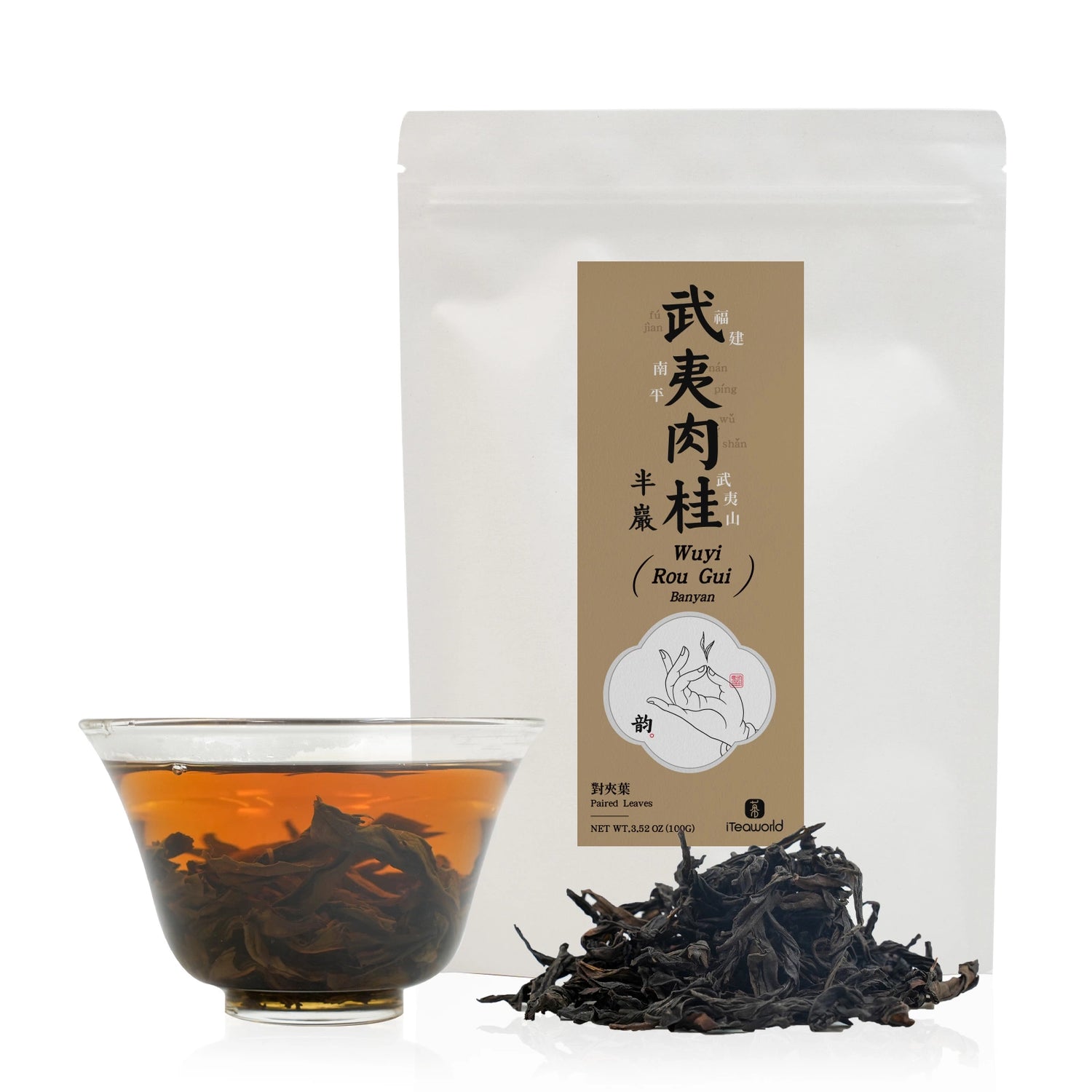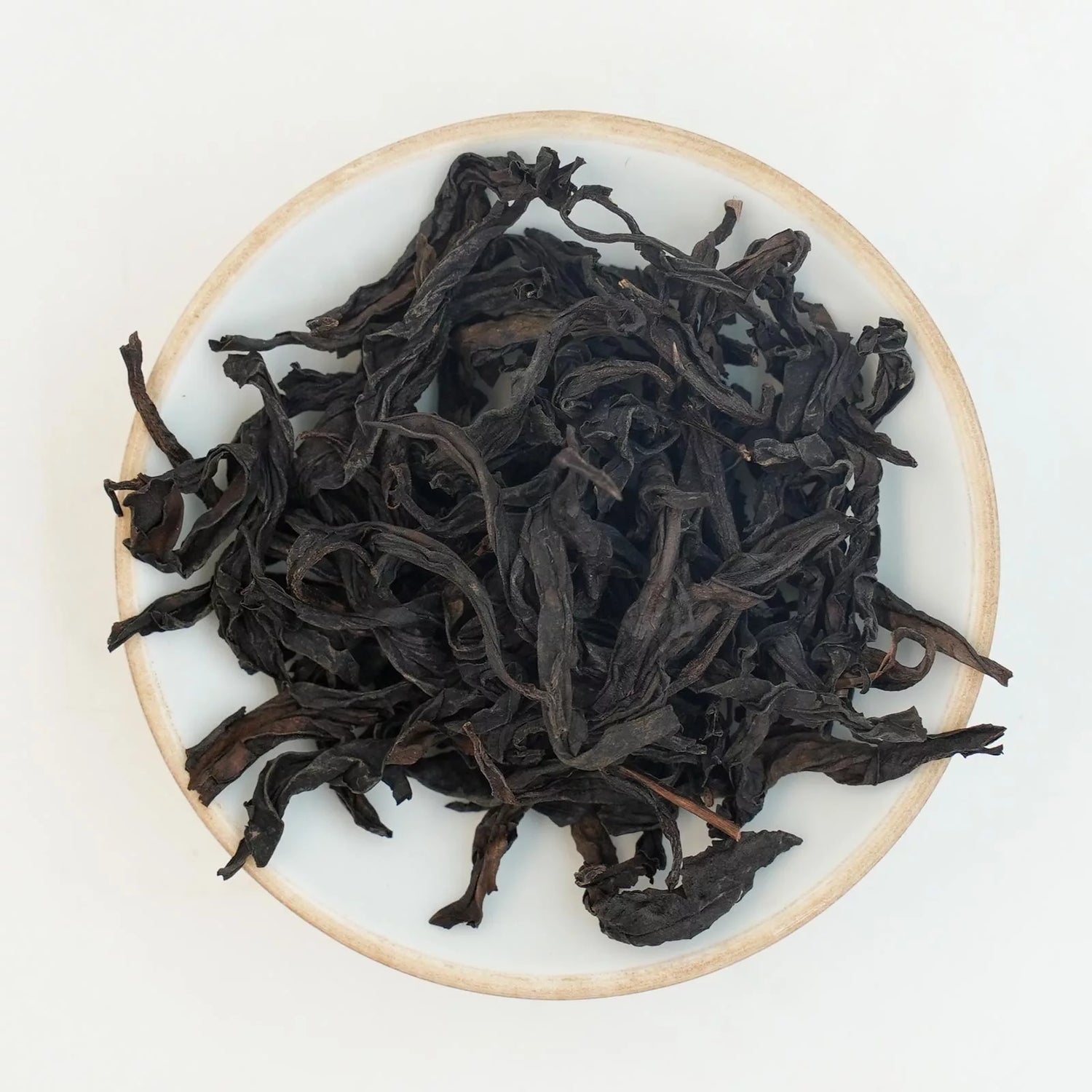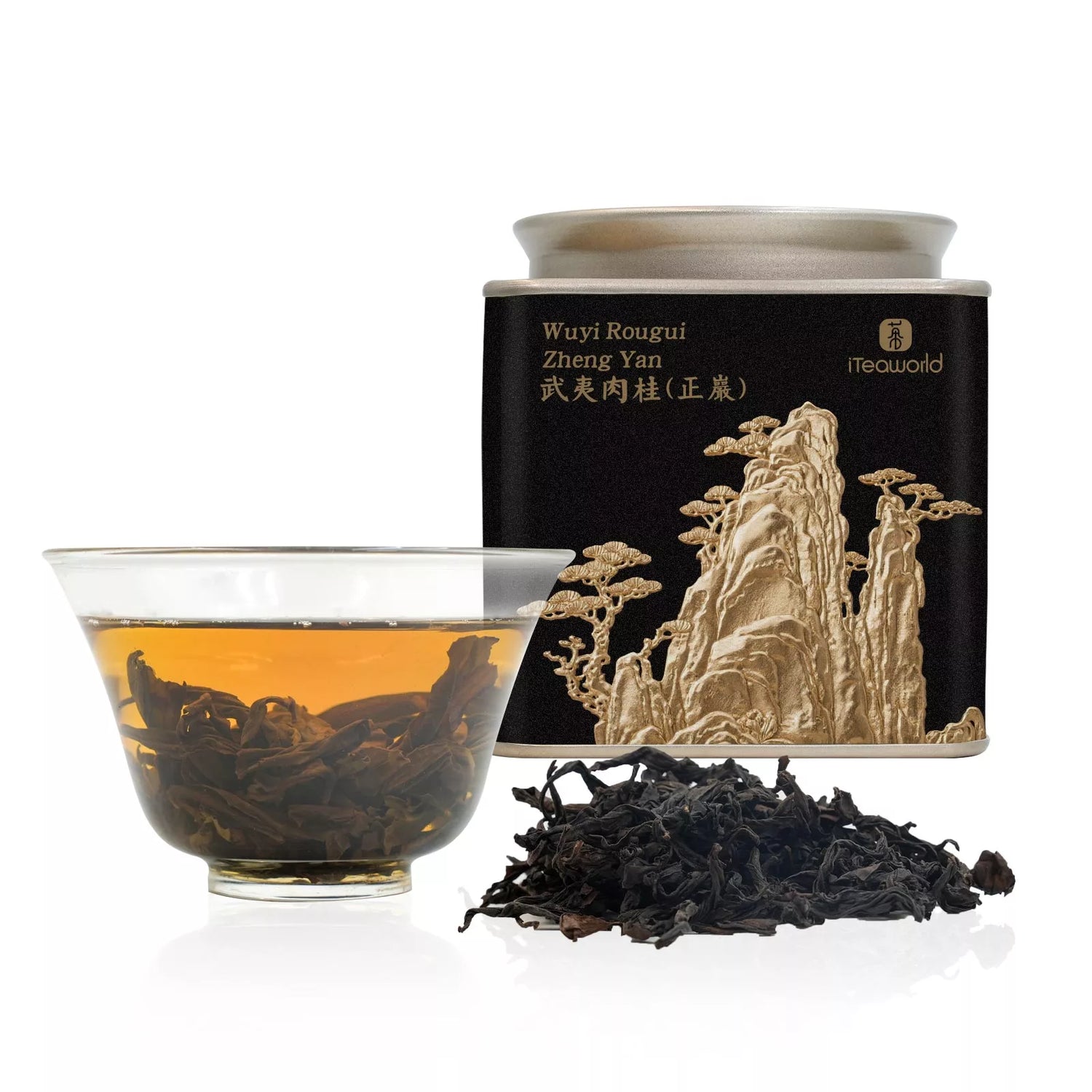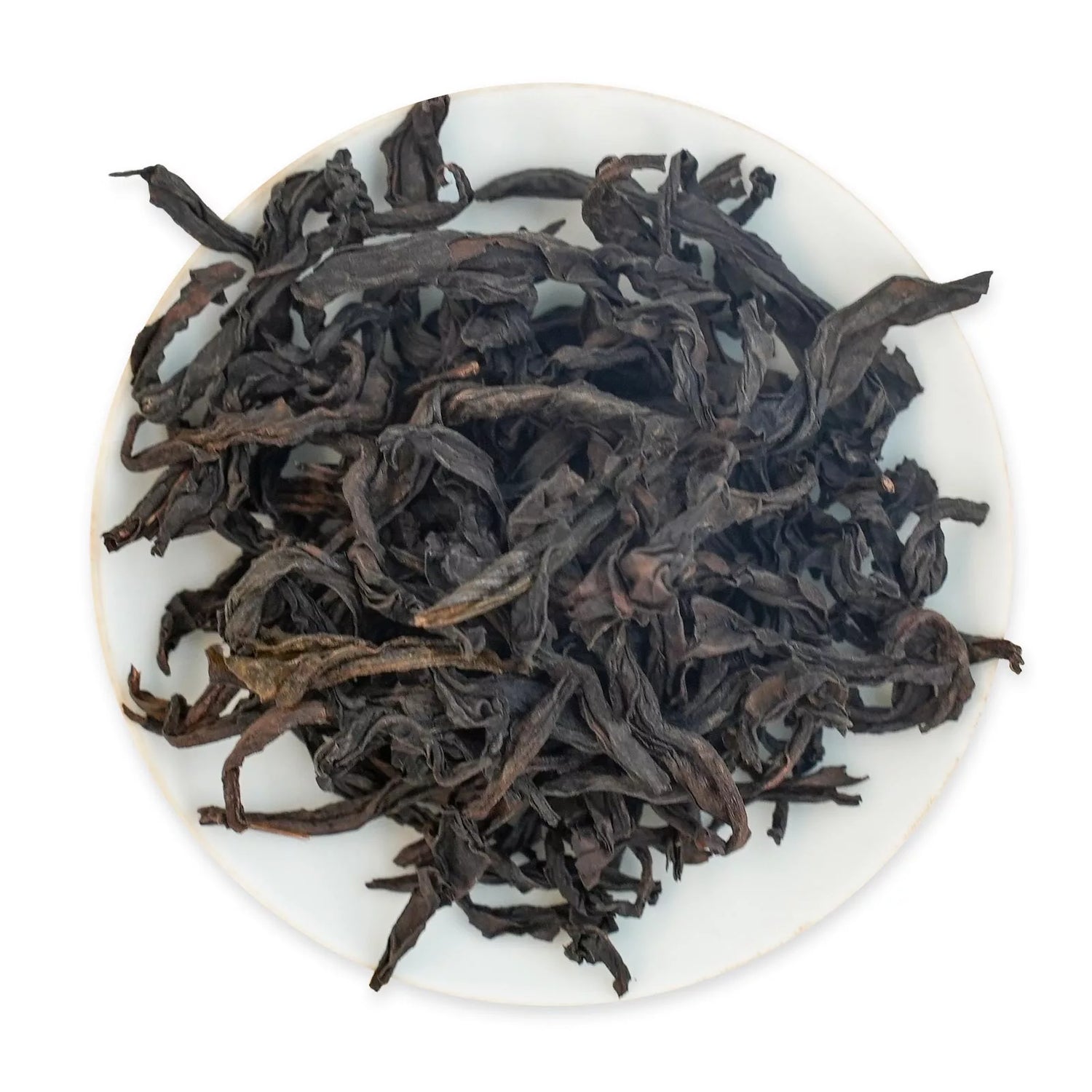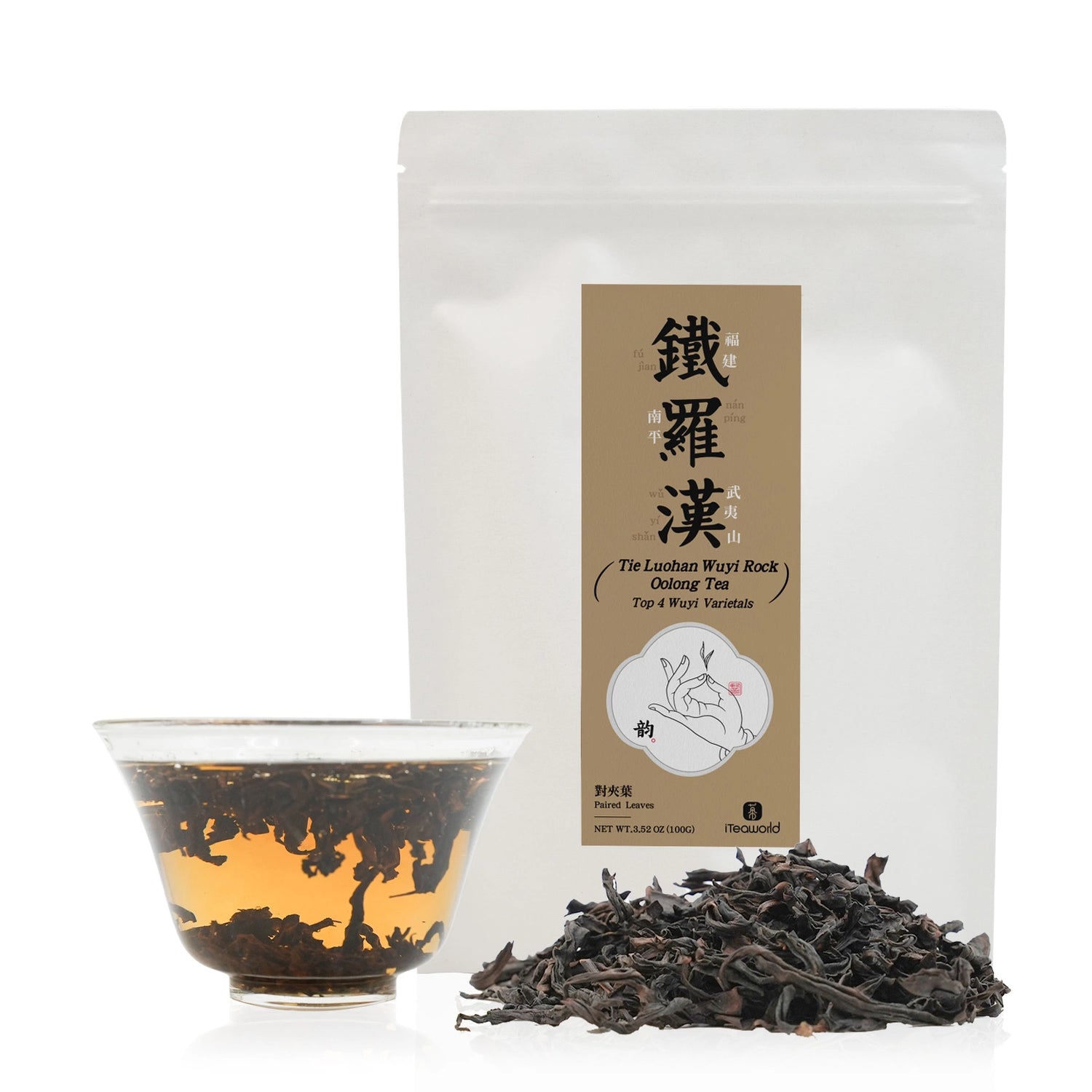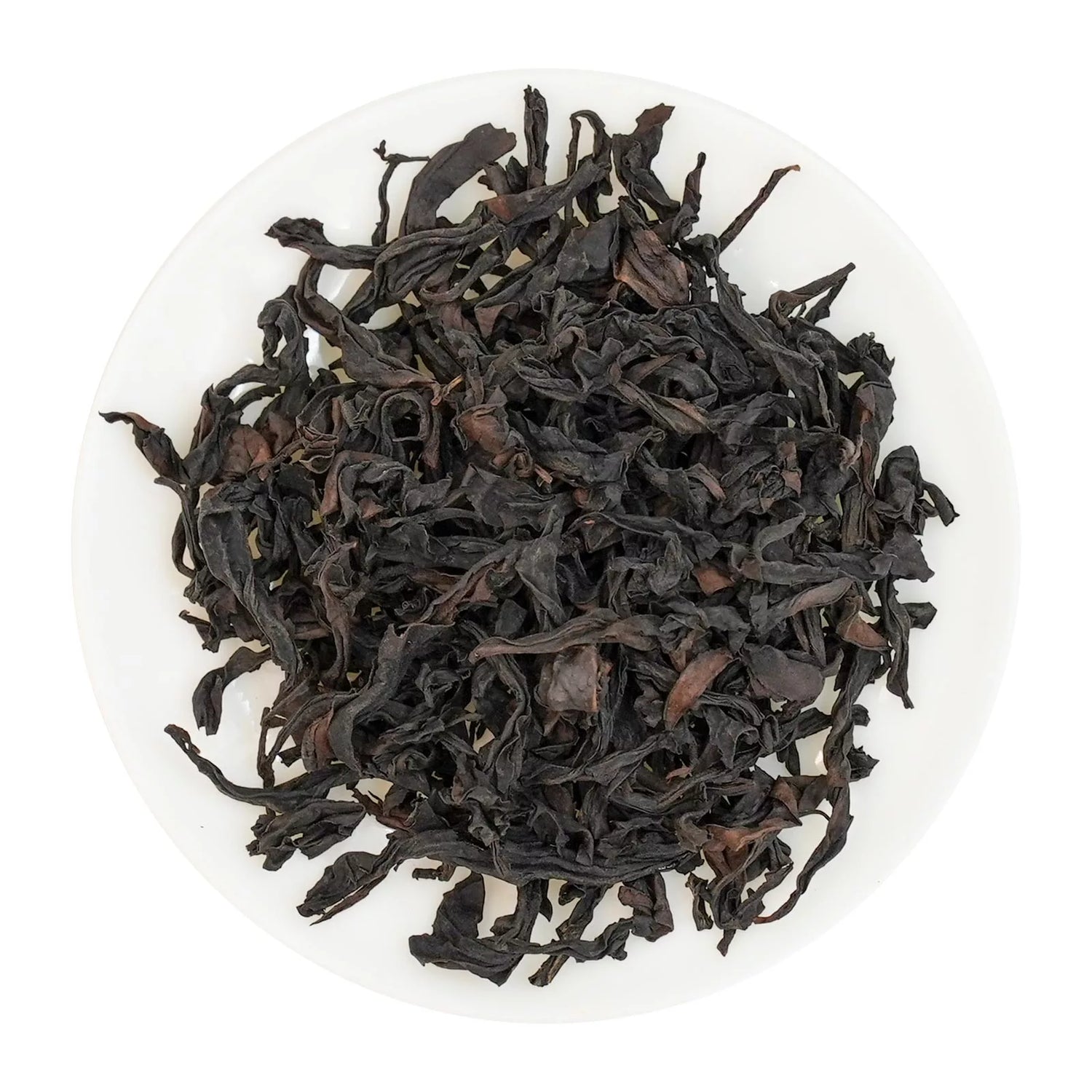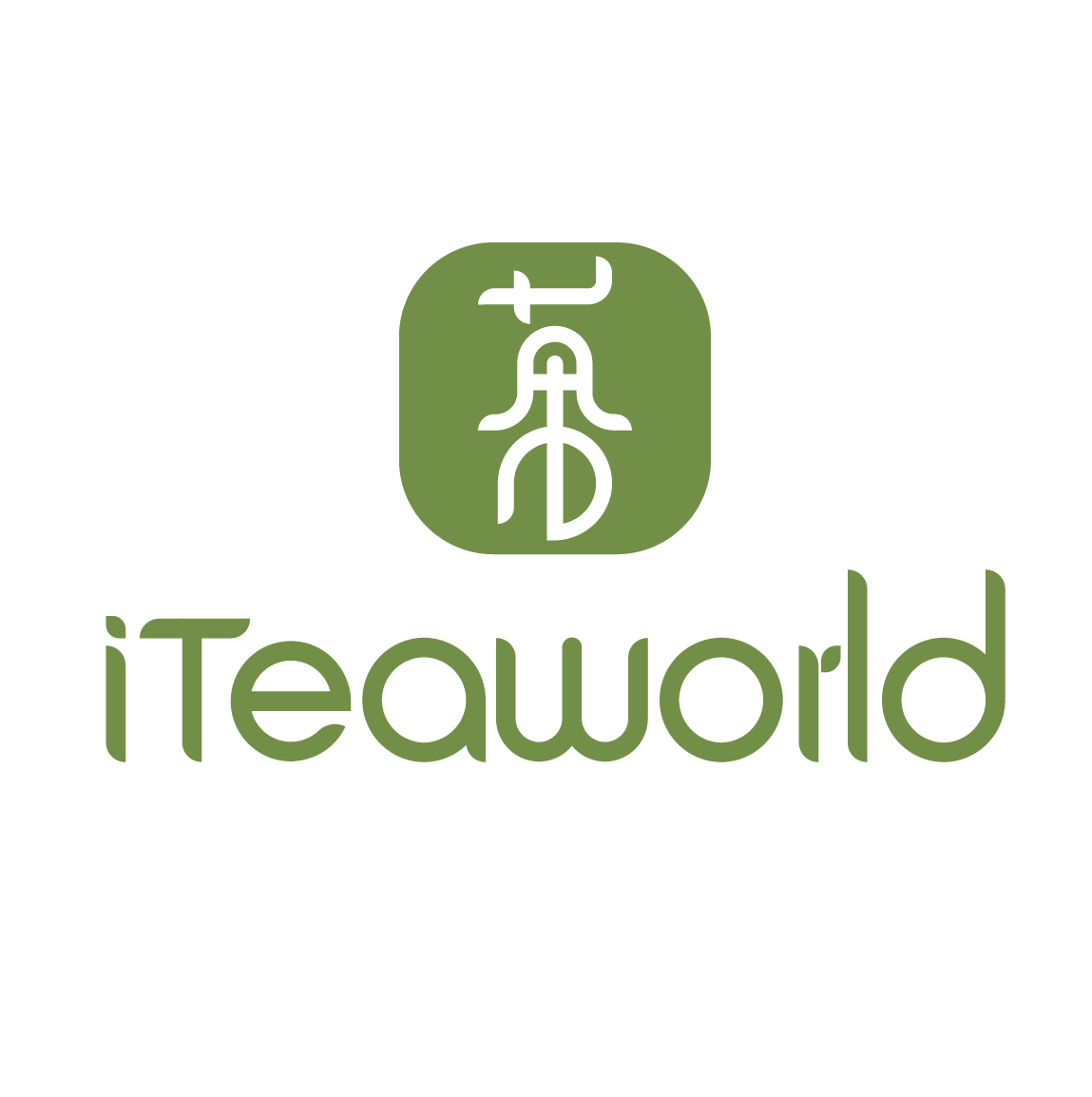Sort by:
71 products
71 products
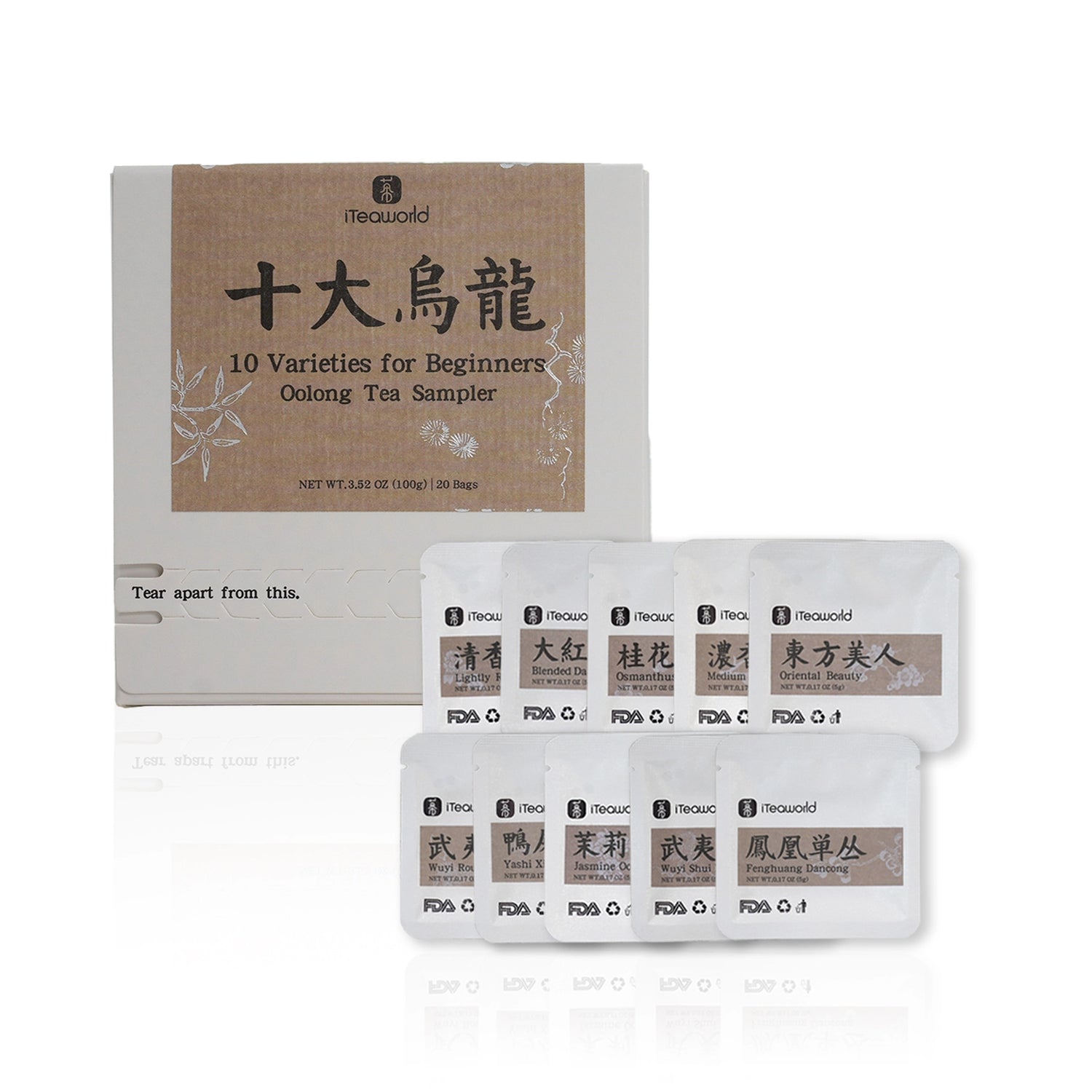

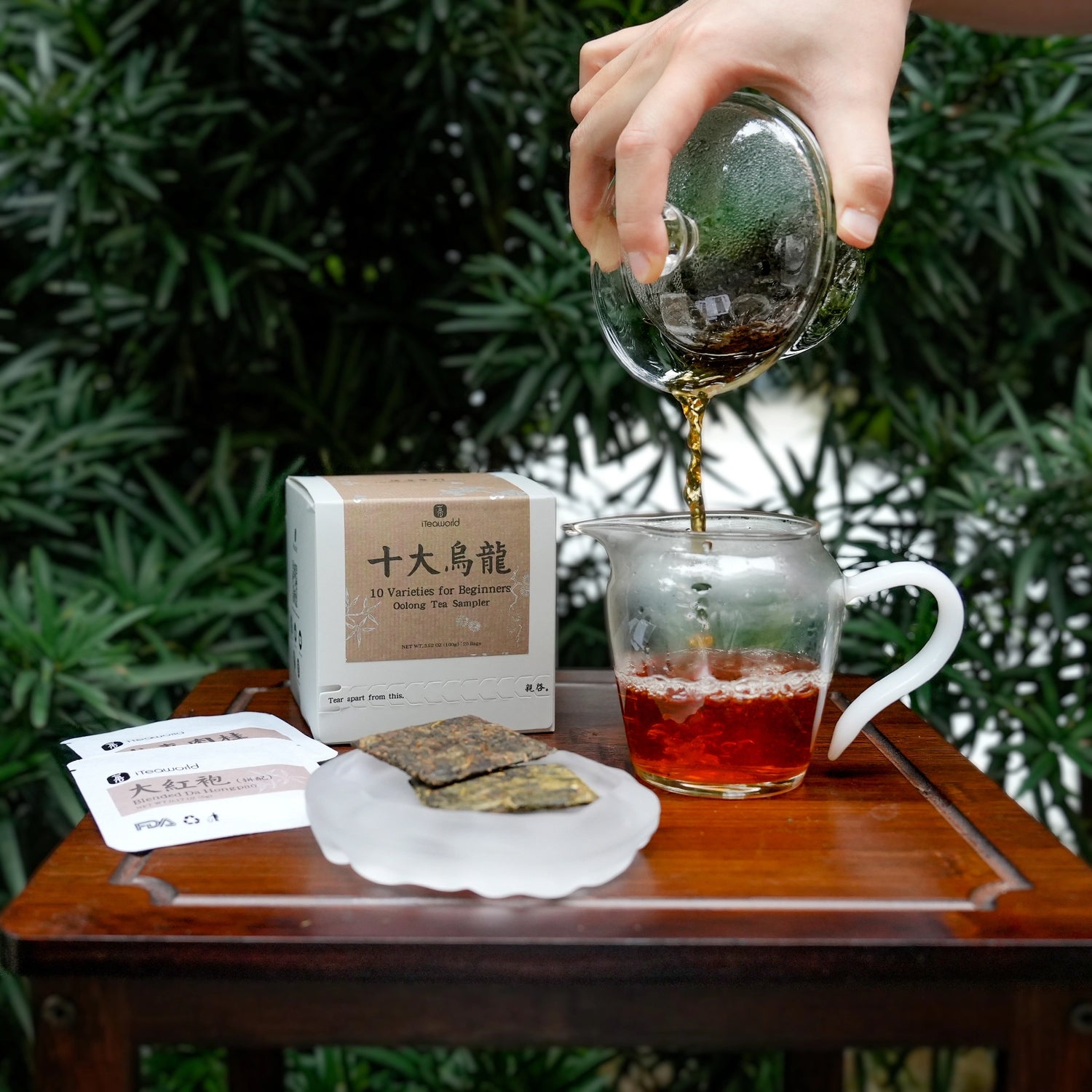
Oolong Teas Collection – Top 10 Classic for Beginners 100g (20bags)
Oolong Teas Collection – Top 10 Classic for Beginners 100g (20bags)
The best oolong tea collection for beginners — featuring 10 of the most iconic and popular Chinese oolong teas, with 2 mini tea cakes of each variety (20 pieces total).
Each tea is crafted from carefully selected loose leaves and pressed into convenient 5g mini cakes — just drop into hot water, no teaware needed.
This curated set showcases a broad spectrum of natural oolong flavors, from the fresh floral notes of Tie Guan Yin to the deep roasted richness of Da Hong Pao.
Absolutely no added sugar, artificial flavors, or colors — just 100% natural tea.
It’s the perfect way to explore authentic Chinese oolong tea and discover your personal favorites — a low-risk, high-value journey into real tea without the overwhelm.
Please note: Because the mini cakes are made from full loose leaves that are softened and compressed, some small leaf fragments may appear when steeped—this is completely normal and part of the natural tea experience.
The Oolong Tea Sampler comprises four renowned loose-leaf Oolong teas from China: Tie Guan Yin, Minnan Narcissus, Da Hong Pao, and Feng Huang Dan Cong. It provides a comprehensive opportunity to appreciate the disparities among Oolong teas, from their refreshing, floral, honeyed, to fruity aromas. Moreover, you'll delve into the variations in taste brought about by differences in fermentation levels and roasting intensities. Additionally, you'll explore the unique flavors derived from both modern high-mountain tea gardens and ancient tree plantations. This sampler simplifies the process of identifying your preferred Oolong tea variety.
Net weight: 80g total, 5g per pack. More tea, same price.
Each pack is perfect for both Gongfu-style and Western-style brewing—just the right amount for one brew.
Explore the World of Chinese Oolong Tea with Four Iconic Varieties
Discover the rich diversity of Chinese Oolong tea with this curated sampler featuring Da Hong Pao, Tie Guan Yin, Phoenix Dan Cong, and Zhangping Shui Xian. From lightly oxidized teas to deeply roasted rock teas, this set is a perfect introduction for tea lovers who want to explore the full spectrum of oolong flavors.
- Da Hong Pao: Bold and toasty, from Wuyi Mountains
- Tie Guan Yin: Light, floral, and elegant — a classic minnan oolong tea
- Fenghuang Dan Cong: Naturally fruity with rich orchid aroma
- Zhangping Shui Xian: Rare pressed oolong with subtle garden notes
Whether you're new to oolong or seeking variety, this set offers a sensory journey across China’s top tea regions, all in one elegant collection.
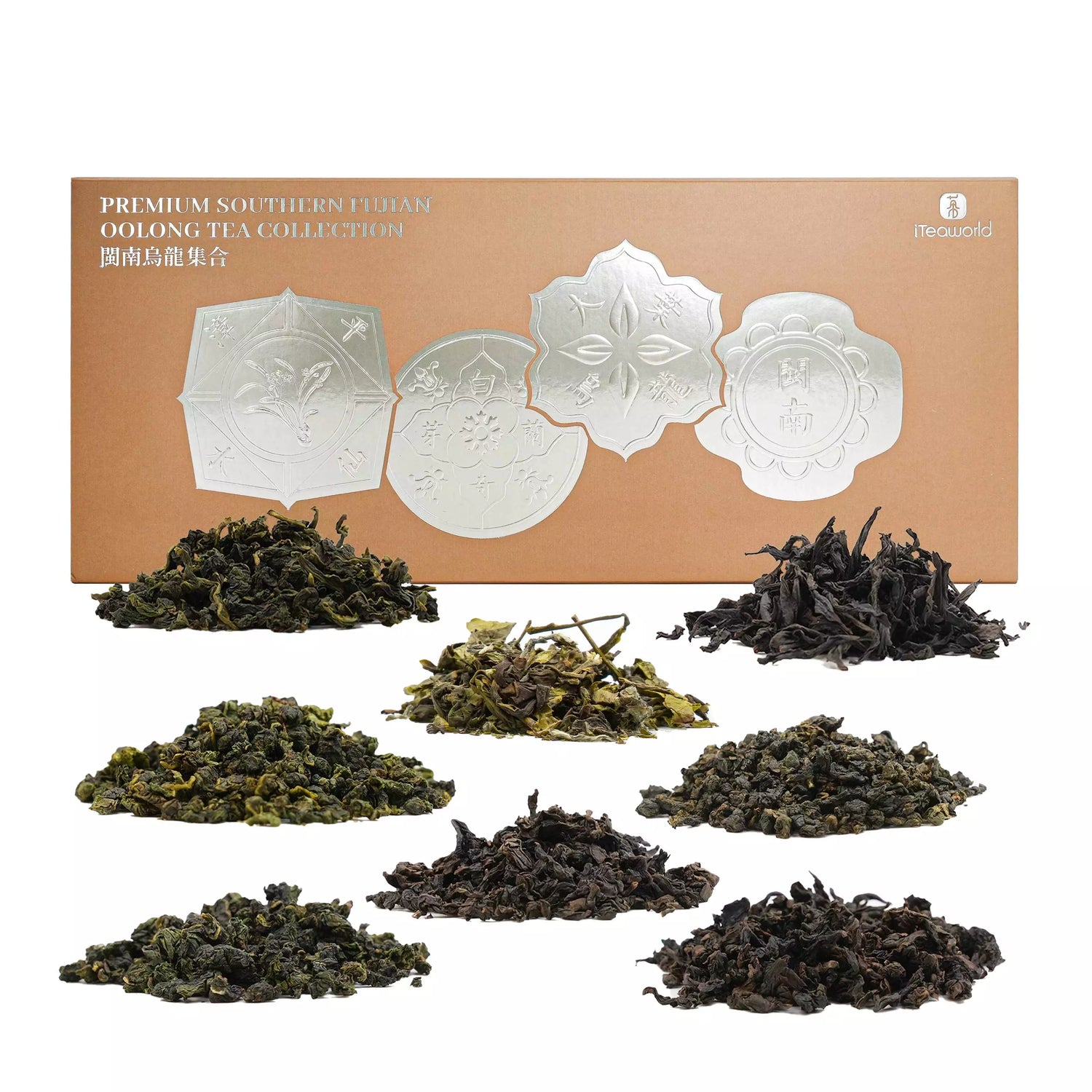
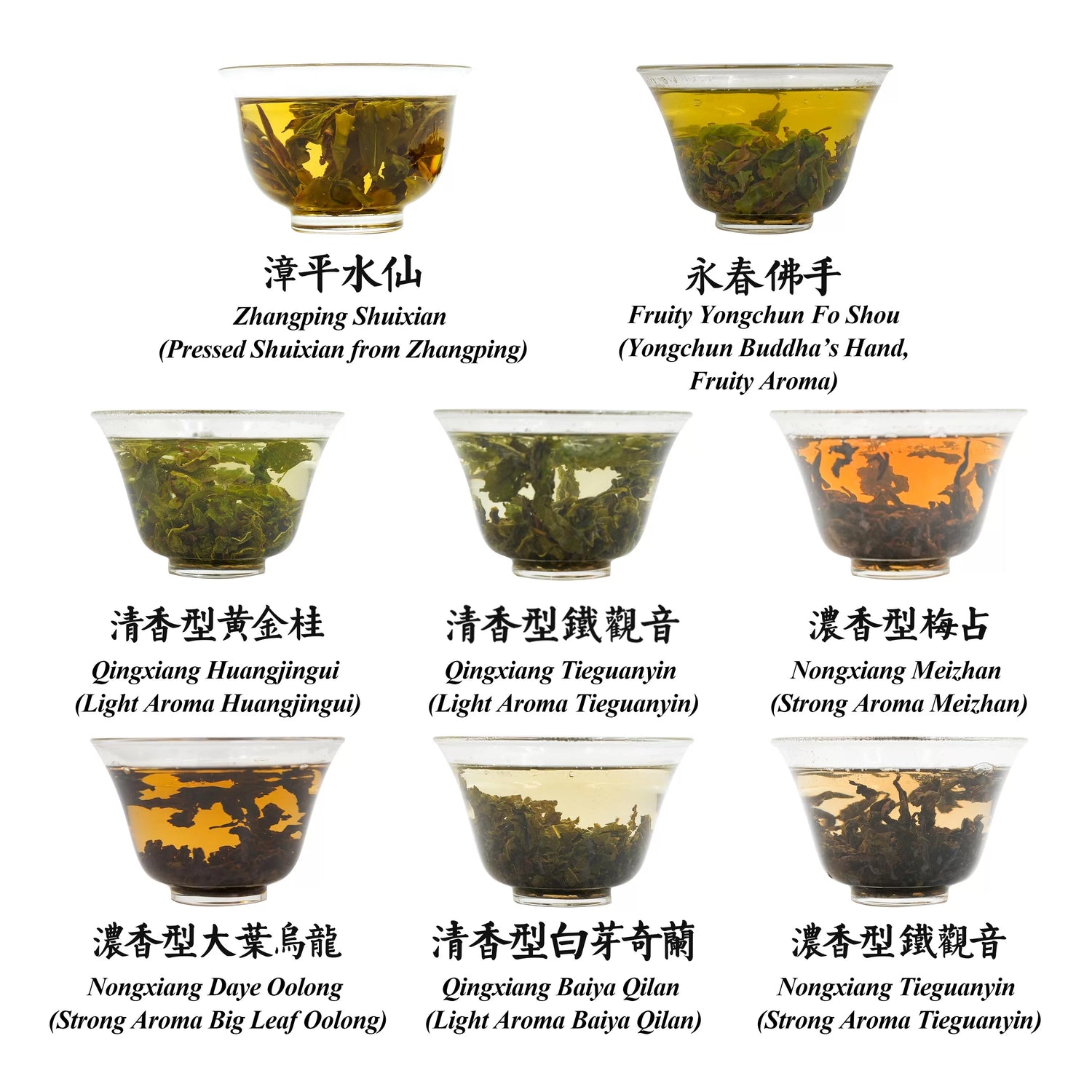
Southern Fujian Oolong Collection--8 unique historical flavors 100g
Southern Fujian Oolong Collection--8 unique historical flavors 100g
Explore the rich legacy of Southern Fujian oolong teas — home to the iconic Tie Guan Yin and Zhangping Shui Xian, both recognized as part of China’s Intangible Cultural Heritage. Since the 17th century, this region has pioneered the art of high-aroma oolongs, known for their floral, fruity, and gently roasted notes. Crafted with time-honored techniques like light oxidation, layered roasting, and meticulous leaf shaping, these teas capture the essence of Minnan tradition. Whether you're a seasoned tea drinker or just beginning your journey, this curated collection offers a true taste of oolong history.
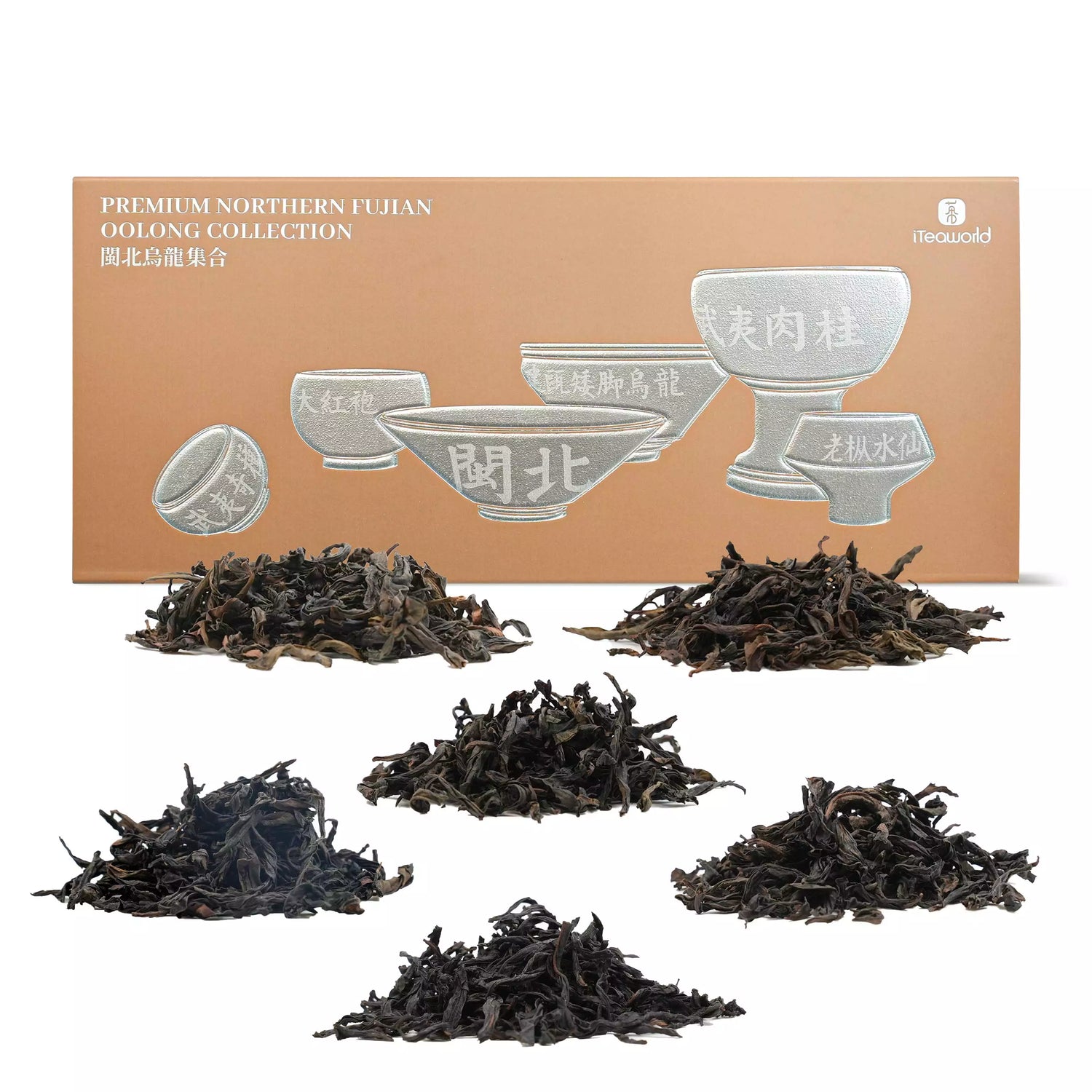
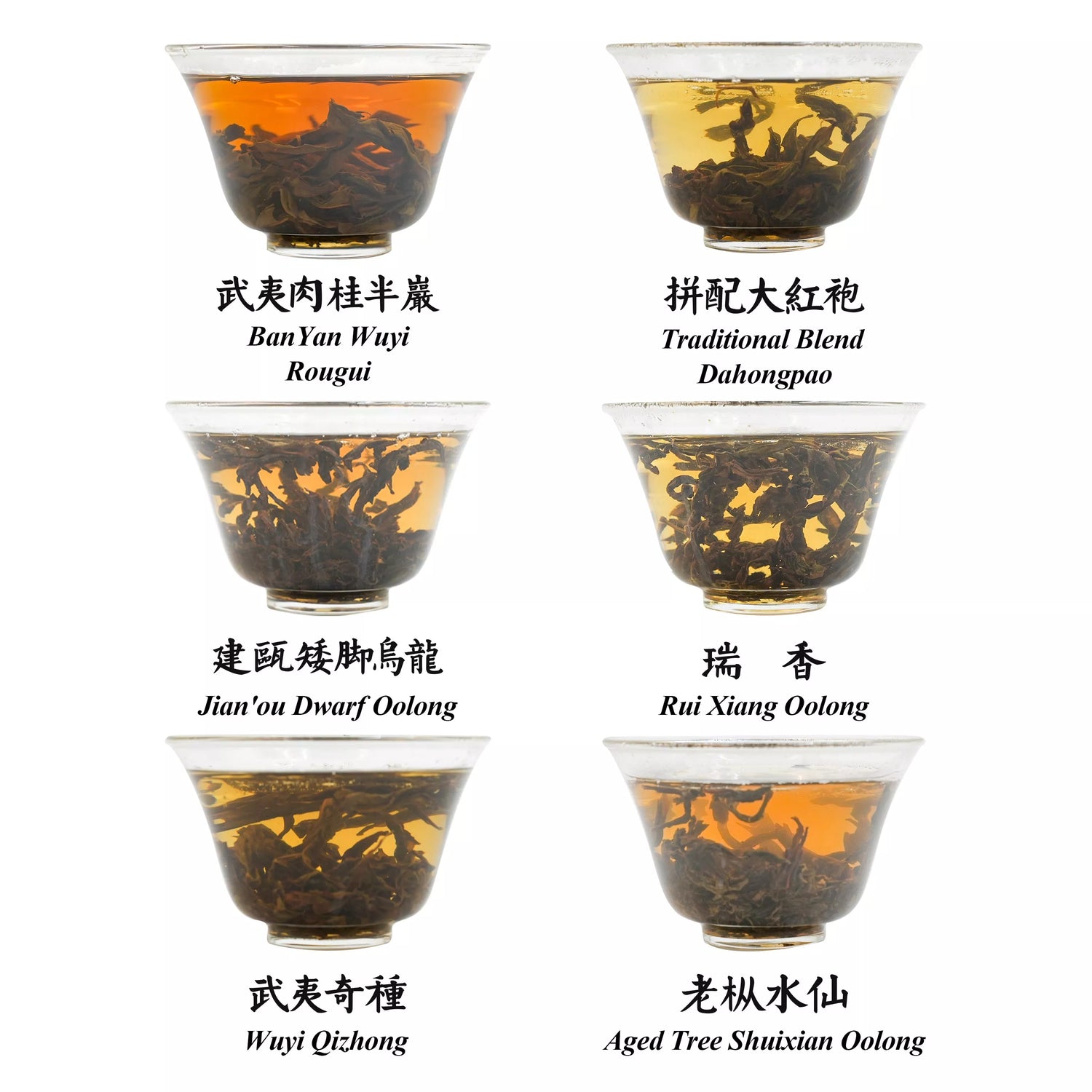
Northern Fujian Oolong Collection--6 representative flavors 100g
Northern Fujian Oolong Collection--6 representative flavors 100g
The Northern Fujian region is considered the birthplace of Oolong tea, and the traditional crafting methods of Wuyi Rock Tea have been recognized as part of China’s intangible cultural heritage. This collection brings together iconic oolong varieties from the Song Dynasty (Wuyi Qizhong and Jian'ou Dwarf Oolong) to today (Blended Da Hong Pao, Wuyi Rougui, Aged Tree Shuixian Oolong ), along with emerging cultivars with great future potential (Rui Xiang Oolong). Each tea carries the unique craftsmanship of the region, with its own distinct story and flavor. We hope this collection will allow you to explore the diverse flavors and rich cultural heritage of Northern Fujian (Minnan) Oolong tea.


Guangdong Oolong Tea Collection: 6 Historical Flavors for Tea Lovers 100g
Guangdong Oolong Tea Collection: 6 Historical Flavors for Tea Lovers 100g
A Boxed Journey into the Essence of Guangdong Oolong
From the ancient Shiguping oolong crafted by the She ethnic group over 1,500 years ago to today’s highly aromatic Dancong teas, this curated set brings together six signature teas from Chaozhou, Meizhou, and Raoping—the three core regions of Guangdong. A flavorful journey through 500 years of tea-making heritage.
A semi-fermented oolong tea grown in the rocky crevices of Fujian’s Wuyi Mountain, renowned for its unique "rock bone floral aroma" (Yan Yun). Only tea cultivated within Wuyi City’s protected region can bear this name. Other areas (e.g., Anxi) do not produce Rock Tea.
This collection features the three most iconic Wuyi rock teas—Da Hong Pao, Shuixian, and Rougui—along with their key variations. You’ll taste the difference between blended and purebred Da Hong Pao, young and old Shuixian trees, and core vs. semi-core Rougui. A guided journey into the depth and complexity of Wuyi rock tea.
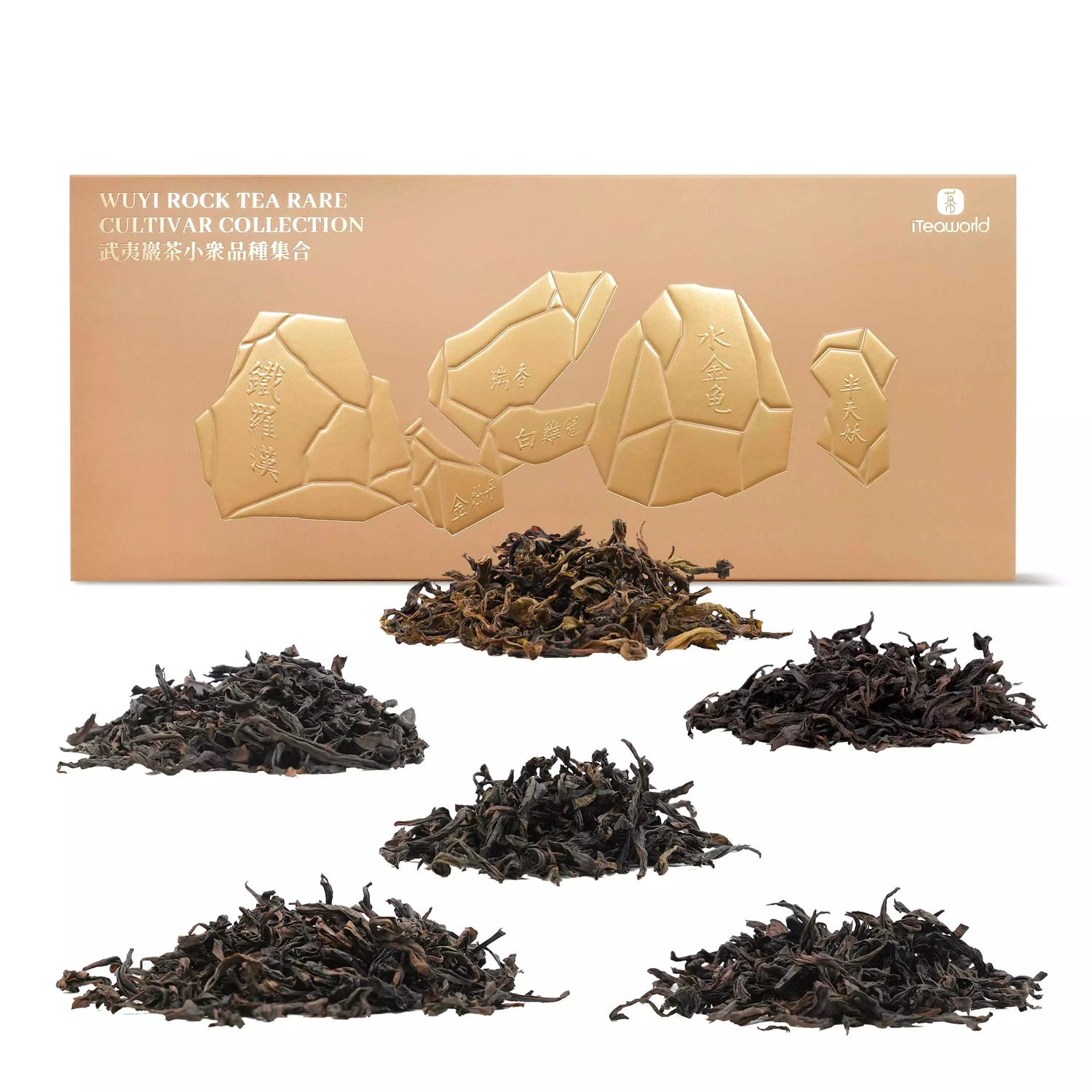
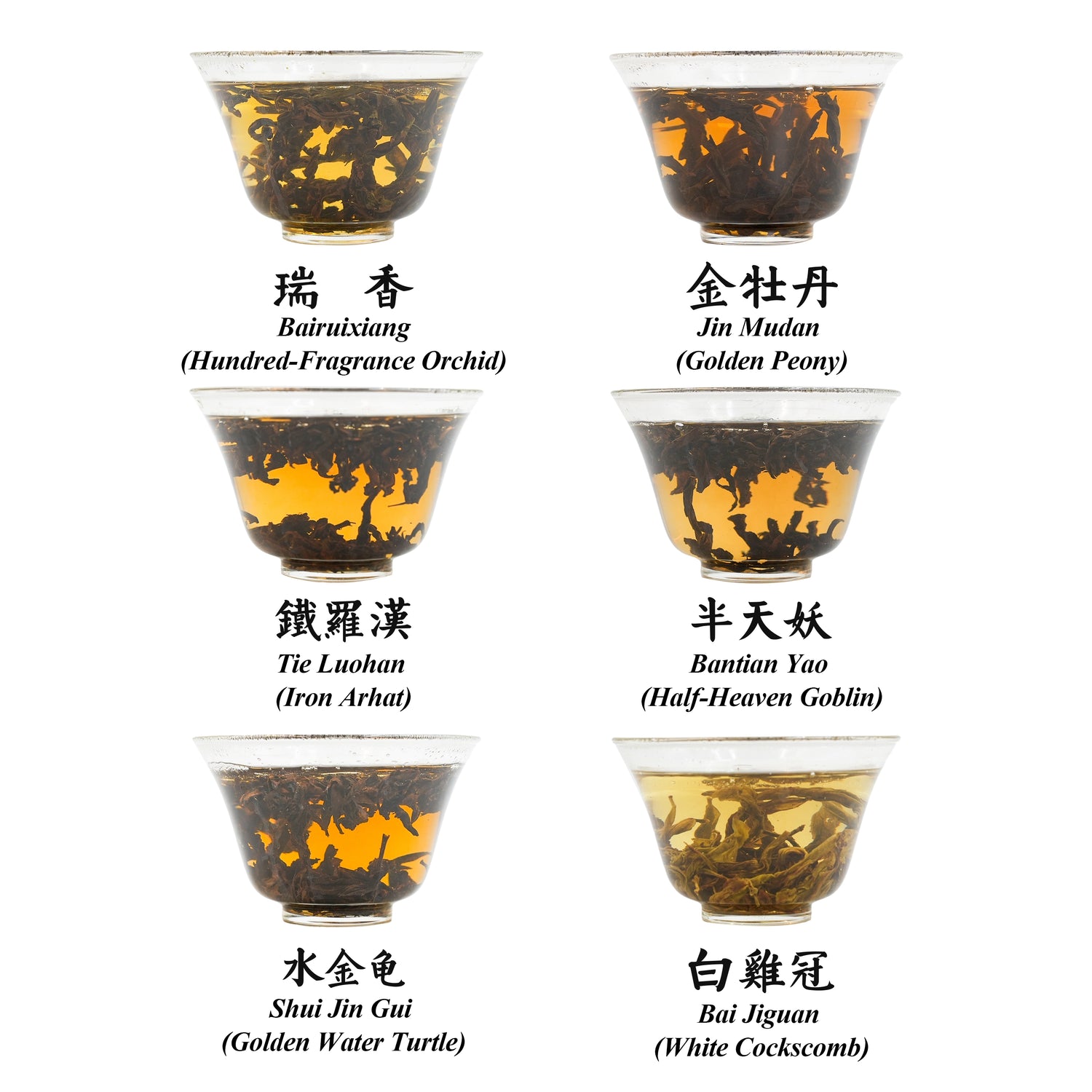
Wuyi Rock Tea Rare Cultivar Collection--Heritage & Innovation 100g
Wuyi Rock Tea Rare Cultivar Collection--Heritage & Innovation 100g
Rare Wuyi Rock Tea Cultivars: Hidden Gems from the Core of Zhengyan
While teas like Da Hong Pao, Rou Gui, and Shui Xian have become well-known representatives of Wuyi Rock Tea, the rare cultivars—such as Tie Luo Han, Bai Ji Guan, Shui Jin Gui, and Ban Tian Yao—tell a deeper, more authentic story. These teas originate from wild, heirloom tea trees that have grown for centuries in the heart of the Wuyi Mountains, shaped by natural selection and careful cultivation. They embody the original genetic heritage of Wuyi rock tea.
Grown on remote cliffs and craggy ledges in the Zhengyan core production zone—places like Guidong Cave and Sanhua Peak—these tea trees sink their roots deep into rocky crevices, drawing in rare minerals. The result is a flavor profile marked by the elusive and unmistakable "Yan Yun" (rock rhyme) that connoisseurs revere.
Who would enjoy this tea?
This collection is perfect for those who have explored the classic Wuyi rock teas and are ready to dive deeper into its rare and distinctive varieties. It includes historically renowned teas like Tie Luohan, Bàn Tiān Yāo, Bai Ji Guan, Shui Jin Gui, and Bai Rui Xiang, along with newer, highly sought-after cultivars like Rui Xiang and Jin Mudan. A journey through the diverse flavors and craftsmanship of Wuyi rock tea.
Fenghuang Dancong 10 Aromas Collection
Discover the essence of Chinese Gongfu tea culture with this unique Fenghuang Dancong oolong tea set, featuring 10 distinct natural aromas like Jasmine, Gardenia, Honey Orchid, and more. Known as the "perfume of tea," this collection showcases the diverse flavors created by different tea bush varieties from Fenghuang Town, the heart of Dancong tea production.
Whether you’re a fan of fragrant teas, a Gongfu tea enthusiast, or simply curious about the rich aromas and flavors of oolong tea, this set offers a sensory journey you won’t forget. Beautifully curated, it’s an ideal gift for tea lovers who appreciate authentic, aromatic, and high-quality teas.
What is Fenghuang Dancong tea?
Fenghuang Dancong tea is a type of oolong tea, which is selected and bred from the Fenghuang Shuixian group. Each individual plant has its own unique shape and variety, forming its own product line, hence the name "Dancong," which means "single bush" or "single strain." This tea is mainly characterized by its ability to withstand multiple infusions, its strong aftertaste, and its high, lingering aroma. It's known as the most fragrant oolong tea due to its distinctive fragrance. Based on different aromatic types, Fenghuang Dancong is divided into various scented categories.
The product includes:
Fenghuang Dancong Oolong Tea(Huang Zhi Fragrance)2*5g
Fenghuang Dancong Oolong Tea(Orchid Fragrance)2*5g
Fenghuang Dancong Oolong Tea(Honey Orchid Fragrance)2*5g
Fenghuang Dancong Oolong Tea(Magnolia Fragrance)2*5g
Fenghuang Dancong Oolong Tea(Ginger Flower Fragrance)2*5g
Fenghuang Dancong Oolong Tea(Osmanthus Aroma)2*5g
Fenghuang Dancong Oolong Tea(Cinnamon Fragrance)2*5g
Fenghuang Dancong Oolong Tea(Almond Fragrance)2*5g
Fenghuang Dancong Oolong Tea(Night-scented Stock)2*5g
Fenghuang Dancong Oolong Tea(Jasmine Fragrance)2*5g
Origin:
Fenghuang Town, Chaozhou City, Guangdong Province.
Introduction to the Top 10 Fragrance Types of Fenghuang Dancong Tea
Fenghuang Dancong Oolong Tea(Huang Zhi Fragrance):A high-quality single bush tea with a natural gardenia fragrance.
Fenghuang Dancong Oolong Tea(Orchid Fragrance):Features the aroma of orchids, fresh and subtle.
Fenghuang Dancong Oolong Tea(Honey Orchid Fragrance):The most popular type, known for its strong honey flavor combined with orchid fragrance, hence the name Milan.
Fenghuang Dancong Oolong Tea(Magnolia Fragrance): Fresh and elegant, with the aroma of magnolia flowers.
Fenghuang Dancong Oolong Tea(Ginger Flower Fragrance):Also known as 'Penetrating Heaven Fragrance', named for the uplifting ginger flower scent when the tea is brewed.
Fenghuang Dancong Oolong Tea(Osmanthus aroma): Reminiscent of osmanthus flowers, sweet and lingering.
Fenghuang Dancong Oolong Tea(Cinnamon Fragrance): Named for the tea's flavor that resembles the taste of cinnamon, a traditional Chinese medicine.
Fenghuang Dancong Oolong Tea(Almond Fragrance):Also known as 'Sawtooth', named for the serrated edges of the leaves, with a distinct almond aroma.
Fenghuang Dancong Oolong Tea(Night-scented Stock): Night-scented Stock Dancong is famous for its unique evening fragrance and flavor. It's mainly produced in Fengxi Dan Lake, Fenghuang Town, and is quite rare.
Fenghuang Dancong Oolong Tea(Jasmine Fragrance): A unique fragrance type with the scent of jasmine flowers, refreshing and delightful.
Brewing Tips
Recommended Method: Traditional Gongfu style.
Best Teaware: White porcelain gaiwan or Yixing clay teapot.
Tea-to-Water Ratio: Use 5g of tea for 100ml of water.
Water Temperature: 212℉ (100℃).
Steeping Times:
First rinse: Quick pour, discard the rinse.
2nd–5th infusions: Steep for 6–8 seconds.
6th–10th infusions: Steep for 10–15 seconds.
Brewing Durability: Authentic Dancong from Chaozhou's Fenghuang region can be steeped 12–15 times.
Technique: Pour water along the edge of the gaiwan in a steady stream. Tilt the lid slightly to leave a small gap to prevent over-steaming.
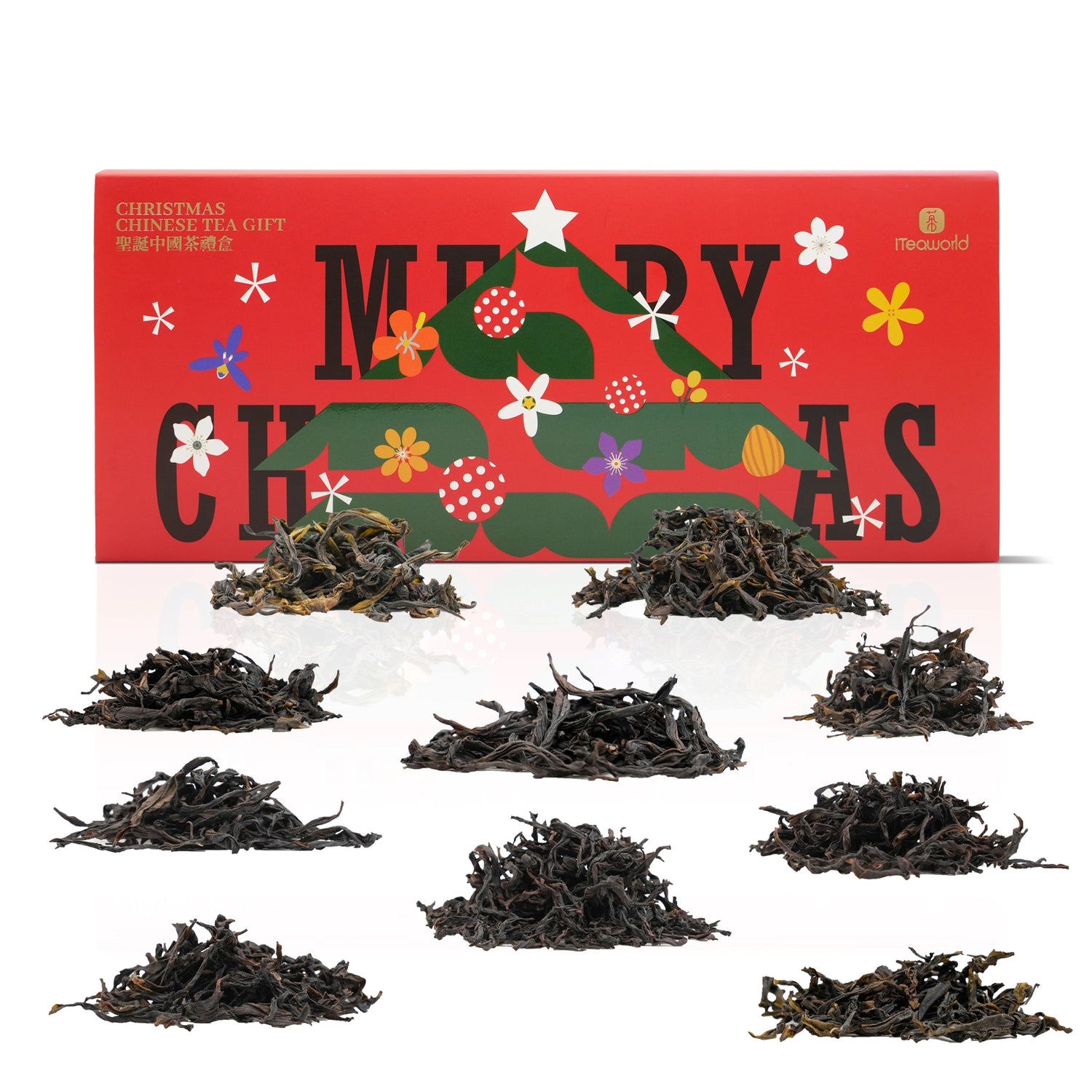
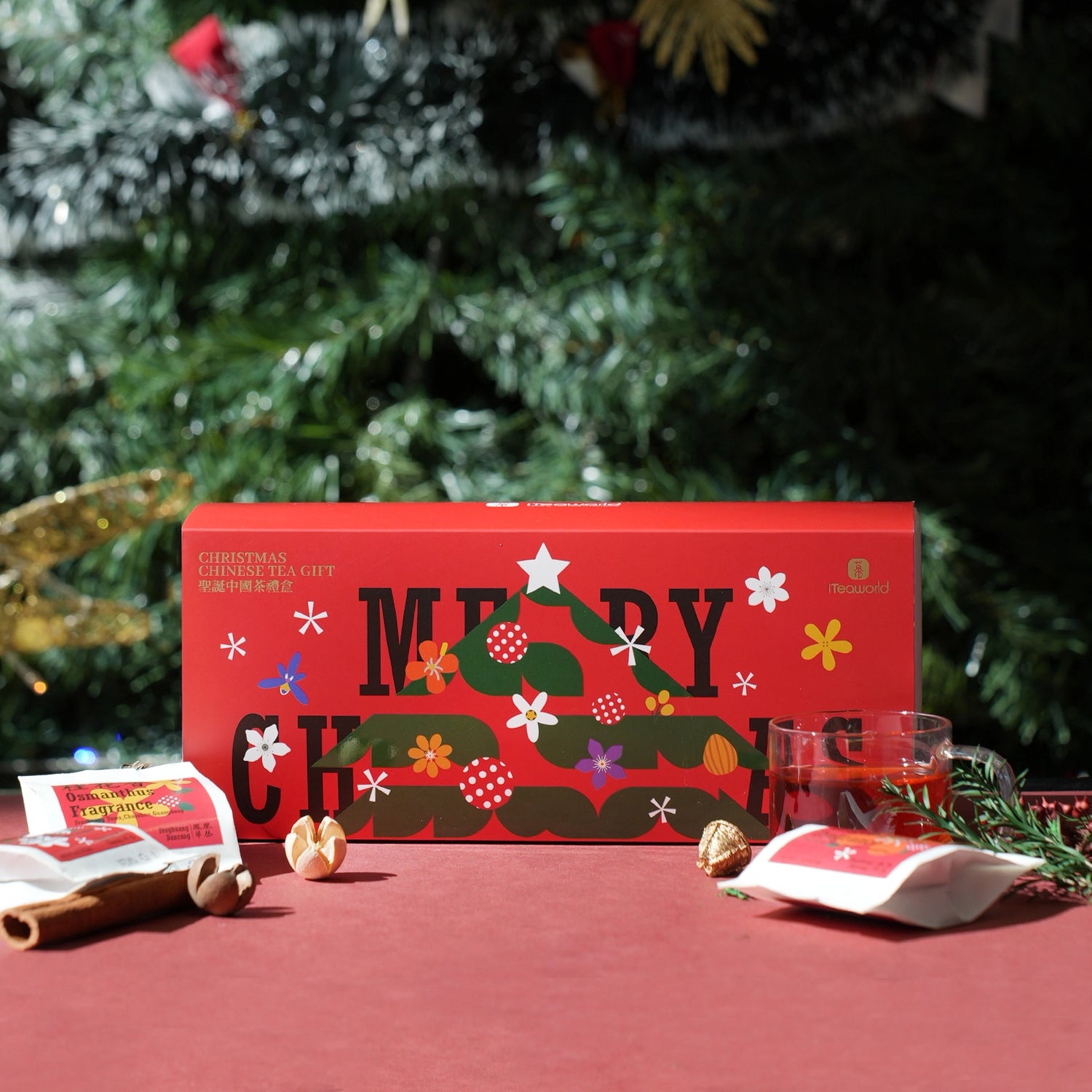
Christmas Gift Box - 10 Distinct Aromas of Fenghuang Dancong Oolong Tea 100g
Christmas Gift Box - 10 Distinct Aromas of Fenghuang Dancong Oolong Tea 100g
Fenghuang Dancong 10 Aromas Collection – A Perfect Holiday Tea Gift
Discover the essence of Chinese Gongfu tea culture with this unique Fenghuang Dancong oolong tea set, featuring 10 distinct natural aromas like Jasmine, Gardenia, Honey Orchid, and more. Known as the "perfume of tea," this collection showcases the diverse flavors created by different tea bush varieties from Fenghuang Town, the heart of Dancong tea production.
Whether you’re a fan of fragrant teas, a Gongfu tea enthusiast, or simply curious about the rich aromas and flavors of oolong tea, this set offers a sensory journey you won’t forget. Beautifully curated, it’s an ideal gift for tea lovers who appreciate authentic, aromatic, and high-quality teas.
What is Fenghuang Dancong tea?
Fenghuang Dancong tea is a type of oolong tea, which is selected and bred from the Fenghuang Shuixian group. Each individual plant has its own unique shape and variety, forming its own product line, hence the name "Dancong," which means "single bush" or "single strain." This tea is mainly characterized by its ability to withstand multiple infusions, its strong aftertaste, and its high, lingering aroma. It's known as the most fragrant oolong tea due to its distinctive fragrance. Based on different aromatic types, Fenghuang Dancong is divided into various scented categories.
The product includes:
Fenghuang Dancong Oolong Tea(Huang Zhi Fragrance)2*5g
Fenghuang Dancong Oolong Tea(Orchid Fragrance)2*5g
Fenghuang Dancong Oolong Tea(Honey Orchid Fragrance)2*5g
Fenghuang Dancong Oolong Tea(Magnolia Fragrance)2*5g
Fenghuang Dancong Oolong Tea(Ginger Flower Fragrance)2*5g
Fenghuang Dancong Oolong Tea(Osmanthus Aroma)2*5g
Fenghuang Dancong Oolong Tea(Cinnamon Fragrance)2*5g
Fenghuang Dancong Oolong Tea(Almond Fragrance)2*5g
Fenghuang Dancong Oolong Tea(Night-scented Stock)2*5g
Fenghuang Dancong Oolong Tea(Jasmine Fragrance)2*5g
Origin:
Fenghuang Town, Chaozhou City, Guangdong Province.
Introduction to the Top 10 Fragrance Types of Fenghuang Dancong Tea
Fenghuang Dancong(Huang Zhi Fragrance):A high-quality single bush tea with a natural gardenia fragrance.
Fenghuang Dancong (Orchid Fragrance):Features the aroma of orchids, fresh and subtle.
Fenghuang Dancong (Honey Orchid Fragrance):The most popular type, known for its strong honey flavor combined with orchid fragrance, hence the name Milan.
Fenghuang Dancong(Magnolia Fragrance): Fresh and elegant, with the aroma of magnolia flowers.
Fenghuang Dancong(Ginger Flower Fragrance):Also known as 'Penetrating Heaven Fragrance', named for the uplifting ginger flower scent when the tea is brewed.
Fenghuang Dancong (Osmanthus aroma): Reminiscent of osmanthus flowers, sweet and lingering.
Fenghuang Dancong (Cinnamon Fragrance): Named for the tea's flavor that resembles the taste of cinnamon, a traditional Chinese medicine.
Fenghuang Dancong (Almond Fragrance):Also known as 'Sawtooth', named for the serrated edges of the leaves, with a distinct almond aroma.
Fenghuang Dancong (Night-scented Stock): Night-scented Stock Dancong is famous for its unique evening fragrance and flavor. It's mainly produced in Fengxi Dan Lake, Fenghuang Town, and is quite rare.
Fenghuang Dancong (Jasmine Fragrance): A unique fragrance type with the scent of jasmine flowers, refreshing and delightful.
Brewing Tips
Recommended Method: Traditional Gongfu style.
Best Teaware: White porcelain gaiwan or Yixing clay teapot.
Tea-to-Water Ratio: Use 5g of tea for 100ml of water.
Water Temperature: 212℉ (100℃).
Steeping Times:
First rinse: Quick pour, discard the rinse.
2nd–5th infusions: Steep for 6–8 seconds.
6th–10th infusions: Steep for 10–15 seconds.
Brewing Durability: Authentic Dancong from Chaozhou's Fenghuang region can be steeped 12–15 times.
Technique: Pour water along the edge of the gaiwan in a steady stream. Tilt the lid slightly to leave a small gap to prevent over-steaming.
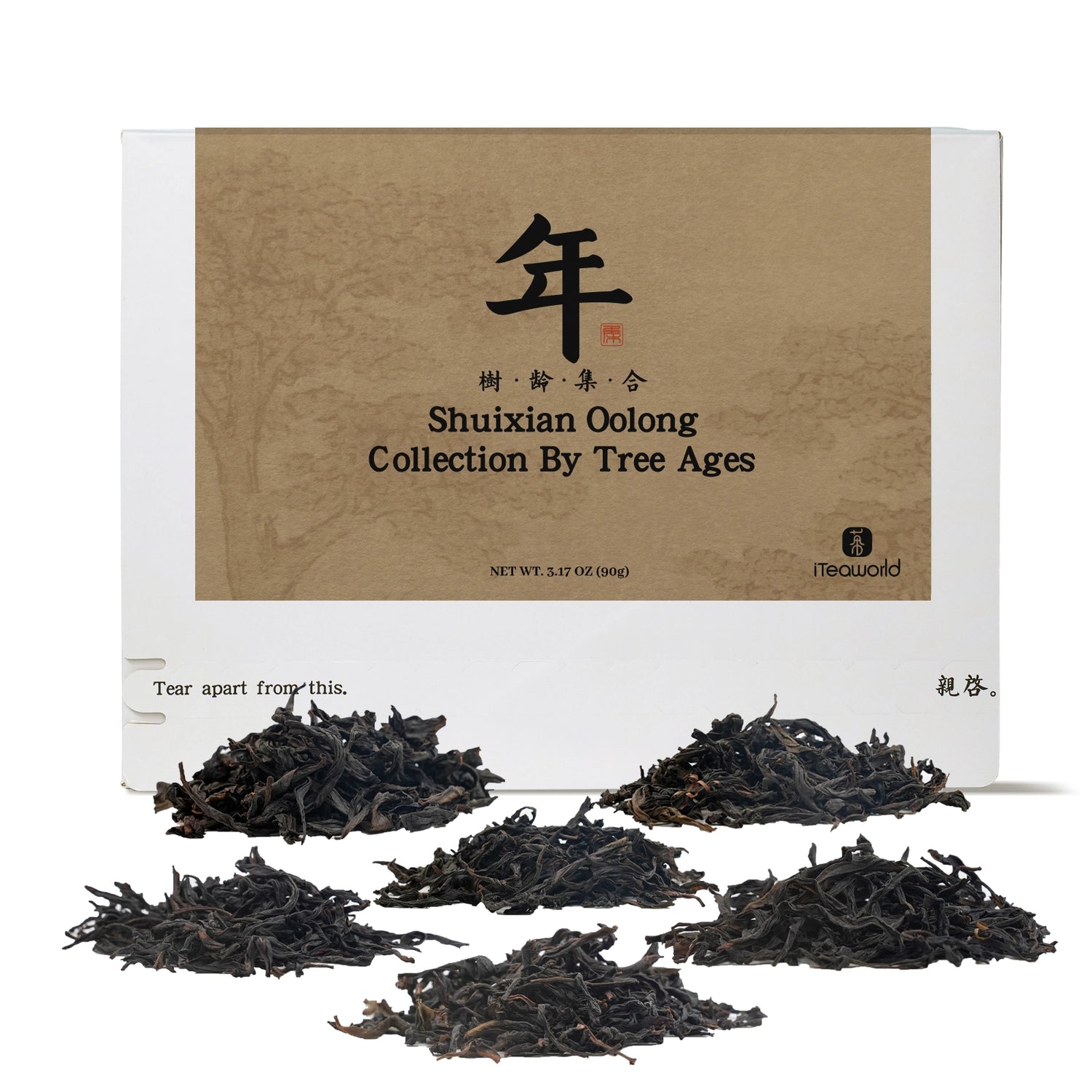
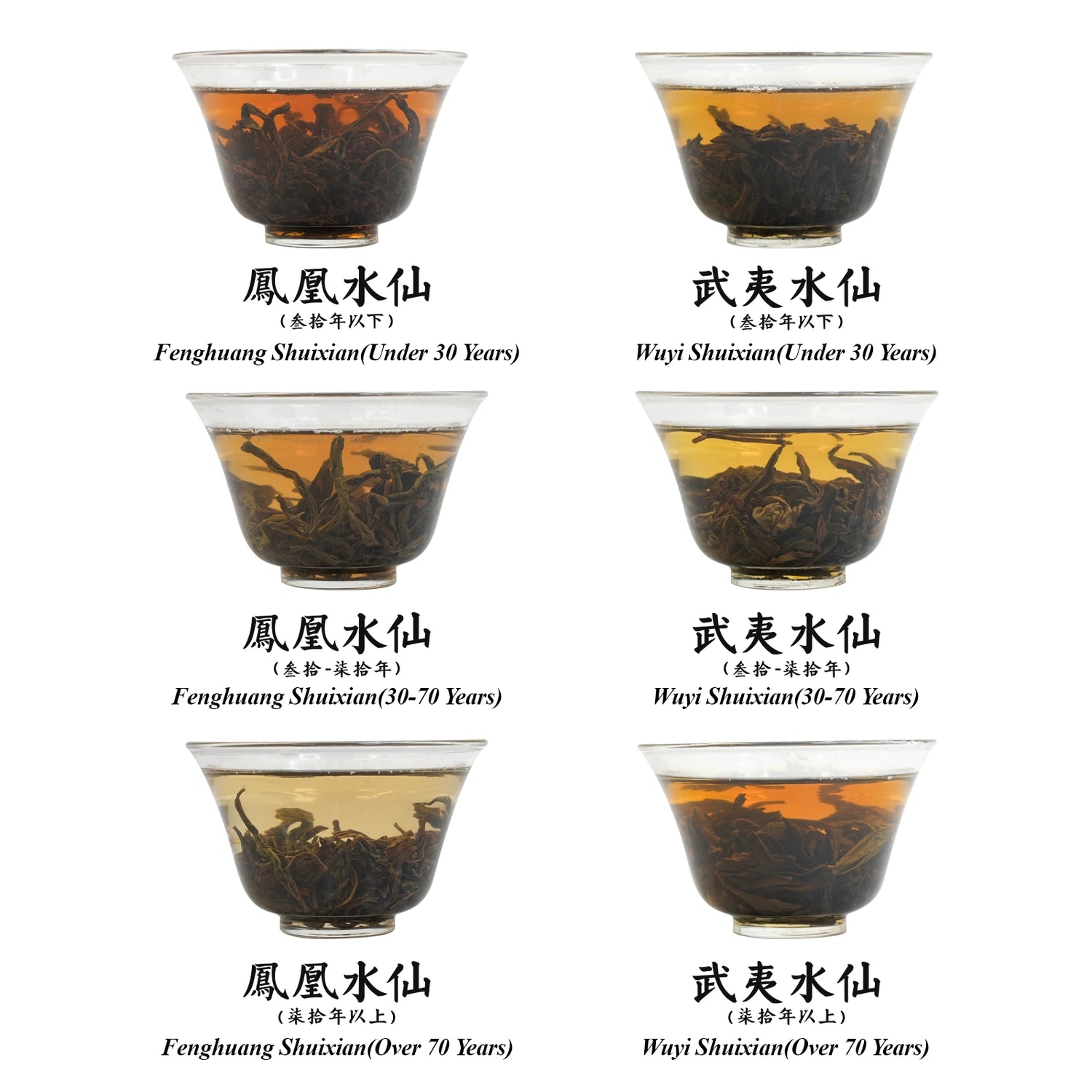
Chinese Oolong Tea Comparison Set: 6 Tree-Aged Blends (Fenghuang & Wuyi Shui Xian)90g
Chinese Oolong Tea Comparison Set: 6 Tree-Aged Blends (Fenghuang & Wuyi Shui Xian)90g
Maybe You’re Not a Fan of Aged Tea Trees
In both Pu-erh and oolong tea, the age of the tea tree matters. Generally, older trees are rarer, which drives up their price. The age of the trees is most significant in certain oolong varieties, like Shui Xian (including Phoenix Shui Xian, Wuyi Shui Xian, and Minbei Shui Xian).
Typically, younger tea trees contain higher levels of amino acids but lower levels of tea polyphenols and minerals. This results in teas that are sweeter and fresher, but with a lighter, less complex flavor. These teas tend to have more floral notes and are best suited for light fermentation and roasting processes.
On the other hand, older tea trees tend to have higher levels of tea polyphenols, fiber, sugars, and minerals. They’re not as restricted by processing techniques, and the resulting teas are often richer, with more prominent sweetness, a longer-lasting aftertaste, and better endurance for multiple infusions.
This product features Phoenix Shui Xian and Wuyi Shui Xian from the same origin, made with similar processes but from different-aged trees. It’s a great way to compare how tree age influences the flavor of oolong tea.
Products Included:
- Fenghuang Shuixian(Under 30 Years)
- Fenghuang Shuixian(30-70 Years)
- Fenghuang Shuixian(Over 70 Years)
- Wuyi Shuixian (Under 30 Years)
- Wuyi Shuixian (30-70 Years)
- Wuyi Shuixian (Over 70 Years)
Origin:
- Fenghuang Shuixian(Under 30 Years):Shenming Village, Fenghuang Town, Chaoan District, Chaozhou City, Guangdong Province, China
- Fenghuang Shuixian(30-70 Years):Daping Village, Fenghuang Town, Chaoan District, Chaozhou City, Guangdong Province, China
- Fenghuang Shuixian(Over 70 Years):Gezaiwei, Wudong Village, Fenghuang Town, Chaoan District, Chaozhou City, Guangdong Province, China.
- Wuyi Shuixian (Under 30 Years):Jingshui Village, Xingcun Town, Wuyishan City, Fujian Province, China
- Wuyi Shuixian (30-70 Years):Daan Village, Yangzhuang Township, Wuyishan City, Fujian Province
- Wuyi Shuixian (Over 70 Years):Tianxin Village, Wuyi Township, Wuyishan City, Fujian Province
Master Blender:
- Fenghuang Shuixian:Lin Jizhong,林纪中
- Wuyi Shuixian:Chen hui,陈辉
Processing Time:
- Fenghuang Shuixian:Early May 2023
- Wuyi Shuixian:May 2024
Best Before Date:
- 36months
Tea Variety:
- Fenghuang Shuixian variety
- Wuyi Shuixiann variety
Altitude:
- Fenghuang Shuixian(Under 30 Years):760 meters
- Fenghuang Shuixian(30-70 Years):800-90 meters
- Fenghuang Shuixian(Over 70 Years):1150 meters
- Wuyi Shuixian (Under 30 Years):400 meters
- Wuyi Shuixian (30-70 Years):800-900 meters
- Wuyi Shuixian (Over 70 Years):500 meters
Soil Type:
- Fenghuang Shuixian:yellow soil
- Wuyi Shuixian:gravelly soil
Oxidation Level:
- Medium oxidation (40-50%)
Roasting Level:
- Under 30 Years (Option 1): Three roasts, medium-heavy fire (110-115°C / 230-239°F)
- 30-70 Years (Option 1): Three roasts, medium-heavy fire (110-115°C / 230-239°F)
- Over 70 Years (Option 1): Three roasts, medium fire (110-115°C / 230-239°F)
- Under 30 Years (Option 2): Two roasts, heavy fire (110-115°C / 230-239°F)
- 30-70 Years (Option 2): Three roasts, light fire (95-105°C / 203-221°F)
- Over 70 Years (Option 2): Light fire, 95-105°C (203-221°F)
- (Light Fire ~ 80°C, Medium Fire ~ 100°C, Heavy Fire ~ 120°C)
Roasting Method (Charcoal or Electric):
- charcoal briquetting
Brewing Recommendations:
Chinese-Style Oolong Brewing
Teaware: Gaiwan or clay teapot
Water Temp: 212°F (100°C)
Tea-to-Water Ratio: 1g per 0.7 oz (20ml)
Steep Time: 10-15 sec (1-3 steeps), add 5-10 sec after
Re-Steep: Up to 7 times
Western-Style Oolong Brewing
Teaware: Teapot, infuser, or French press
Water Temp: 100°C (212°F)
Tea-to-Water Ratio: 1 tsp (2-3g) per 8 oz (240ml)
Steep Time: 3minutes
Re-Steep: 3 times, adding 1minutes each time
Should You Really Buy High-Altitude Tea? This Product Might Help You Decide
High-altitude tea is grown in regions with big temperature differences between day and night, cooler temperatures, and frequent cloud cover. These conditions slow down the tea’s growth, keeping the leaves tender and rich in amino acids. This results in teas that are naturally sweeter, fresher, and more aromatic. High-altitude teas are perfect for light to medium oxidation and roasting levels. Examples of high-altitude oolongs include Taiwan High Mountain Tea and Phoenix Dan Cong.
Low-altitude teas, on the other hand, generally have higher levels of tea polyphenols, but tend to have a weaker aroma and lower endurance for multiple infusions.
This product features three Duck Shit Oolong teas, all crafted by the same tea master in Fenghuang Town with similar oxidation and roasting levels. The only difference is the altitude where they were grown, making it easy to compare how altitude affects the tea's flavor.
Products Included:
- Ya Shi Xiang (Duck Shit) Dan Cong Oolong (Low-Mountain) 20g
- Ya Shi Xiang (Duck Shit) Dan Cong Oolong (Medium-Mountain) 20g
- Ya Shi Xiang (Duck Shit) Dan Cong Oolong (High-Mountain) 20g
Origin:
- Lower Hill:Hutou Village, Fenghuang Town, Chaozhou City, Guangdong Province, China
- Middle Mountain:Fengxi Reservoir, Fenghuang Town, Chaozhou City, Guangdong Province, China
- High Mountain:Dongjiao Village,Fenghuang Town,Chaoan District,Chaozhou City,Guangdong Province,China
Master Blender:Lin zhiqiang
Processing Time:June 2023
Best Before Date:36 months
Tea Variety:Ya Shi Xiang variety
Altitude:
- Low-Mountain:300-400 meters
- Medium-Mountain:600 meters
- High-Mountain:800-900 meters
Soil Type: yellow soil
Oxidation Level:30-40%
Roasting Level:
- Low-Mountain:Two roasts, medium-light fire (95-105°C / 203-221°F)
1st roast: June-July 2023,2nd roast: After Mid-Autumn Festival 2023 - Medium-Mountain:Two roasts, medium-light fire (95-105°C / 203-221°F)
- High-Mountain: Three roasts, medium-light fire (95-105°C / 203-221°F),1st roast: June-July 2022,2nd roast: After Mid-Autumn Festival 2022,3rd roast: After Chinese New Year 2023
Roasting Method (Charcoal or Electric):charcoal briquetting
Brewing Recommendations:
Chinese-Style Oolong Brewing
Teaware: Gaiwan or clay teapot
Water Temp: 212°F (100°C)
Tea-to-Water Ratio: 1g per 0.7 oz (20ml)
Steep Time: 10-15 sec (1-3 steeps), add 5-10 sec after
Re-Steep: Up to 7 times
Western-Style Oolong Brewing
Teaware: Teapot, infuser, or French press
Water Temp: 190-200°F (88-93°C)
Tea-to-Water Ratio: 1 tsp (2-3g) per 8 oz (240ml)
Steep Time: 3-5 minutes
Re-Steep: Up to 3 times, adding 1-2 minutes each time
Soil Environment
In The Classic of Tea by Lu Yu, it’s mentioned that tea trees grow best in different types of soils: “the best grow in rotten rocks, the middle in gravelly soil, and the worst in yellow earth.” Soil with rocks provides good drainage and airflow, preventing both waterlogging in heavy rain and dryness during droughts. It’s rich in minerals, and tea trees thrive in soil that’s both moist and acidic. For example, the finest Wuyi rock teas grow in soil made up of rotten rocks and gravel. On the other hand, lower-grade Wuyi teas, which mainly grow in yellow earth, lack the signature rocky flavor and have simpler, less complex aromas and tastes.
If you want to experience how different soil types affect the flavor of oolong tea, the best example would be a collection of Wuyi Rock Teas from various environments. This includes:
Core Zhengyan Wuyi Tea: Known for its rocky, gravelly soil, represented by the famous Three Pits and Two Streams (San Keng Liang Jian).
Wuyi Zhengyan Tea: Grown in soils rich in sandy gravel rocks.
Wuyi Ban Yan Tea: Grown in thicker layers of rocky red soil.
Wuyi Zhou Tea: Grown in soils dominated by loess (yellow earth).
Products Included:
- Core Zhengyan Wuyi Tea(Core Zheng Yan)10g
- Wuyi Rou Gui (Zheng Yan) 10g
- Wuyi Rou Gui (Ban yan Tea) 20g
- Wuyi Rou Gui (Zhou Cha) 20g
Origin:
- Core Zheng Yan:Wuyuan Jian, Tianxin Village, Wuyi Town, Wuyishan City, Fujian Province
- Zheng Yan:Tianxin Village, Wuyi Town, Wuyishan City, Fujian Province
- Ban yan Tea:Jingshui Village, Xingcun Town, Wuyishan City, Fujian Province, China
- Zhou Cha:Xingtian Town, Wuyishan City, Fujian Province, China
Master Blender:
- Chen Hui
Processing Time:
- October 2024
Best Before Date:
- 36 months
Tea Variety:
- Wuyi Cinnamon Varieties
Altitude:
- Core Zheng Yan:342 meters
- Zheng Yan:400-500 meters
- Ban yan Tea:about 400 meters
- Zhou Cha: about 200 meters
Soil Type:
- Core Zheng Yan:Gravel Soil
- Zheng Yan:sandy gravelly soil
- Ban yan Tea:red soil dominated by thickly bedded rock
- Zhou Cha: yellow soil
Oxidation Level:Medium oxidation (45-55%)
Roasting Level:
- Core Zheng Yan:Three roasts, heavy fire, 105-110°C (221-230°F)
- Zheng Yan:Three roasts, heavy fire, 105-110°C (221-230°F)
- Ban yan Tea:Three roasts, heavy fire, 105-110°C (221-230°F)
- Zhou Cha: Two roasts, medium-heavy fire, around 115°C (239°F)
Roasting Method (Charcoal or Electric):
- charcoal briquetting
Brewing Recommendations:
Chinese-Style Oolong Brewing
Teaware: Gaiwan or clay teapot
Water Temp: 212°F (100°C)
Tea-to-Water Ratio: 1g per 0.7 oz (20ml)
Steep Time: 15 sec (1-3 steeps), add 5-10 sec after
Re-Steep: Up to 7 times
Western-Style Oolong Brewing
Teaware: Teapot, infuser, or French press
Water Temp: 212°F (100°C)
Tea-to-Water Ratio: 1 tsp (2-3g) per 8 oz (240ml)
Steep Time: 3 minutes
Re-Steep: 3 times, adding 1 minutes each time
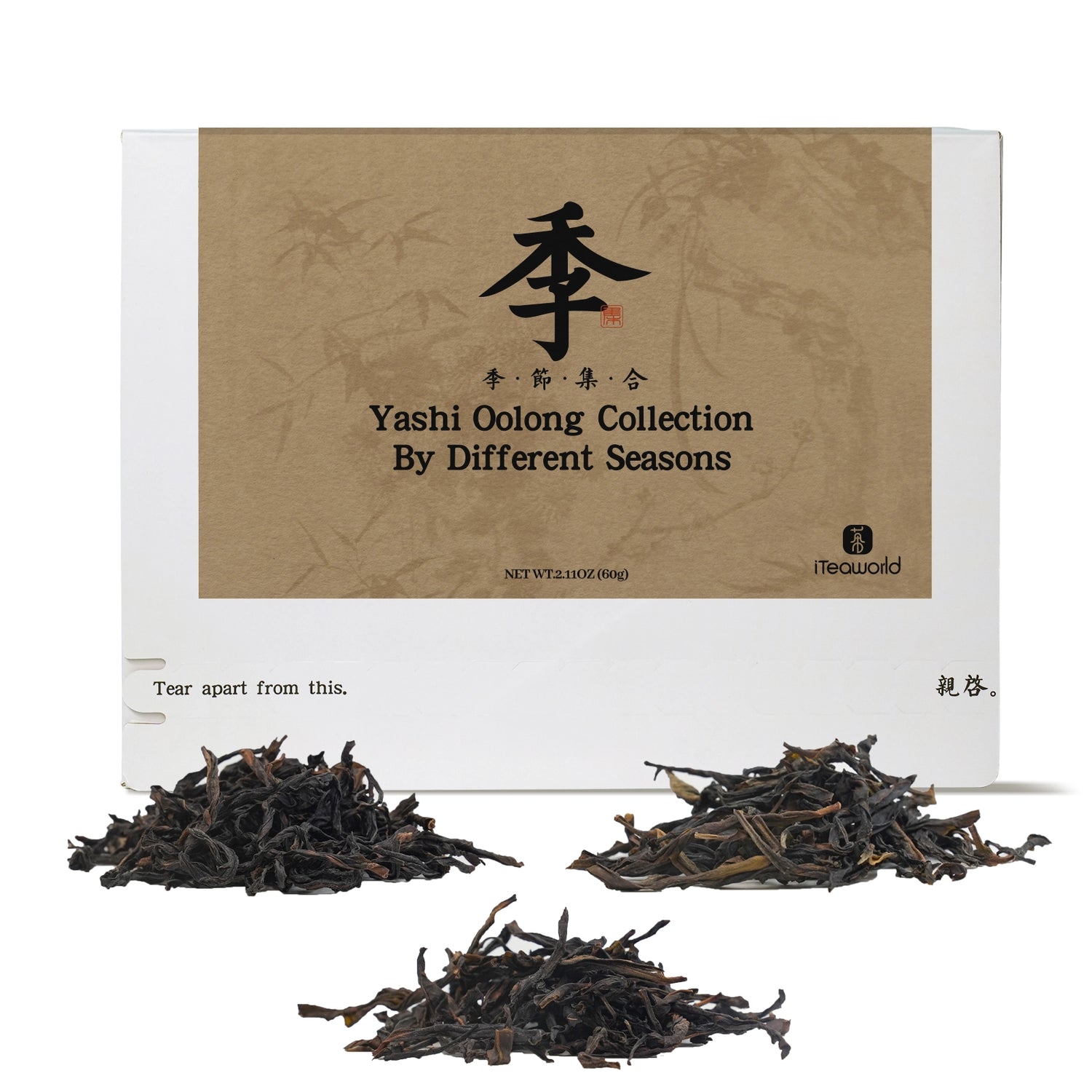
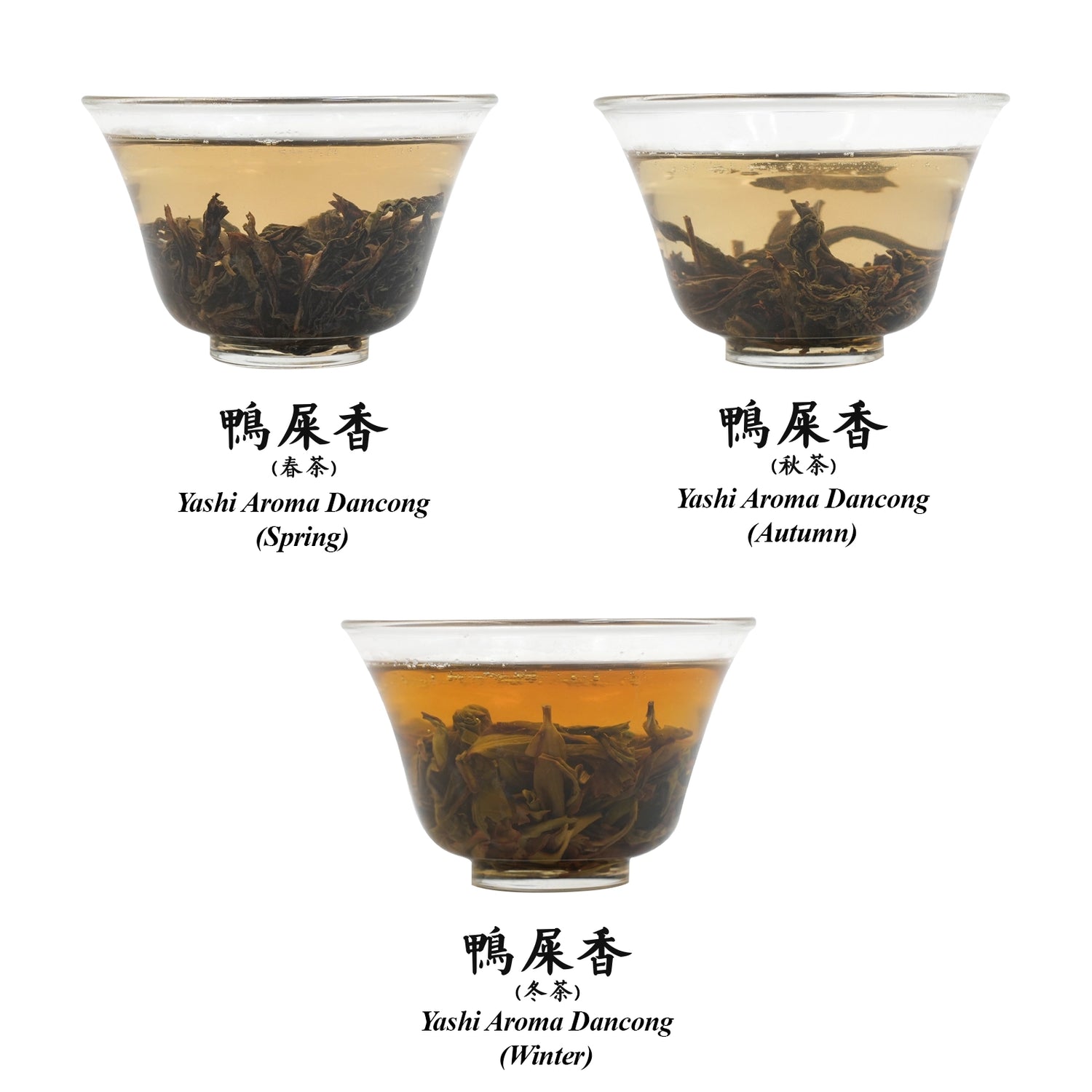
Ya Shi Xiang oolong Comparison Set – Spring, Autumn & Winter Varieties 60g
Ya Shi Xiang oolong Comparison Set – Spring, Autumn & Winter Varieties 60g
Seasonality of Oolong Tea
Oolong tea can be harvested in all four seasons: spring, summer, autumn, and winter. However, Wuyi rock tea is only harvested in the spring. Oolong teas picked in the midday usually have the most pronounced aroma. Summer teas are mostly used in milk tea and are less common in loose leaf tea markets.
Spring teas tend to grow slower, resulting in higher levels of amino acids and tea polyphenols, with a lower ratio of phenols to amino acids. However, due to the frequent rainy weather in tea-growing areas like Fujian and Guangdong, spring teas may have less aromatic compounds than autumn or winter teas. Therefore, autumn and winter oolongs tend to have a stronger aroma. Winter oolongs, in particular, may even have a crisp, cold-like fragrance. Spring oolongs, on the other hand, tend to be richer in substances, offering a sweeter and fresher taste.
This product features three different seasonal Duck Shit Aroma teas from the same tea master in Hutou Village, Fenghuang Town. The oxidation and roasting levels are different for each, as oolong tea is all about adjusting to the leaves' conditions. Winter leaves are thinner, so oxidation and roasting are usually lighter. Try these three teas to see if you can notice the flavor differences between the seasons.
Products Included:
- Ya Shi Xiang (Duck Shit) Dan Cong Oolong(Spring) 20g
- Ya Shi Xiang (Duck Shit) Dan Cong Oolong(Autumn) 20g
- Ya Shi Xiang (Duck Shit) Dan Cong Oolong(Winter) 20g
Origin:Hutou Village, Fenghuang Town, Chaoan District, Chaozhou City, Guangdong Province, China
Master Blender:Lin Shupeng
Processing Time:November 20, 2024
Best Before Date:36months
Tea Variety:Ya Shi Xiang (Duck Shit) Dan Cong variety
Altitude:300-400 meters
Soil Type:yellow soil
Oxidation Level: Medium oxidation (40-50%)
Roasting Level:
- Spring: Two roasts, medium fire, around 100°C (212°F)
- Autumn: Two roasts, medium fire, around 100°C (212°F)
- Winter: One roast, light fire, around 80°C (176°F)Very light roast, 70-80°C (158-176°F)
Roasting Method (Charcoal or Electric):charcoal briquetting
Brewing Recommendations:
Chinese-Style Oolong Brewing
- Teaware: Gaiwan or clay teapot
- Water Temp: 212°F (100°C)
- Tea-to-Water Ratio: 1g per 0.7 oz (20ml)
- Steep Time: 15 sec (1-3 steeps), add 5-10 sec after
- Re-Steep: Up to 7 times
Western-Style Oolong Brewing
- Teaware: Teapot, infuser, or French press
- Water Temp: 212°F (100°C)
- Tea-to-Water Ratio: 1 tsp (2-3g) per 8 oz (240ml)
- Steep Time: 3-5 minutes
- Re-Steep: Up to 3 times, adding 1minutes each time
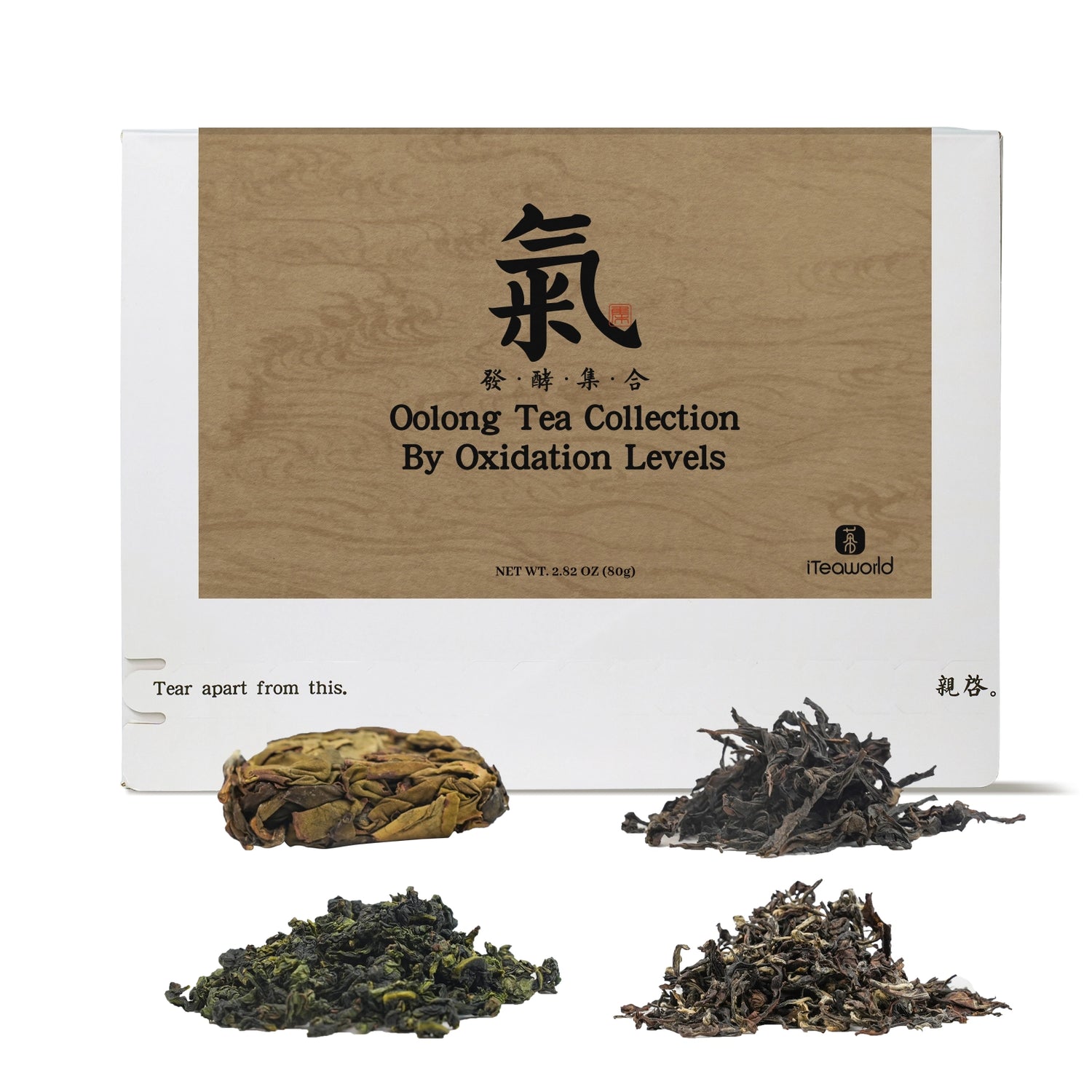
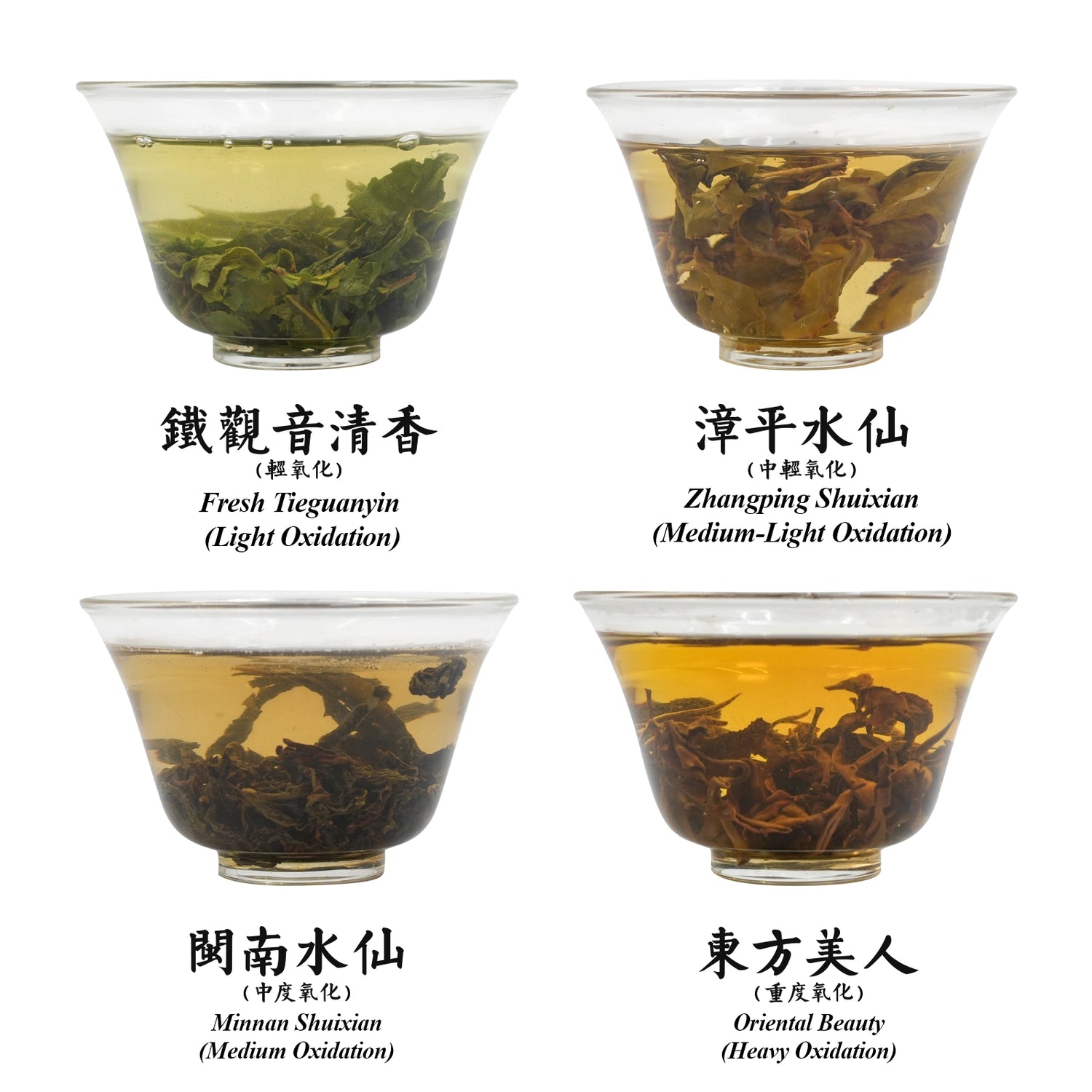
Oolong Tea Comparison Set: 4 Oxidation Levels (Tieguanyin to Oriental Beauty) 80g
Oolong Tea Comparison Set: 4 Oxidation Levels (Tieguanyin to Oriental Beauty) 80g
Oolong Tea: The Balance of Oxidation
Oolong tea is a partially oxidized tea, with oxidation levels ranging from 10% to 70%. Oxidation plays a key role in shaping the tea's aroma and the brightness of its flavor. Light oxidation creates fresh floral and fruity notes, while higher oxidation brings out richer, more mature fruit or honey-like aromas.
Lightly Oxidized Oolong (10%–25%): Examples like Wen Shan Baozhong and light-roast Tieguanyin showcase fresh floral and fruity scents.
Moderately Oxidized Oolong (25%–50%): Teas such as Phoenix Dan Cong and medium-roast Tieguanyin have a balanced profile, combining floral notes with hints of honey, fruit, or roasting, resulting in a complex aroma.
Heavily Oxidized Oolong (50%–70%): Classics like Da Hong Pao, Wuyi Rougui, and Oriental Beauty deliver mature fruit aromas, roasted or caramel-like notes, and a smooth, full-bodied brew.
This product includes four renowned oolong teas, all lightly roasted but with varying oxidation levels. It’s the perfect way to explore how different oxidation levels influence the flavor and aroma of oolong tea.
Products Included:
- Fresh Tieguanyin (Light Oxidation) 20g
- Zhangping Shuixian Oolong Tea (Medium-Light Oxidation) 20g
- Minnan Shuixian (Medium Oxidation) 20g
- Oriental Beauty (Heavy Oxidation) 20g
Origin:
- Fresh Tieguanyin: Longjuan Village, Longjuan Township, Anxi County, Fujian Province, China
- Zhangping Shuixian:Beiliao Village, Nanyang Town, Zhangping City, Fujian Province, China
- Minnan Shuixian:Wuxi Village, Wufeng Town, Yongchun County, Quanzhou City, Fujian Province, China
- Oriental Beauty:Neiyang Village, Pingshan Township, Sanming City, Fujian Province, China
Master Blender:
- Fresh Tieguanyin: Chen Qizhi
- Zhangping Shuixian:He Meiqing
- Minnan Shuixian:Xu Yongyuan
- Oriental Beauty:Li Jianmin
Processing Time:
- Fresh Tieguanyin: November 2024
- Zhangping Shuixian:June 2024
- Minnan Shuixian:December 2024
- Oriental Beauty:early June 2024
Best Before Date:24months
Tea Variety:
- Tieguanyin: Tieguanyin Varieties
- Zhangping Shui Xian: Minnan Shuixian Varieties
- Minnan Shuixian: Jianyang Shui Xian Varieties
- Oriental Beauty: Jin Xuan variety
Altitude:
- Tieguanyin: 800-900 meters
- Zhangping Shui Xian: 400-500 meters
- Minnan Shuixian:900-1000 meters
- Oriental Beauty:1100 meters
Soil Type:
- Tieguanyin: red soil
- Zhangping Shui Xian: yellow and red soil
- Minnan Shuixian: red soil
- Oriental Beauty:Red soil
Oxidation Level:
- Tieguanyin: Light oxidation (10-20%)
- Zhangping Shui Xian: Mild-light oxidation (25-30%)
- Minnan Shuixian: Medium oxidation (40-50%)
- Oriental Beauty:Heavy oxidation (60-70%)
Roasting Level:
- Very light roast, 70-80°C (158-176°F)
Roasting Method (Charcoal or Electric):
- electric roasting
Brewing Recommendations:
Chinese-Style Oolong Brewing
Teaware: Gaiwan or clay teapot
Water Temp: 212°F (100°C)
Tea-to-Water Ratio: 1g per 0.7 oz (20ml)
Steep Time: 10-15 sec (1-3 steeps), add 5-10 sec after
Re-Steep: Up to 7 times
Western-Style Oolong Brewing
Teaware: Teapot, infuser, or French press
Water Temp: 90-100°C (194-212°F)
Tea-to-Water Ratio: 1 tsp (2-3g) per 8 oz (240ml)
Steep Time: 3-5 minutes
Re-Steep: Up to 3 times, adding 1-2 minutes each time
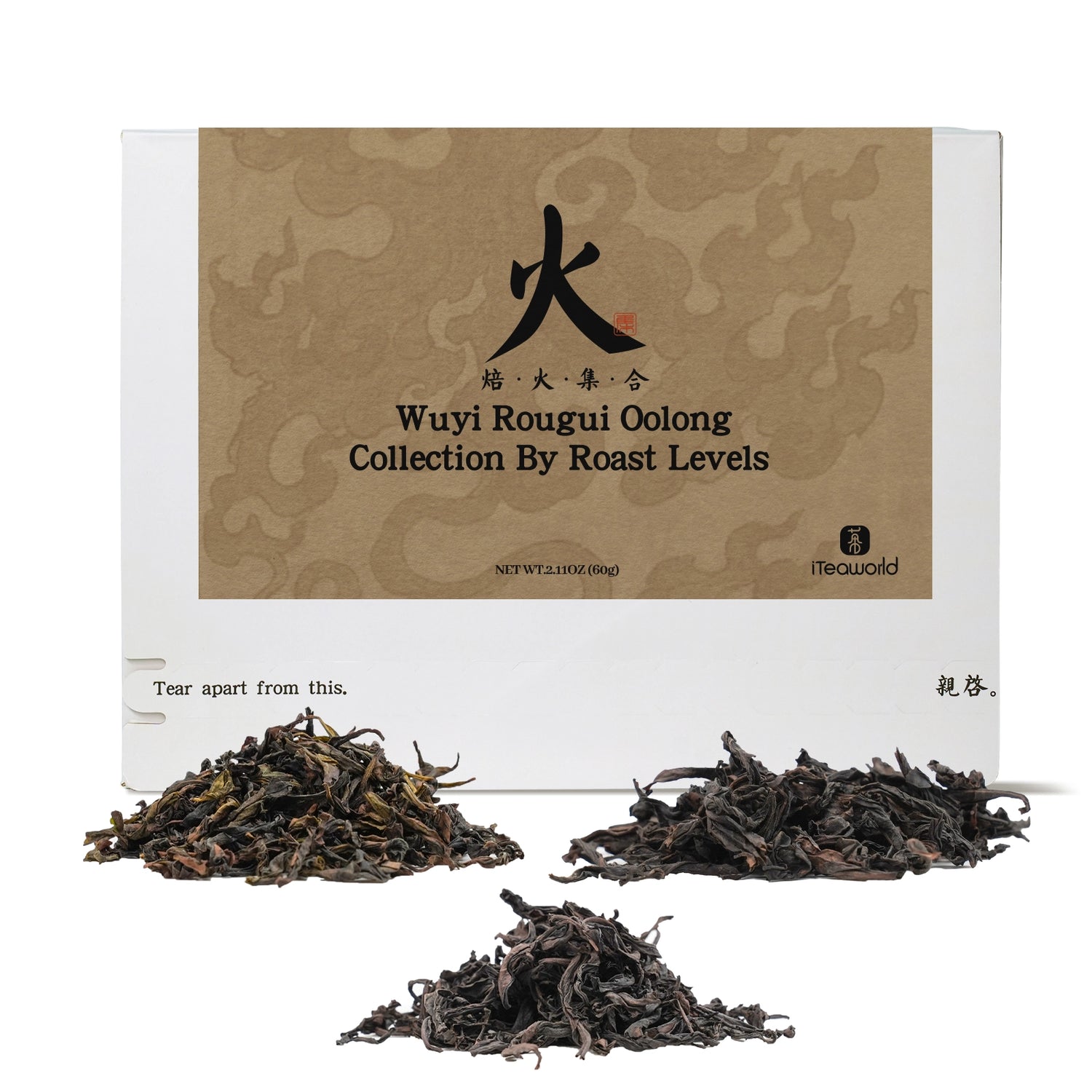
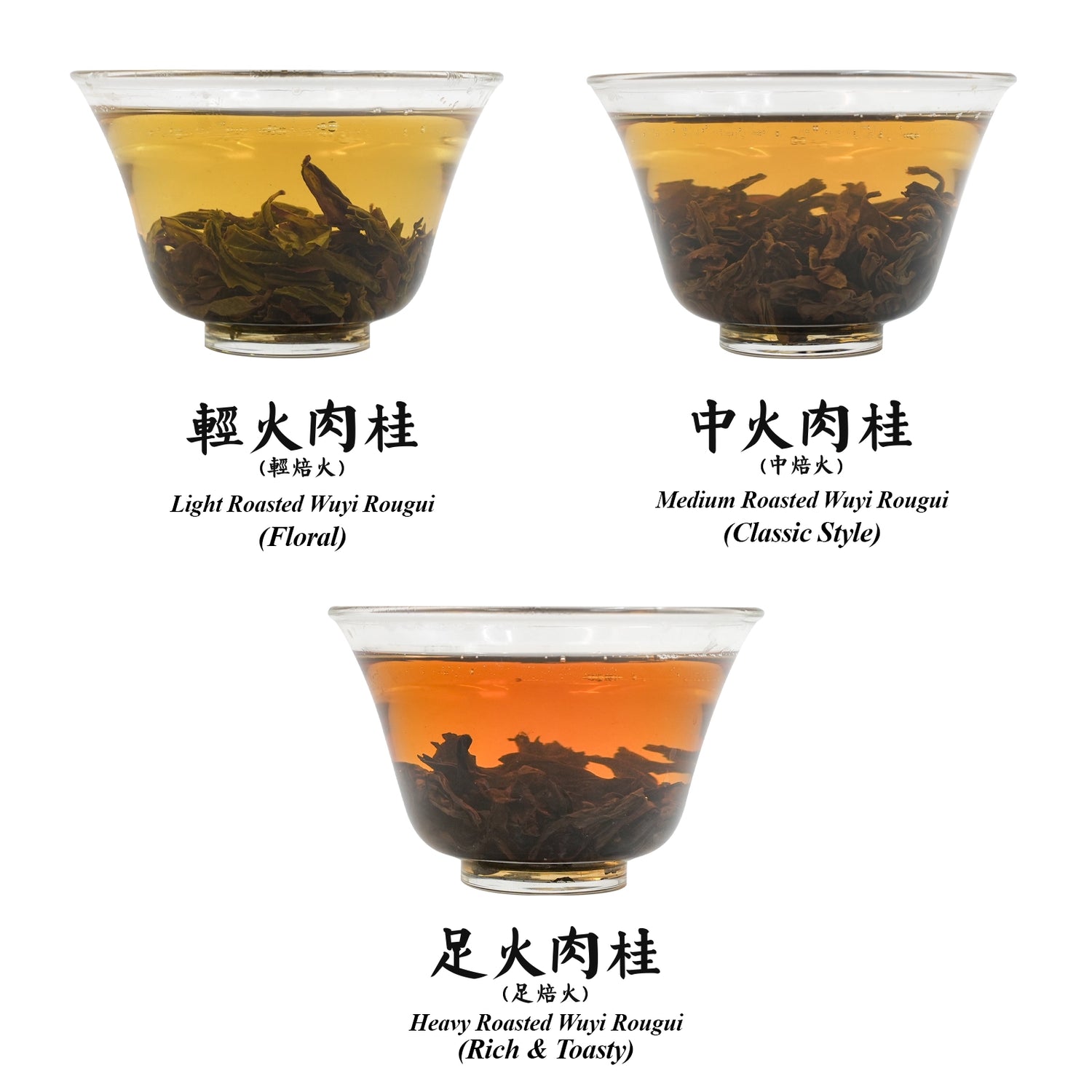
Wuyi Oolong Comparison Set: 3 Roast Levels (Light to Heavy Fire) 60g
Wuyi Oolong Comparison Set: 3 Roast Levels (Light to Heavy Fire) 60g
The Art of Roasting Oolong Tea
Roasting oolong tea serves three key purposes: reducing moisture, removing any off-flavors, and lowering caffeine content, all while enhancing the tea's aroma and flavor.Teas with different oxidation levels need different roasting levels. Usually, lightly oxidized teas are lightly roasted to enhance their flavor. If a tea is lightly oxidized but heavily roasted, it can taste too smoky, often because the oxidation wasn’t done properly and the roasting is used to cover it up.
The level of roasting significantly impacts the tea’s aroma and taste. Light roasting preserves the fresh, floral fragrance, while heavy roasting creates a richer, smoother brew with toasty or smoky undertones.
This tea features Wuyi Rougui oolong from the renowned Wuyi Mountains in Fujian, crafted by the same tea master. The only difference lies in the roasting level, offering you an excellent opportunity to explore how roasting shapes the flavors of oolong tea.
Origin:Jingshui Village, Xingcun Town, Wuyishan City, Fujian Province, China
Master Blender:Chen Hui
Processing Time:November 2024
Best Before Date:24 months
Tea Variety:Wuyi Cinnamon
Altitude:about 400 meters
Soil Type:gravelly soil
Oxidation Level:Oxidization 45-55%
Roasting Level:Single Roast: Light roast, 90-100°C (194-212°F)
Triple Roast: Medium roast, 105-115°C (221-239°F)
Triple Roast (Full Fire): Heavy roast, 120-130°C (248-266°F)
Roasting Method (Charcoal or Electric):
Light cinnamon: electric roasting 20g
Medium fire cinnamon: charcoal briquetting 20g
Full Flame Cinnamon: charcoal briquetting 20g
Brewing Recommendations:
Chinese-Style Oolong Brewing
Teaware: Gaiwan or clay teapot
Water Temp: 212°F (100°C)
Tea-to-Water Ratio: 1g per 0.7 oz (20ml)
Steep Time: 10-15 sec (1-3 steeps), add 5-10 sec after
Re-Steep: Up to 7 times
Western-Style Oolong Brewing
Teaware: Teapot, infuser, or French press
Water Temp: 190-200°F (88-93°C)
Tea-to-Water Ratio: 1 tsp (2-3g) per 8 oz (240ml)
Steep Time: 3-5 minutes
Re-Steep: Up to 3 times, adding 1-2 minutes each time
A Journey of Fire and Technology
"For centuries, Chinese oolong tea masters have debated: the slow dance of charcoal fire or the precision of electric heat? This kit invites you to explore two roasting philosophies through Phoenix Dancong and Wuyi Rock Tea – one shaped by ancestral wisdom, the other refined by technology."
Product Contains:
Charcoal-Roasted Wuyi Rougui* 20 g
Electric-Roasted Wuyi Rougui* 20 g
Charcoal-Roasted Mi Lan Xiang Dancong* 20 g
Electric-Roasted Mi Lan Xiang Dancong* 20 g
Product Information (Wuyi Rougui)
Type: Semi-Rock (Ban Yan)
Origin: Jingshui Village, Xingcun Town, Wuyishan City, Fujian Province, China
Altitude: 400m
Producer: Chen Hui
Processing Timeline: Maocha: April 2024; Initial Roasting: August 2024; Final Roasting: November 2024
Product Information (Mi Lan Xiang Dancong)
Origin: Fengxi Village, Fenghuang Town, Chaozhou City, Guangdong Province, China
Altitude: 600–800m
Tree Age: ~30 years
Producer: Lin Zhiqiang
Processing Timeline: Maocha: April 2024; Initial Roasting: August 2024; Final Roasting: November 2024
Charcoal Roasting: The Art of Traditional Oolong
Charcoal roasting is the soul of traditional oolong tea. Using slow, low heat from wood like longan or lychee, it transforms the leaves, creating a rich flavor profile with caramel sweetness, mineral notes, and a smoky depth.
This method is perfect for Wuyi Rock Tea and Phoenix Dancong, turning grassy flavors into smooth, complex profiles and bringing out caramel and fruit-like sweetness.
Compared to modern electric roasting, charcoal roasting offers:
Better texture — glossy dark brown leaves vs. greenish-brown
Richer aromas — smoky and natural tea fragrances vs. a single roasted flavor
More infusions — over 8 brews vs. 5
Longer shelf life — improves over 5+ years vs. needing to be consumed within the year
Despite challenges like higher carbon emissions, charcoal roasting is essential for high-end oolong, much like oak barrels for fine wine. It elevates tea from "fresh leaves" to a living, evolving art.
Electric Roasting: The Modern Approach to Oolong Tea
Electric roasting is a key technique in modern oolong tea production, offering significant advantages in efficiency and consistency. Using electric heating elements, the temperature is precisely controlled between 70-130°C, with roasting time typically ranging from 2-5 hours. This process improves production speed compared to traditional charcoal roasting.
One of the standout features of electric roasting is its digital temperature control, maintaining a stable temperature within ±5°C. This eliminates the uneven heat fluctuations common in charcoal roasting, making it ideal for light-fermented oolongs that preserve fresh floral and fruity aromas.
In terms of flavor, electric-roasted teas shine with vibrant floral notes and a refreshing taste. The tea is clear and bright in color. While it lacks the rich depth of charcoal-roasted teas, it meets the demand for light, refreshing tea that modern consumers crave.
How to Brew?
Teaware: Yixing teapot (preferably zhuni clay) or thick-walled gaiwan
Water Quality: Spring water or soft water (hardness < 50 mg/L)
Tea-to-Water Ratio: 5g tea / 100ml water
Water Temperature: 100°C (boiling)
Rinse: Quick rinse with boiling water (under 5 seconds); discard the first infusion
Steeping Times:
Infusions 1–3: 15 seconds each
Infusions 4–10: Mi Lan Xiang: increase by 5 seconds per infusion
Wuyi Rougui: increase by 5–10 seconds per infusion
To explore how aging changes the flavor of tea, we selected five traditionally charcoal-roasted Minnan Shuixian teas from Yongchun Beikeng Overseas Chinese Tea Factory—vintages from 1994, 2004, 2014, 2020, and 2024.
This tasting journey reveals how time transforms the rich character of Shuixian oolong. Let’s experience the evolution together.
This Set Includes:
2024 Minnan Shui Xian (Charcoal-Roasted, Rich Aroma Style)* 20 g
2019 Minnan Shui Xian (Charcoal-Roasted, Rich Aroma Style)* 20 g
2014 Minnan Shui Xian (Charcoal-Roasted, Rich Aroma Style)* 20 g
2004 Minnan Shui Xian (Charcoal-Roasted, Rich Aroma Style)* 20 g
1994 Minnan Shui Xian (Charcoal-Roasted, Rich Aroma Style)* 20 g
Flavor Evolution (For Reference)
2024 (New Tea):
Dominated by natural orchid aroma with a touch of charcoal roast. The fragrance is bright and long-lasting — when brewed with boiling water, the rising steam carries a rich floral note. The tea leaves a clear, lingering aroma in the cup. The taste is full-bodied, smooth, and sweet, with richness but no bitterness. It delivers a strong returning sweetness and a long, lingering finish. The liquor is robust yet not overly stimulating.
5-Year Aged (2020):
Orchid aroma fades, charcoal notes retreat. Hints of ripe fruit begin to emerge, along with a touch of fresh woodiness. A light acidity appears, but the tea still stimulates salivation. The overall taste becomes smoother, though slightly thinner in complexity.
10-Year Aged (2015):
Acidity lessens. Aged notes (like dry wood) blend with faint traces of orchid. The freshness is gone. The liquor becomes silky, and the returning sweetness shifts toward a rock sugar-like softness.
20-Year Aged (2005):
Dominated by aged aromas (sandalwood, herbs). The liquor turns amber, thick and rich like rice soup. The aftertaste is deep with a medicinal undertone.
30-Year Aged (1995):
A complex blend of aged and herbal notes (like ginseng and dried citrus peel). The liquor is thick, smooth, and almost oily. Sweetness is subtle and refined, with a long-lasting aftertaste reminiscent of aged liquor.
How to Brew?
Teaware:
For fresh tea, use a gaiwan or Yixing teapot.
For teas aged 5–10 years, use a Yixing teapot.
For teas aged 20+ years, use an old Yixing teapot or a coarse clay pot for boiling.
Water Temperature:
Fresh tea: 95–100°C
Aged tea: 100°C
Tea-to-Water Ratio:
1g tea per 20 ml of water
Awakening the Tea:
For teas aged 5–10 years: open the bag and let the tea breathe for about 5 minutes before brewing.
For teas aged 20+ years: open the bag and let it air out a day in advance.
Steep Time
Rinse First:
First infusion: quick 3-second rinse, discard — this is to warm up and awaken the tea.
2nd to 4th infusion: 8–15 seconds
From the 5th infusion onward: increase time by 5–10 seconds per brew
For Aged Tea (20+ years):
Can be boiled directly or brewed in a teapot for 10 infusions before boiling.
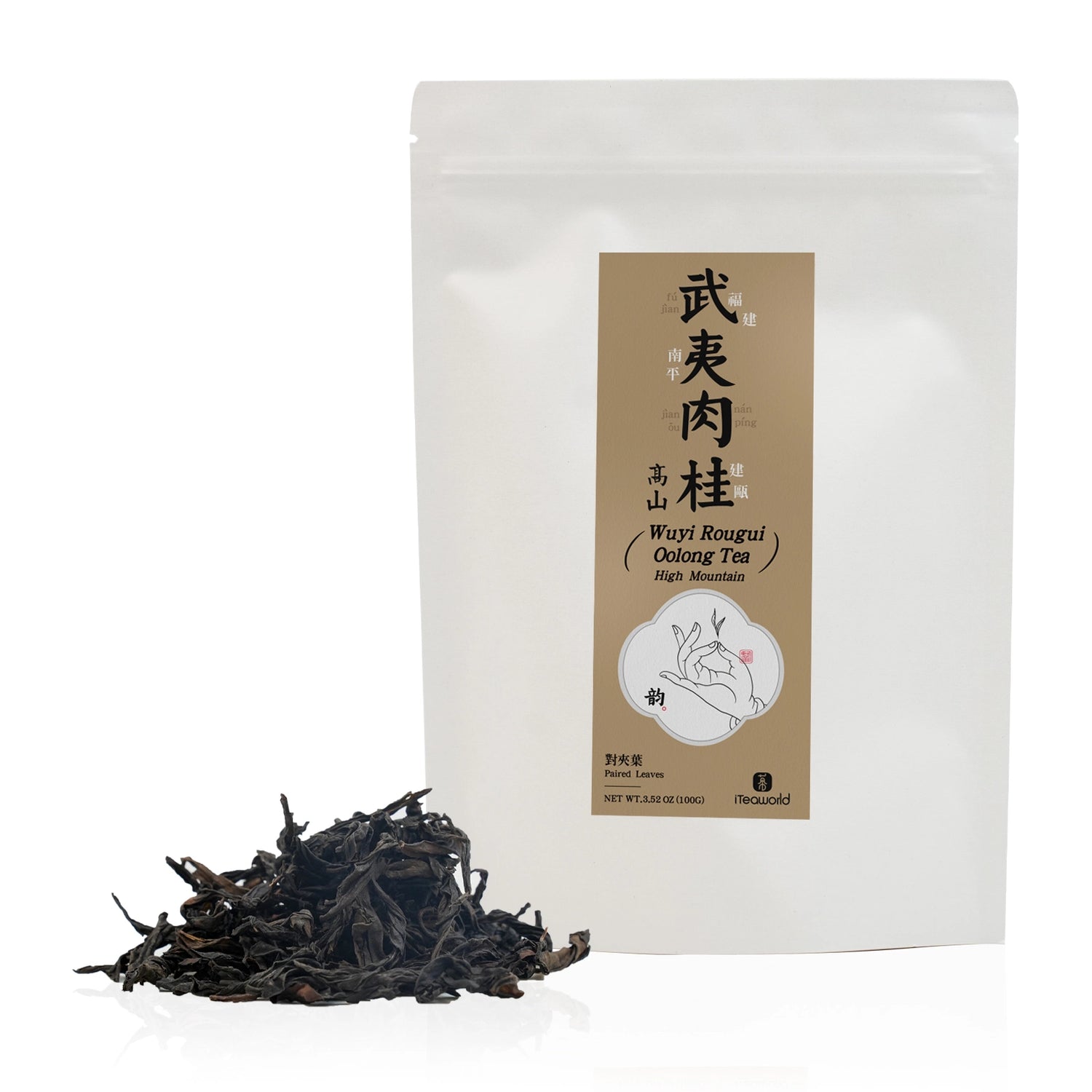

Jian’ou Wuyi Rou Gui (High Mountain) Oolong – Daily Friendly(Spring 2025)
Jian’ou Wuyi Rou Gui (High Mountain) Oolong – Daily Friendly(Spring 2025)
Wuyi Rou Gui (High Mountain Cinnamon Rock Oolong) | 武夷高山肉桂
Introduction
Rou Gui is one of the most iconic Wuyi rock oolongs, known for its bold, spicy character and its signature cinnamon-like aroma. Grown in rocky, mineral-rich soils and charcoal-roasted to perfection, it delivers a complex, full-bodied cup with layered notes of roasted spice, dark fruit, and wet stone.
This tea is sourced from Baizhang Village in Xiaoqiao Town, located just outside the Wuyishan core scenic area. Though not within the official “Zheng Yan” zone, Baizhang boasts over 1,000 years of tea-making history and was once a producer of imperial tribute teas. At 730m elevation, its high-mountain terroir—misty climate, sandy-gravel soils, and rich mineral content—meets the classic criteria for producing exceptional rock oolong at outstanding value.
After extensive tasting of Rou Gui from across Wuyi’s top areas, we selected this tea for its exceptional balance of flavor, structure, and price—making it our top choice for a daily drinking Rou Gui with true character.
This tea was freshly roasted on September 3 and is recommended to be stored for a period of time before drinking.
Why shouldn’t freshly roasted Oolong tea be consumed right away?
Right after roasting, the tea has a strong charcoal aroma that can mask its natural fragrance and flavor. It also retains a certain “fiery” quality — caffeine and tea polyphenols remain high, making the taste slightly harsh or astringent and potentially irritating to the throat or stomach. Drinking it too soon can also lead to a feeling of internal heat, especially for those prone to “heatiness” or during dry seasons, known in traditional Chinese medicine as “shang huo” (excess internal heat). These symptoms quickly subside once consumption stops.
To avoid discomfort, let the tea rest before drinking. This allows the fire taste to fade (“tui huo”) and the tea’s components to stabilize. Once rested, the tea becomes smoother and more balanced in both aroma and flavor. Lightly roasted teas need about 1–2 months to rest, while medium to heavily roasted ones require around 6 months.
Origin: Baizhang Village, Xiaoqiao Town, Jianou City, Fujian, China | 730m
Roasting: Traditional charcoal roasting (briquetting method)
Tea Maker: Zheng Xiongqing, veteran tea artisan from a multi-generation tea-making family
Cultivar: Rou Gui
Harvest: 2025 (Spring)
Oxidation: Medium-high (50–60%)
Roast: Medium-Heavy (charcoal roasted)
Shelf Life: 3 years
Storage: Store in an airtight container in a cool, dry, odor-free place. For longer storage or to encourage aging, avoid frequent air exposure.
Brewing
-
Vessel: Porcelain gaiwan / clay teapot
-
Water: 100ml spring/pure water : 5g tea | 100°C / 212°F
-
Steeping:
-
1st–3rd infusions: 10–15 seconds
-
Subsequent infusions: Add 5–7 seconds each round
-
Suitable for up to 8–10 infusions
-
Flavor
-
Aroma: Roasted spice, cinnamon, mineral-rich
-
Taste: Bold and warming, with dark fruit and rock minerality
-
Mouthfeel: Thick, structured, with long-lasting resonance
-
Aftertaste: Lingering “rock rhyme” (岩韵) with spicy finish
Occasions
-
Morning focus (stimulating and grounding)
-
Post-meal clarity (cuts through heaviness)
-
Ideal daily Wuyi oolong for bold flavor lovers
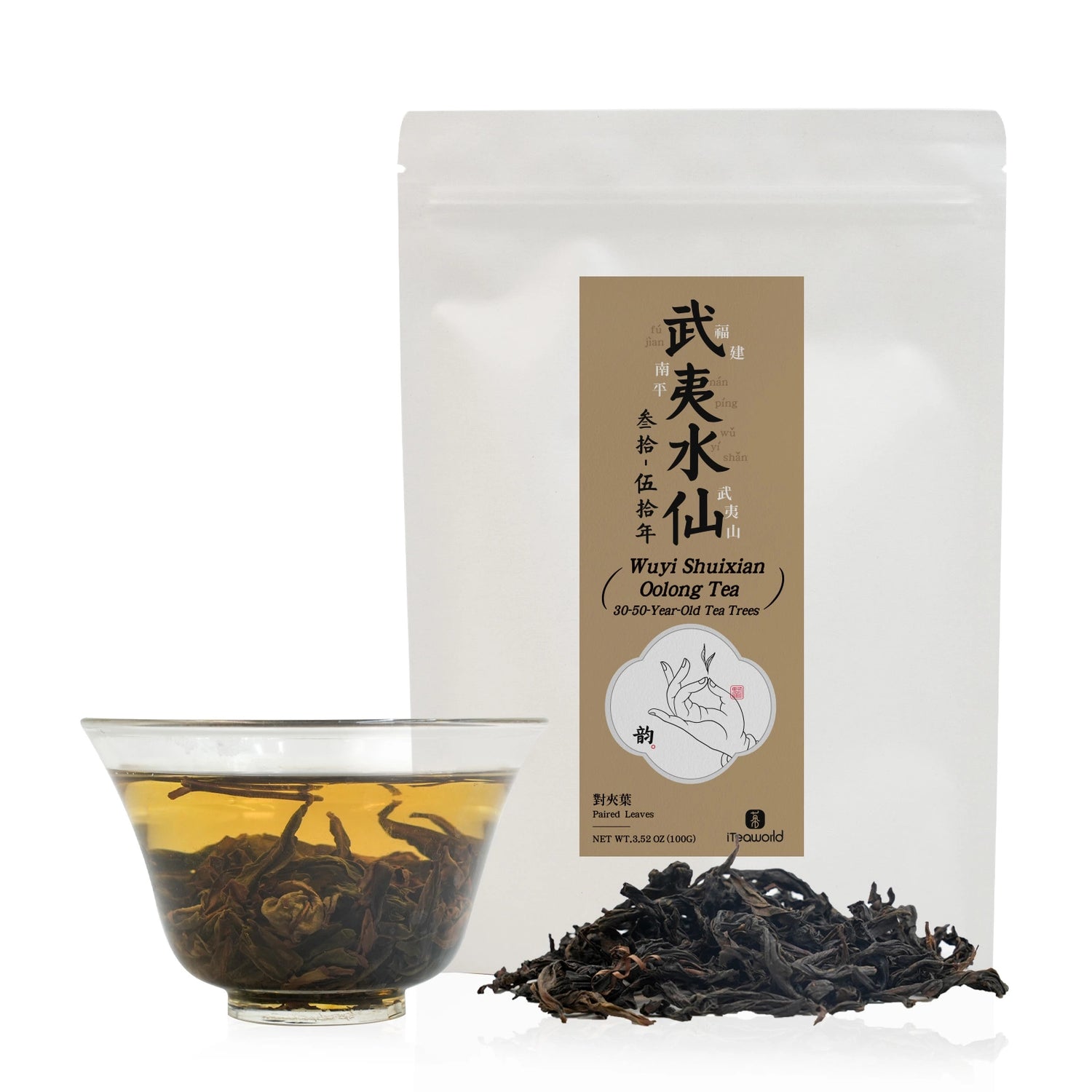
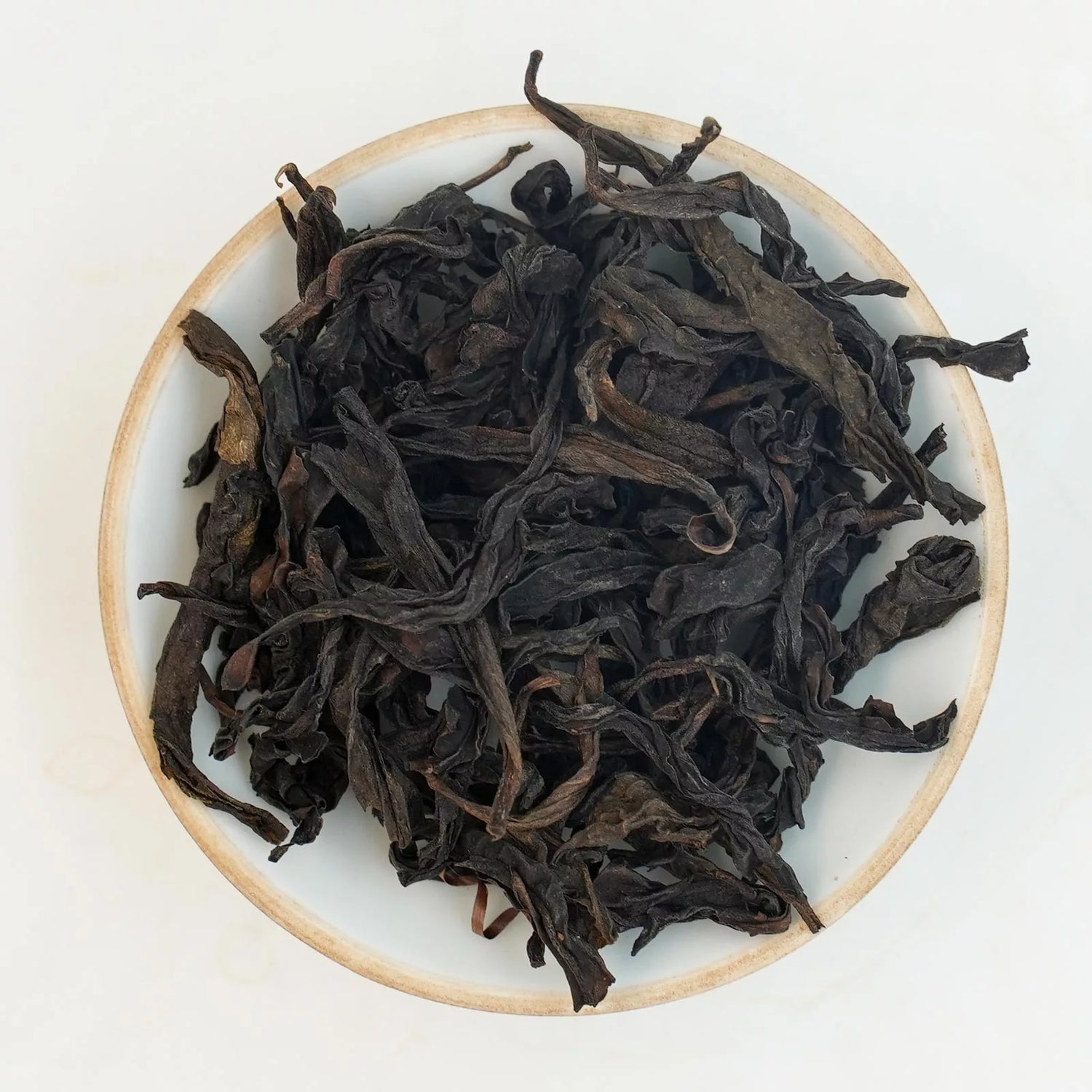
Jian’ou Wuyi Shui Xian (High Mountain, 30-50 years Old Bush) Oolong for Daily 2025
Jian’ou Wuyi Shui Xian (High Mountain, 30-50 years Old Bush) Oolong for Daily 2025
Wuyi Shui Xian (High Mountain, Old Bush)
Wuyi Shui Xian is one of the signature cultivars of Wuyi rock oolong. it combines rich floral aroma with a thick, velvety liquor. Originating in the Qing dynasty, Shui Xian is the only semi-arbor cultivar among Wuyi teas. Old bush (lao cong) trees—typically 50+ years—produce deeper, smoother infusions with forest-like clarity, woodsy depth, and signature “cong” flavor. Compared to newer bushes, old trees yield higher amino acids and lower bitterness, making them more enduring in brews and suitable for medium charcoal roast.
This tea is sourced from Baizhang Village in Xiaoqiao Town, just outside the Wuyishan core scenic area. With a 1,000-year legacy of tea production and imperial tribute history, Baizhang sits at 730m elevation in the southeast Wuyi Mountains. The terroir—constant mist, gravelly soil, and rich minerals—creates optimal conditions for deep, layered teas at a more accessible price point.
We compared several Shui Xian teas from within the Wuyi core and selected this high-mountain, old-bush version for its mature flavor, authentic craftsmanship, and outstanding value. With a taste profile reminiscent of 40–50-year-style Shui Xian, this tea is not only beginner-friendly but also worthy of daily storage and long-term appreciation by seasoned drinkers.
Origin: Baizhang Village, Xiaoqiao Town, Jian ou City, Fujian, China | Elevation: 730m
Roasting: Traditional charcoal roasting
Tea Maker: Zheng Xiongqing, veteran tea artisan from a multi-generation tea family
Cultivar: Shui Xian (approx. 30-50 year-old bushes)
Harvest: Spring 2025
Oxidation: Medium (40–50%)
Roast: Medium (charcoal roasted)
Suitable for: Daily drinking, mellow-flavor lovers, aged bush oolong enthusiasts
Shelf Life & Storage
Shelf Life: 5+ years (aging possible but not required)
Storage: Store in an airtight container in a cool, dry, odor-free place. No refrigeration needed. For longer-term storage, avoid frequent air exposure.
Brewing Guidelines
-
Vessel: Porcelain gaiwan or clay teapot
-
Water: 5g tea : 100ml spring or filtered water | 100°C / 212°F
-
Steeping:
-
Infusions 1–3: 10–15 seconds
-
Add 5–7 seconds per infusion thereafter
-
Yields 8–10 infusions
-
Flavor Profile
-
Aroma: Toasted wood, orchid, subtle aged sweetness
-
Taste: Smooth and clean, with soft florals, wood, and a gentle roasted finish
-
Mouthfeel: Round and mellow, light astringency
-
Aftertaste: Light and lasting, with a comforting warmth; “rock rhyme” (Yan Yun) is subtle
Best Enjoyed When...
-
You prefer a softer, more approachable Wuyi oolong
-
You want a daily tea with the depth of older bushes
-
You’re exploring non-Zhengyan teas with high value and honest craftsmanship
Da Hong Pao is the most representative tea among Wuyi Rock Teas. Due to its high reputation, many people even refer to all Wuyi Rock Teas as Da Hong Pao. The original mother trees of Da Hong Pao are located at Jiulongke in Wuyi Mountain, and they are now strictly protected from harvesting. To recreate the unique flavor of Da Hong Pao, high-quality Wuyi Rock Teas such as Rou Gui, Shui Xian, along with pure-bred Da Hong Pao, are blended to achieve an outstanding balance of aroma, liquor color, and taste, making it a favorite among tea lovers both in China and abroad.
This Da Hong Pao is blended with mid-mountain (Ban Yan) Wuyi Rock Tea materials in a specific ratio. It has a distinctive mineral sensation (known as Yan Yun, the “rock rhyme”), with a hint of roasted fragrance. The taste is mellow and full-bodied, with every flavor harmoniously integrated. It highlights the classic character of “rock bone and floral fragrance,” offering rich layers—an excellent choice for further exploring the world of Wuyi Rock Tea.
Origin: Jingshui Village, Xingcun Town, Wuyishan City, Fujian Province, China
Altitude: 400–600 m (Ban Yan, mid-mountain)
Soil: Gravel soil
Producer: Chen Hui
Harvest Time: November 2024
Storage Life: 36 months
Brewing Guidelines
Water Temp: 100°C (212°F)
Brewware: Gaiwan, Yixing Clay Teapot
Tea-to-Water Ratio: 5-7g per 100ml
1–3 infusions: 8-15 sec
Later infusions: Add 5–10 sec
Total brews: 10-12 times
Wuyi Qizhong, locally called "Cai Cha," refer to the indigenous tea tree varieties naturally growing in Wuyi Mountain. They are a sexually propagated group of plants and among the most ancient varieties in Wuyi. Famous Wuyi oolong teas such as Bai Jiguan and Tie Luo Han were selected from these rare varieties, making them the "gene pool" and a "living fossil" of Wuyi Rock Tea.
Due to the significant individual differences among these plants, the brewed tea presents diverse aromas, ranging from floral notes (orchid), fruity notes (honey peach, snow pear), woody notes, to creamy notes; older bushes may even carry a wild character.
This tea belongs to the Ban Yan (Half-Rock) category. It opens with a floral fragrance, develops fruity aromas, and carries a unique mineral character known as "Yan Yun" (rock rhyme). The taste is rich and full-bodied, with a smooth, lingering sweetness, pronounced throat finish, and strong durability for multiple infusions.
Origin: Jingshui Village, Xingcun Town, Wuyishan City, Fujian Province, China
Tea Region: Ban Yan (半岩)
Elevation: 400–600 m
Soil Type: Yellow Soil
Tea Variety: Wuyi Mountain indigenous group varieties
Tea Master: Chen Hui
Harvest Season: November 2024
Shelf Life: 36 months
Brewing Guidelines
Water Temp: 100°C (212°F)
Brewware: Gaiwan, Yixing Clay Teapot
Tea-to-Water Ratio: 5-7g per 100ml
1–3 infusions: 8-15 sec
Later infusions: Add 5–10 sec
Total brews: 7-8 times
Dwarf Oolong, also known as Small Leaf Oolong or Soft Branch Oolong, originates from Dongfeng Town in Jian'ou City. It is the ancestral tea tree variety of the Beiyuan Tribute Tea, with a cultivation history tracing back to the Song Dynasty. During the Qing Dynasty, it was introduced to Taiwan and developed into the famous Qingxin Oolong and Dong Ding Oolong. Its unique flavor continues to be highly appreciated by local tea connoisseurs.
This tea comes from the original Dwarf Oolong plantations in Dongfeng Town. It offers a delicate, lingering aroma with distinctive notes of honey peach or osmanthus. The fragrance is long-lasting, the taste rich, mellow, and refreshing, with a clear golden liquor. Even after multiple infusions, both the aroma and color remain stable.
Origin:
Dongfeng Village, Dongfeng Town, Jian'ou City, Fujian Province, China
Elevation:
500–600 m
Soil Type:
Yellow Soil
Tea Variety:
Dwarf Oolong
Tea Master:
Ye Jiansheng
Harvest Season:
November 2024
Shelf Life:
36 months
Brewing Guidelines
Water Temp: 100°C (212°F)
Brewware: Gaiwan, Yixing Clay Teapot
Tea-to-Water Ratio: 5-7g per 100ml
1–3 infusions: 8-15 sec
Later infusions: Add 5–10 sec
Total brews: 8-10 times
Ruixiang 305, developed by the Fujian Academy of Agricultural Sciences in 2003 from Huangdan hybrids, is one of the representative high-aroma varieties of modern Wuyi Rock Tea. It is commonly used in blends with Da Hong Pao and Wuyi Rougui to enhance aroma complexity and flavor depth.
This Ruixiang tea is processed using traditional Wuyi Rock Tea techniques. The natural gardenia-like aroma of the tea leaves is perfectly balanced with the roasted notes from charcoal firing. The fragrance is rich and long-lasting, with a pronounced cup-bottom aroma. The taste is mellow and smooth, with a lingering sweetness and layered complexity. Compared to Wuyi Rougui, it offers a fresher, more refreshing mouthfeel.
Origin:
Jingshui Village, Xingcun Town, Wuyishan City, Fujian Province, China
Tea Region:
Ban Yan
Tea Variety:
Ruixiang 305
Tea Master:
Chen Hui
Harvest Season:
November 2024
Shelf Life:
36 months
Brewing Guidelines
Water Temp: 100°C (212°F)
Brewware: Gaiwan, Yixing Clay Teapot
Tea-to-Water Ratio: 5-7g per 100ml
1–3 infusions: 8-15 sec
Later infusions: Add 5–10 sec
Total brews: 10 times
Que She (“Sparrow’s Tongue”) was selected in the early 1980s from the sexually reproduced offspring of the No.1 Mother Tree of Da Hong Pao at Jiulongke, Wuyi Mountain. It is considered a second-generation cultivar of Da Hong Pao. Propagated through asexual reproduction, Que She retains part of the genetic traits of Da Hong Pao, yet it is not a “pure-bred Da Hong Pao” in the traditional sense. Instead, it has developed into a distinguished Wuyi cultivar with its own unique flavor profile. Its name comes from its slender and delicate leaves, resembling the tongue of a sparrow.
This tea belongs to the Ban Yan (mid-mountain) category. Its aroma is dominated by floral and fruity notes, with prominent hints of gardenia and water chestnut sweetness. The fragrance is rich and long-lasting, with a particularly elegant “cold aroma.” The liquor is smooth and mellow, sweet and full-bodied, with a clear Yan Yun (the signature mineral “rock rhyme” of Wuyi tea). It offers quick returning sweetness (hui gan) and excellent re-steeping endurance.
Que She is a treasured variety among Wuyi Rock Teas, combining the charm of Da Hong Pao with its own distinctive floral-fruity fragrance—perfect for tea connoisseurs seeking a refined tasting experience.
Origin: Jingshui Village, Xingcun Town, Wuyishan City, Fujian Province, China
Altitude: 400–600 m (Ban Yan, mid-mountain)
Soil: Gravel soil
Variety: Que She (Da Hong Pao Lineage)
Producer: Chen Hui
Harvest Time: November 2024
Storage Life: 36 months
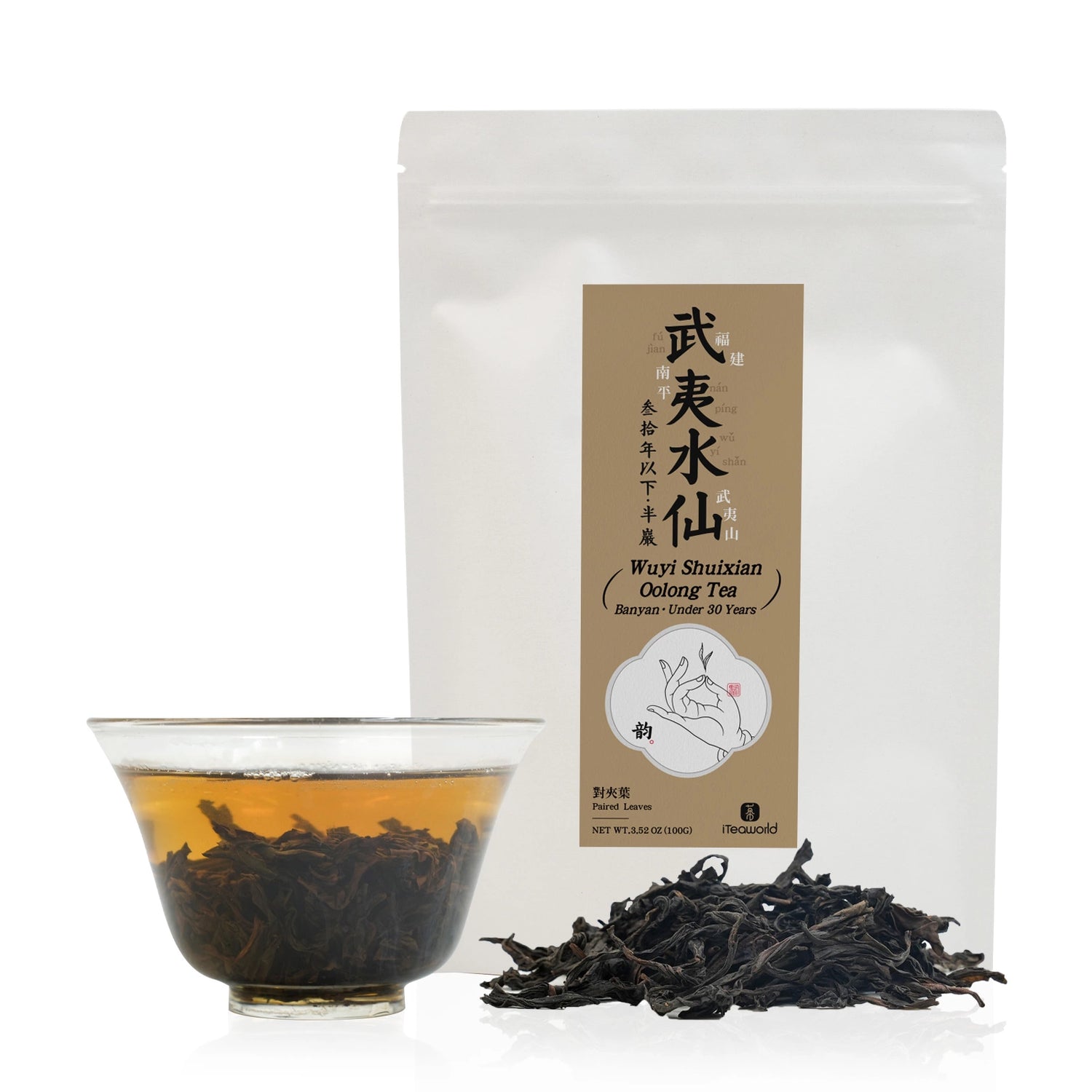
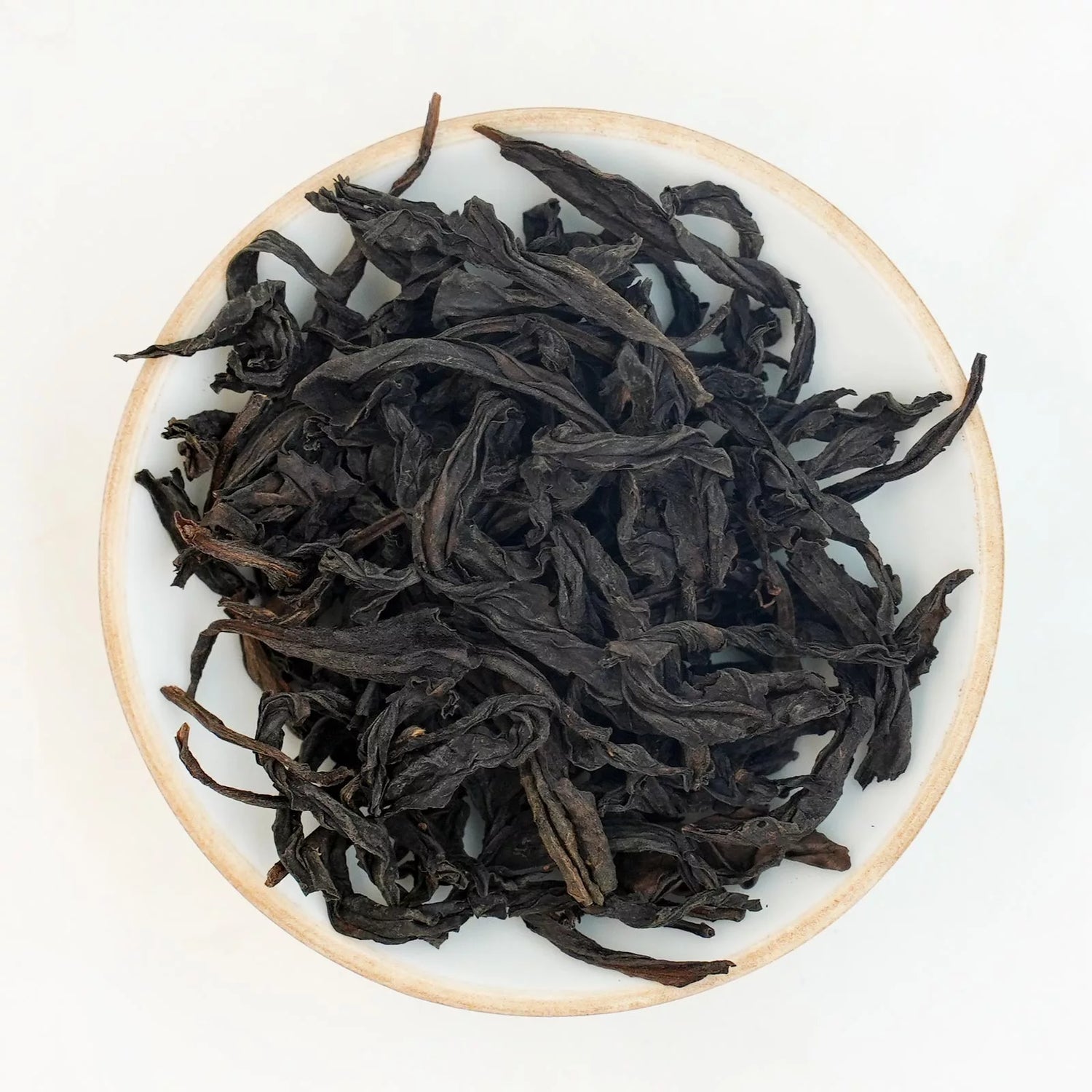
Premium Wuyi Rock Tea Wuyi Shui Xian (Ban Yan, Under 30 Years)
Premium Wuyi Rock Tea Wuyi Shui Xian (Ban Yan, Under 30 Years)
Wuyi Shui Xian is one of the signature varieties of Wuyi Rock Tea. Alongside Rou Gui, it is known by the saying: “For mellow taste, none surpasses Shui Xian; for fragrance, none surpasses Rou Gui.” Originating from Jianyang during the Qing Dynasty, Shui Xian was later introduced to Wuyi Mountain.
The age of the tea trees plays a crucial role in Shui Xian’s character. As the trees grow older, the liquor becomes more mellow, bitterness and astringency decrease, and the flavor complexity increases.
This particular Shui Xian comes from within the Wuyi Mountain Scenic Area. It belongs to the Ban Yan (mid-mountain) category, harvested from tea bushes under 30 years old (newer growth). Crafted using traditional Wuyi Rock Tea techniques, it delivers a fresh, smooth, and sweet taste. The mineral character (Yan Yun, or “rock rhyme”) is notable, with orchid fragrance as the dominant note, complemented by hints of bamboo or zongye (bamboo leaf) aroma. The tea has no heavy roasted flavor, offers 6–8 enjoyable infusions, and is an excellent choice for tea lovers wishing to further explore the world of Wuyi Rock Tea.
Origin: Jingshui Village, Xingcun Town, Wuyishan City, Fujian Province, China
Tree Age: Under 30 years
Category: Ban Yan (mid-mountain)
Soil: Gravel soil
Variety: Wuyi Shui Xian
Producer: Chen Hui
Harvest Time: November 2024
Storage Life: 36 months
Wuyi Shui Xian is one of the flagship varieties of Wuyi Rock Tea. Together with Rou Gui, it is praised in the saying: “For mellowness, none surpasses Shui Xian; for fragrance, none surpasses Rou Gui.” It was introduced to Wuyi Mountain from Jianyang during the Qing Dynasty.
For Shui Xian, tree age is a defining factor. As the tea trees grow older, the liquor becomes more mellow and rich, bitterness and astringency diminish, and the flavor layers become increasingly complex.
This particular Shui Xian is grown at Yunü Peak, one of the famous Thirty-Six Peaks of Wuyi Mountain, within the Zheng Yan (core rock) area, the most prized origin for Wuyi Rock Tea. Crafted from tea trees over 50 years old, it carries a distinctive woody fragrance, combined with bamboo leaf (zongye) aroma and the characteristic “Cong Wei” (old tree flavor). The mineral-rich Yan Yun (rock rhyme) is especially pronounced. Compared with younger bushes, the liquor is thicker, more full-bodied, and textured, making it an ideal choice for tea lovers seeking to deepen their exploration of Wuyi Rock Tea.
Origin: Yunü Peak, Xingcun Town, Wuyishan City, Fujian Province, China
Tree Age: Over 50 years
Category: Zheng Yan (core rock area)
Soil: Gravel soil
Variety: Wuyi Shui Xian
Producer: Chen Hui
Harvest Time: November 2024
Storage Life: 36 months
Wuyi Rougui is one of the most famous varieties of Wuyi Rock Tea, named for its sharp, cinnamon-like aroma.
This Wuyi Rougui is medium charcoal-roasted. While its aroma and complexity are slightly less pronounced than core Zhengyan Rougui, the cinnamon fragrance is sharp and direct, filling the nose with the first infusion. The flavor is rich and full-bodied, with a slightly stimulating character and a touch of bitterness in the liquor. The sweet aftertaste and mouthwatering effect appear quickly, accompanied by a noticeable mineral character.
Compared to core Zhengyan Rougui, this Wuyi Rougui is an excellent choice for beginners exploring Rock Tea. It offers high value while retaining the distinctive features of Wuyi Rock Tea.
Origin: Jingshui Village, Xingcun Town, Wuyishan City, Fujian Province, China
Category: Ban Yan (mid-mountain)
Soil: Gravel soil
Variety: Wuyi Rou Gui
Producer: Chen Hui
Harvest Time: November 2024
Shelf Life: 36 months
Wuyi Rougui is one of the most famous varieties of Wuyi Rock Tea, named for its sharp, cinnamon-like aroma.
This Rougui comes from Foguoyan, one of the “Ninety-Nine Famous Rocks” of Wuyi Mountain. Foguoyan is a Zhengyan producing area known for its excellent cost-performance ratio: it offers quality comparable to core Zhengyan teas at a more accessible price. The mineral-rich soil, ample sunlight, and year-round mist create a unique microclimate ideal for tea growth.
The Rougui from Foguoyan features a pronounced rock character with a distinct cinnamon aroma, layered with fruit and floral notes. The liquor is rich, full-bodied, and lingering. Offering core-Zhengyan quality at a better price, this Rougui is perfect for tea enthusiasts looking to explore Wuyi Rock Tea in depth.
Origin: Foguoyan, Xingcun Town, Wuyishan City, Fujian Province, China
Category: Zheng Yan (core rock area)
Soil: Gravel soil
Variety: Wuyi Rou Gui
Producer: Chen Hui
Harvest Time: November 2024
Shelf Life: 36 months
Tie Luo Han is one of the four famous Wuyi Rock Tea cultivars. Its origin is said to be either Guidong or Zhuke, both located in the core Zhengyan areas of the Wuyi Mountains. In Southeast Asia, many experienced tea lovers highly esteem Tie Luo Han, sometimes even above Da Hong Pao.
This Tie Luo Han is crafted using traditional Wuyi Rock Tea techniques. The liquor opens with a rich floral aroma, followed by a subtle herbal note in the finish. The flavor is full-bodied and mellow, with a smooth, rice-like texture. Its rock character is pronounced, offering distinct mineral notes and a unique warmth. Ideal for tea enthusiasts looking to explore the depth and variety of Wuyi Rock Teas.
Origin: Jingshui Village, Xingcun Town, Wuyishan City, Fujian Province, China
Category: Ban Yan (mid-mountain, 400–600 m)
Soil: Gravel soil
Variety: Tie Luo Han
Producer: Chen Hui
Harvest Time: November 2024
Shelf Life: 36 months
Recently viewed products
FAQs
Chinese oolong tea is distinct from both black and green teas. However, it may exhibit characteristics of either black or green tea, depending on the approach taken by the tea master during the processing of the tea leaves.
Choosing the perfect oolong tea, including Chinese tea varieties, depends on your personal taste preferences and desired flavor profile. Start by considering the level of oxidation you prefer, as oolong teas can range from lightly to heavily oxidized, offering diverse taste experiences. Additionally, think about whether you prefer floral, fruity, or earthy notes in your tea. Exploring different oolong teas from various regions, such as Fujian or Taiwan, can also provide insight into the unique characteristics each tea offers. Finally, opt for high-quality loose leaf teas for the freshest and most authentic flavors.
If you're still having trouble choosing, we suggest you start with the Oolong Tea Sampler, which allows you to try 4 Chinese Oolong teas at a fraction of the cost!
The best way to enjoy oolong tea, including Chinese tea varieties, is to start with high-quality loose leaf tea. Boil fresh water and let it cool slightly before steeping the oolong leaves. For optimal flavor, steep the leaves for about 3-5 minutes in water that's around 190-200°F (87-93°C). You can adjust steeping time and temperature based on personal preference. Many oolong enthusiasts also enjoy multiple infusions from the same leaves to savor the evolving flavors with each brew.
Chat with fellow tea lovers, ask questions, and share your tea moments.





